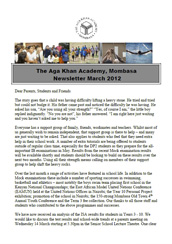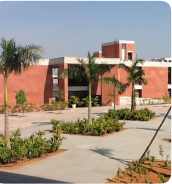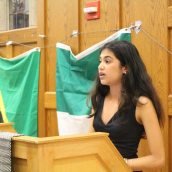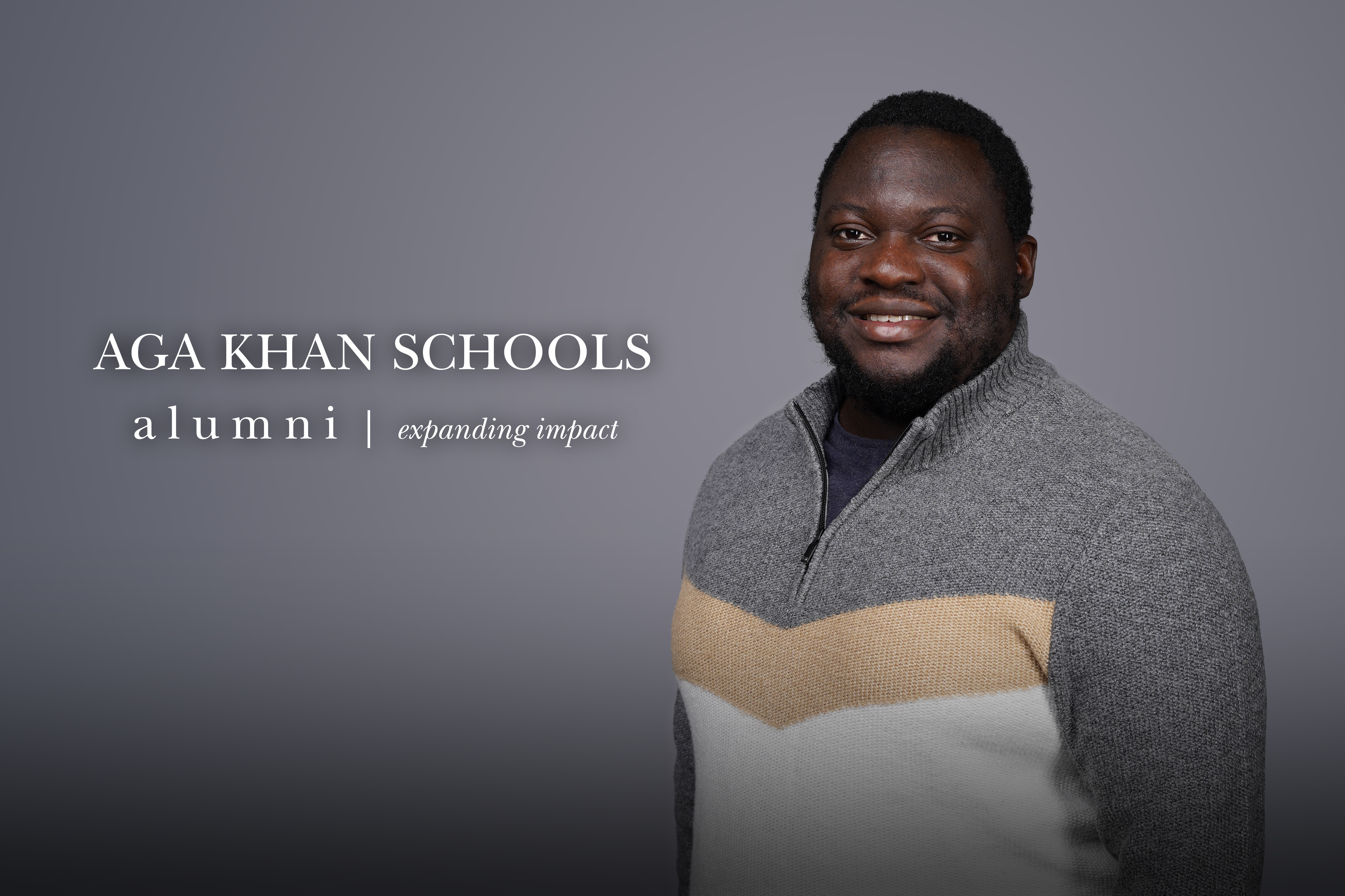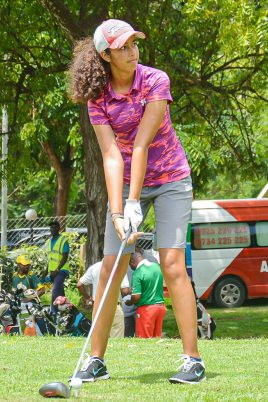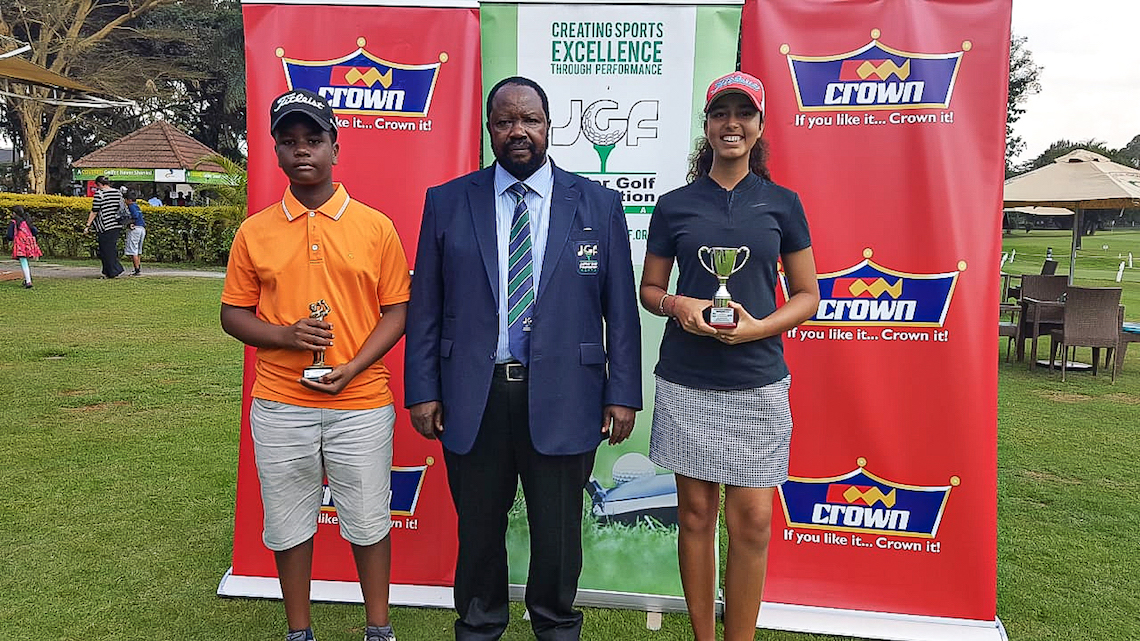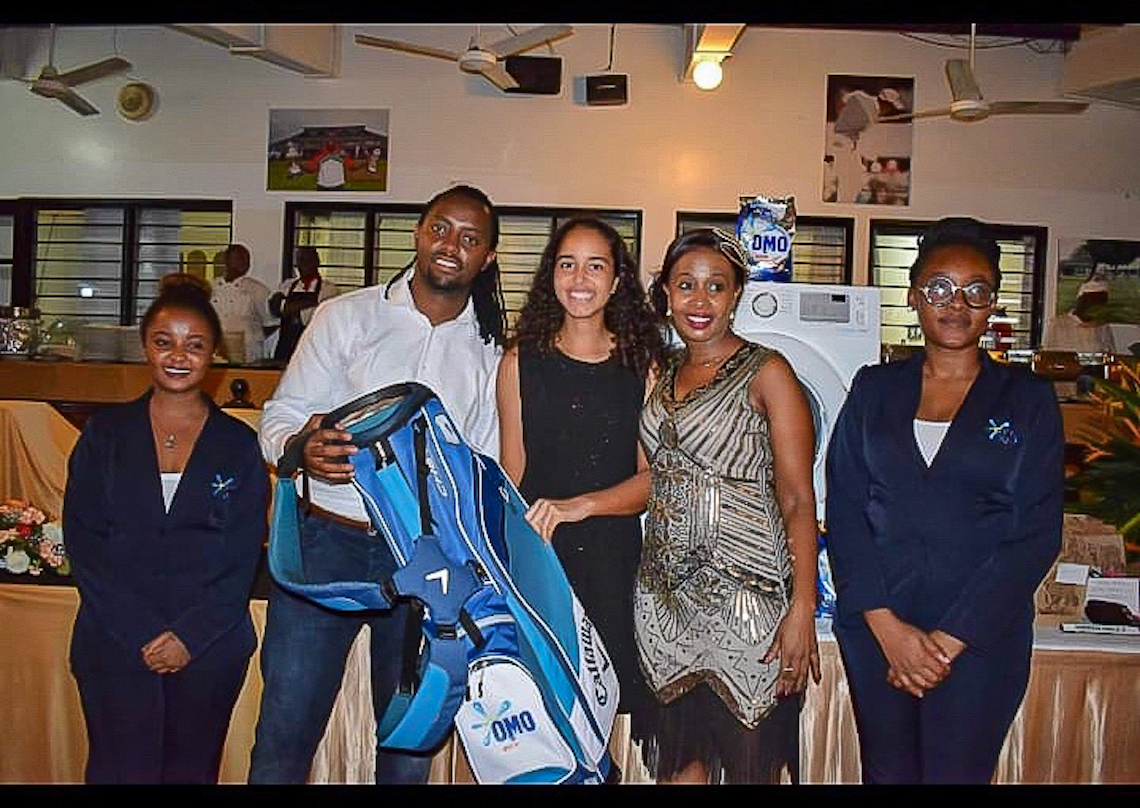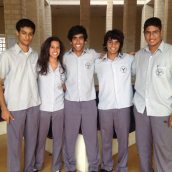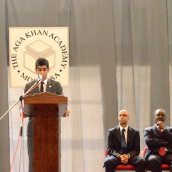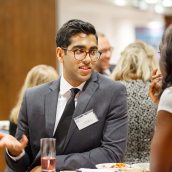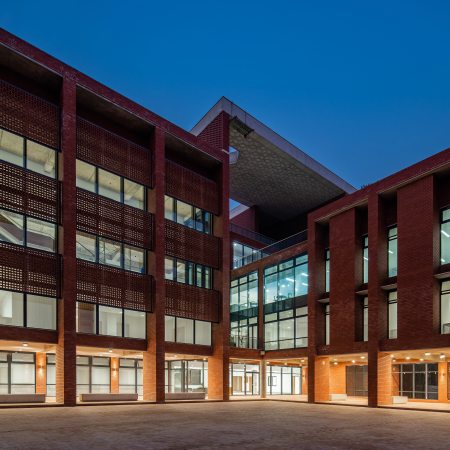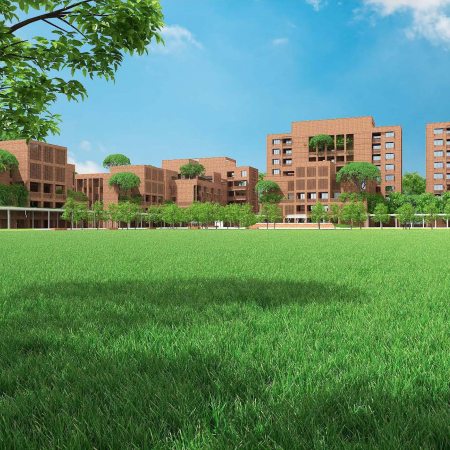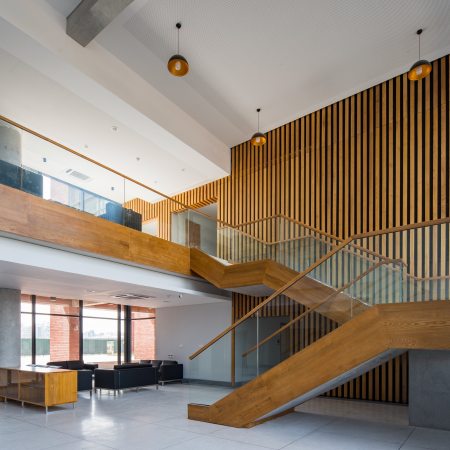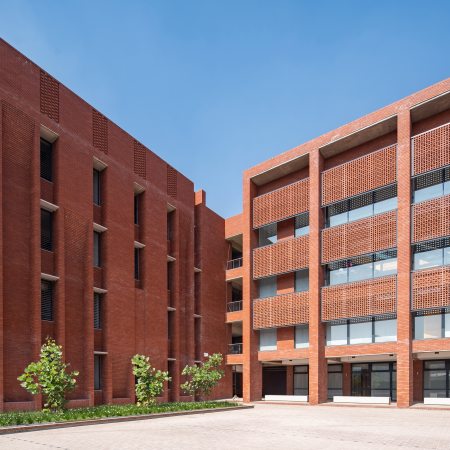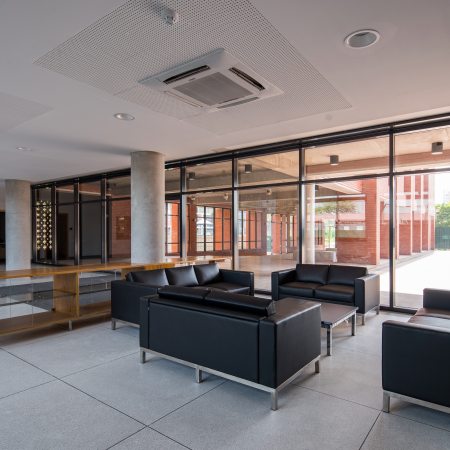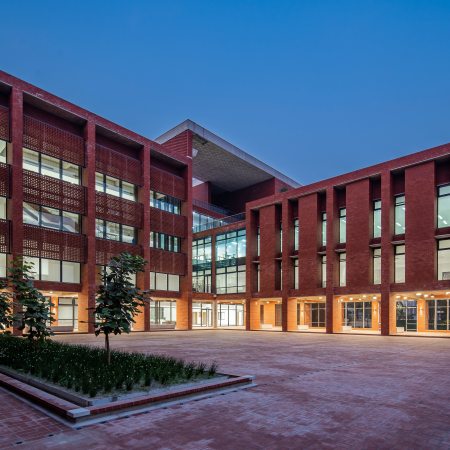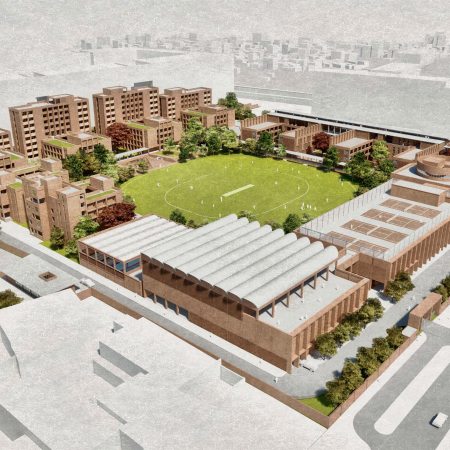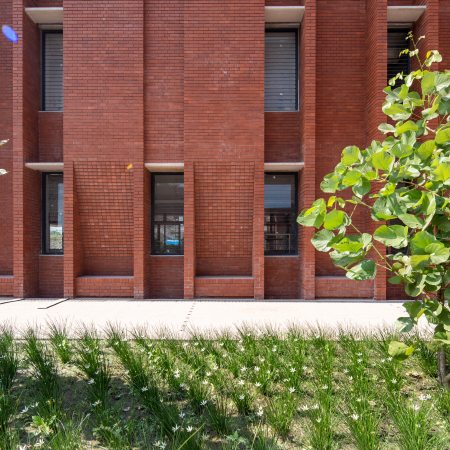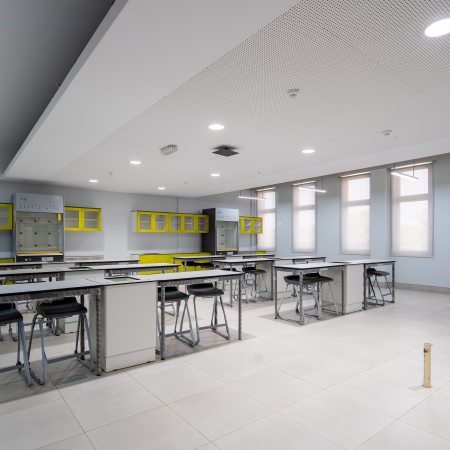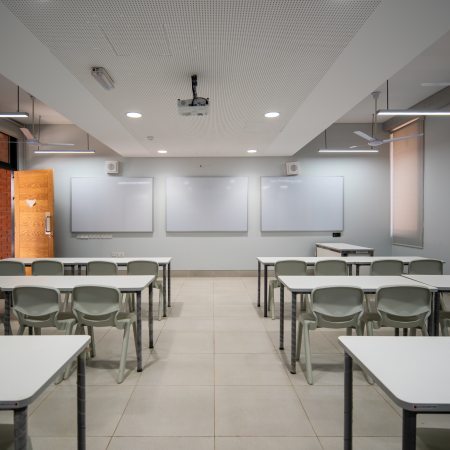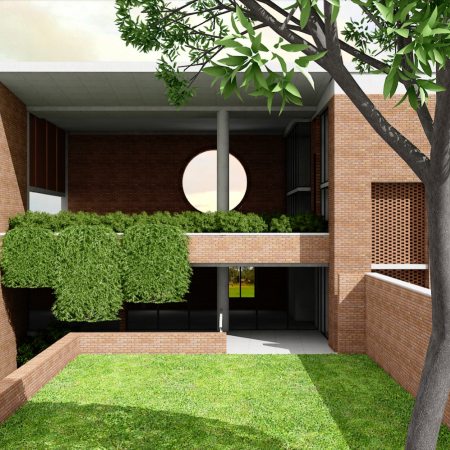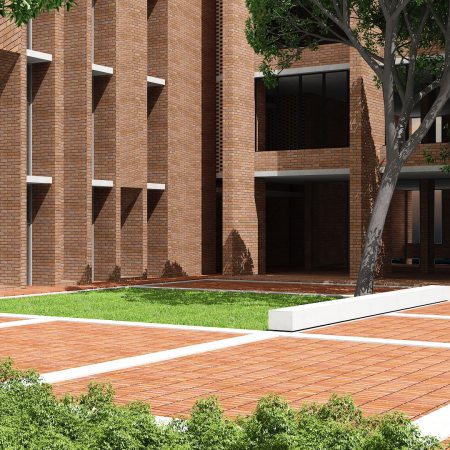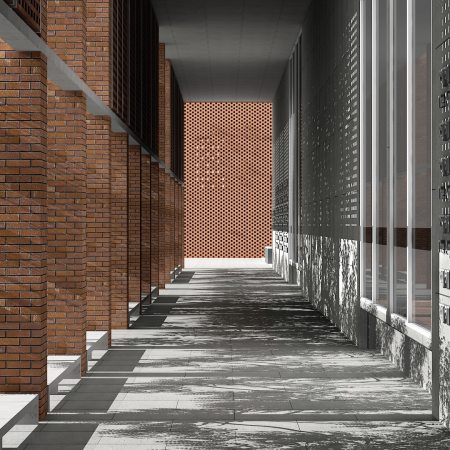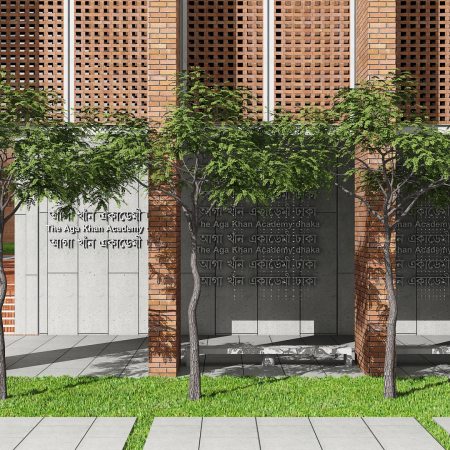At the Aga Khan Academy Mombasa, Ham Serunjogi – CEO and co-founder of African fintech giant Chipper Cash – realised the importance of staying connected to something larger than himself. The Forbes 30 Under 30 honouree is now serving as an advisor to the US President on African diaspora engagement.
Junior School Newsletter No. 7 - November 2015
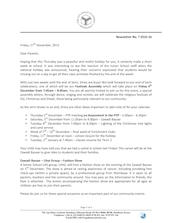
Read about upcoming events, staffing updates, and past events in this newsletter.
Junior School Newsletter No. 12 - March 2016
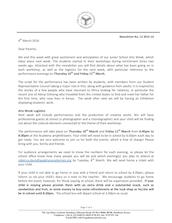
Read about the latest updates from Junior School.
Ruhi Kamal Manek (Class of 2016): Advocating for Africa
Ruhi Kamal Manek, an alumnus of the Aga Khan Academies in Mombasa and now a sophomore at Yale University in the United States, took away one enduring lesson from the Academy: the importance of engaging in thoughtful and careful consideration of diverse opinions. She explains that it was her time at the Academy that forced her to reexamine her old-world views and believes that her new way of thinking as a citizen of the world was borne of her stay in residence at the school:
“Living with people from so many diverse backgrounds helped me appreciate differences in people. This experience further helped me feel comfortable interacting with people from diverse backgrounds and diverse cultures at Yale.”
Ruhi was born in Nairobi, Kenya and grew up in the small town of Eldoret. It was her desire to learn and challenge herself more that made her apply to the Academy.
“I could not think of a better place to do that than at the Academy,” Ruhi states. “Being admitted to the school was the beginning of a transformative journey for me - a defining moment in my academic and personal life.”
The Academy places immense importance on meaningful public service. Ruhi participated in numerous voluntary undertakings but it was involvement in the annual school-based deworming program in the impoverished Bombolulu area of Mombasa that had a lasting impact on her. Under this program, school children receive an oral dose of deworming medicine designed to lower their risk of infection by worms and thus enhance their health and school productivity.
“The experience opened my eyes,” Ruhi says. “The thought that something so trivial as administering a few drops of medicine in a child’s mouth can transform that child’s future was inspiring to me.”
Involvement in this program inspired Ruhi in many ways. Watching the children joyfully engage with life forced her to reflect on values of humility, modesty and gratification:
“As I stood among the children, I felt as though my heart had grown twice as large, making space for these beautiful souls. I was filled with an inexplicable amount of joy as I marveled at the contentment and optimism around me. Despite the conditions in which the children lived and learned, they were radiating with happiness. I was in awe. The whole experience reminded me of a quote by the Buddha: ‘The cessation of desire is the cessation of suffering.’”
After this experience at the Academy, Ruhi continued her volunteer work at Yale. She is part of the TEDxYale team and helps to organize seminars and conferences. She is a member of Yale UNICEF and is involved in fund-raising efforts to make a difference in children’s lives globally. Committed to women’s rights regarding education and leadership roles, Ruhi also joined the Yale chapter of the Circle of Women, a non-profit organization “that educates, inspires and empowers women to become leaders and peacemakers.”
Additionally, Ruhi is involved in developing a wellness curriculum for a girls’ secondary school in Orkeeswa, Tanzania, which promotes the ideas that healthy students are better learners and that focusing on wellness now can produce huge intergenerational benefits.
“My first year at Yale has undoubtedly been enhanced through my participation in activities that I have long been passionate about,” states Ruhi. She unequivocally credits the Academy’s International Baccalaureate (IB) curriculum and the residential program for her growth and personal development. “My journey at the Academy was one of the most intense yet fulfilling growth periods of my life. I think it is safe to say that it played a key role in helping me develop the person I am today.”
When asked what her aspirations are for the country of her birth, Ruhi radiates determination. “I want to help redefine the way in which the rest of the world views my country, and more particularly the African continent. I want to be an active agent in ensuring that our stories are no longer told for us but by us.”
She is also determined to promote education in her country. “I want to tackle the issue of the lack of education. I value nothing more than the education I have been so privileged to receive and the many opportunities that have come my way because of it. I wish to help provide the same for as many people as I possibly can in my country of origin and beyond.”
By Perviz Walji
Newsletter readers please click here to return to the newsletter (browser version)
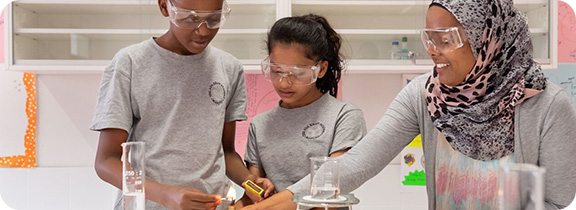
Middle Years Programme
The Senior School of the Aga Khan Academy Hyderabad is an authorised International Baccalaureate (IB) World School offering the Middle Years Programme (MYP).
What is the MYP?
The MYP is a challenging and exciting inquiry-based curriculum that actively engages students in their learning by encouraging them to make connections between what they study and the wider world. The five-year programme offers students access to a curriculum that is broad and balanced, conceptual and connected. What matters is not absorbing facts that can be repeated but developing ways of thinking that can be applied to new situations.
There are 8 subject groups within the MYP. Here at the Aga Khan Academy in Maputo our students study Portuguese and English language and literature, Portuguese, English and, in MYP3, French language acquisition, humanities, sciences, mathematics, visual arts, design and physical and health education.
In addition to the academic subjects our MYP students also develop leadership skills, library research skills and initiate and participate in service with the community.
In the final year of the programme students complete a personal project that encourages them to strengthen their approaches to learning skills, consolidate prior and subject-specific learning and develop an area of personal interest. In the context of the Aga Khan mission, vision and values, it also develops awareness of a community need and seeks to address it in a meaningful way. The personal project is challenging, motivational and interesting as each student develops a personal project independently.
MYP Learners
The MYP promotes open communication, based on mutual understanding and respect. It encourages students to become active, compassionate lifelong learners. The programme is holistic and as such is concerned with developing the whole person. Along with cognitive development, the programme addresses students’ social, emotional and physical well-being. Students are encouraged to become active and caring members of local, national and international communities who respect themselves, others and the world around them. They develop effective communication skills, social skills, self-management skills, research skills and thinking skills that will enable them to adapt to a range of contexts, as they make their way through life.
Assessment for learning
Teachers use a variety of assessment strategies to address the MYP subject-group objectives. The assessment for learning tasks include, among other things compositions, creating solutions or products in response to problems, essays, examinations, investigations, questionnaires, research tasks, performances, presentations, research task and reports.
In the fifth and final year of the MYP, to be eligible for the internationally recognised MYP certificate students must successfully complete eight eAssessments:
On-screen examinations in:
- Language and literature
- Individuals and societies (Humanities)
- Sciences
- Mathematics
- Interdisciplinary learning
ePortfolios (coursework) in:
- language acquisition
- physical and health education, arts or design
- the personal project
Students must also meet the school’s expectations for service and action.
The MYP bilingual certificate additionally requires successful results from on-screen examinations of:
A second language and literature instead of a course in language acquisition
The maximum total score for the IB MYP certificate is 56, with a grade from 1-7 assigned to each required eAssessment.
Students must achieve a total of at least 28 points, with a grade of ‘3’ or higher in each eAssessment component, to be eligible to receive the MYP certificate.
Transition to the IB Diploma (DP)
MYP subject groups form an important common foundation for all students and provide strong alignment with the six subject groups in the DP which follows. The two-year DP course encourages depth and breadth of learning and builds on students’ prior learning experiences. This encourages them to become confident, independent learners. It also encourages students to develop their critical thinking skills, self-management and global mindedness. Further, research carried out on behalf of the IB demonstrates that successful DP graduates are much more likely to be enrolled at top higher education institutions than entrants holding other qualifications.
Please visit the Admission Requirements page or contact us to find out more about applying to the MYP programme at the Academy.
*Only schools authorised by the IB Organization can offer any of its four academic programmes: the Primary Years Programme (PYP), the Middle Years Programme (MYP), the Diploma Programme, or the Career-related Programme (CP). Candidate status gives no guarantee that authorisation will be granted. For further information about the IB and its programmes, visit http://www.ibo.org.
Meet Our School Community
Spotlights on Alumni
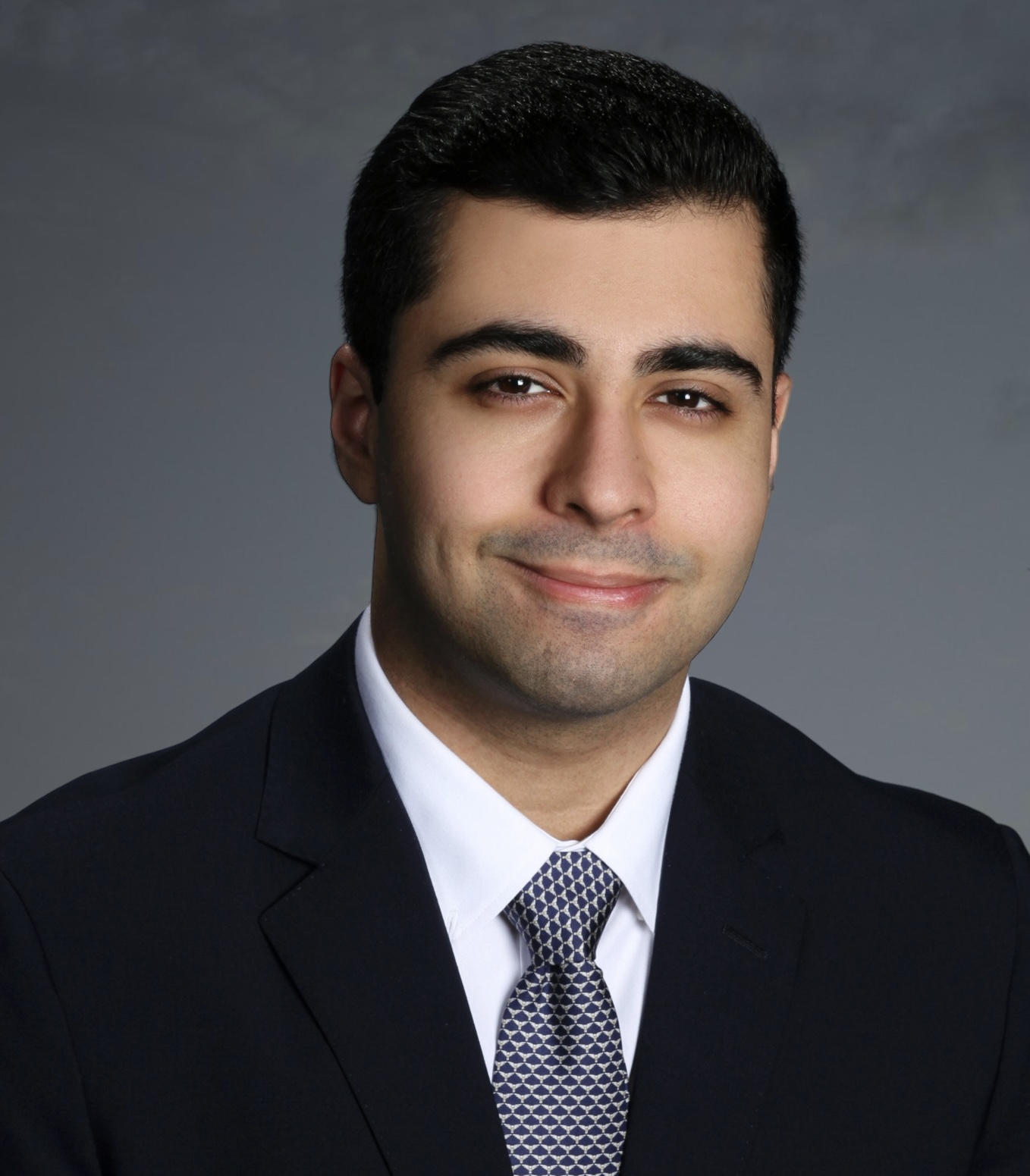
Although it has been a few years since he graduated from the Aga Khan Academy Mombasa, Alqaim Lalani, Class of 2019, says his years at the Academy had a major bearing on his academic career and strongly influenced his outlook on life. Now, as a graduate of Columbia University in New York, Alqaim is giving back to the Aga Khan Academies community that he says shaped his life and gave him so much.
Jemin Patel’s journey to where he is now is the result of hard work and passion, values he picked up during his time at the Aga Khan Academy Hyderabad. Now, he's working at one of Canada's top accounting and consulting firms, still standing by the notion, "hard work always wins."
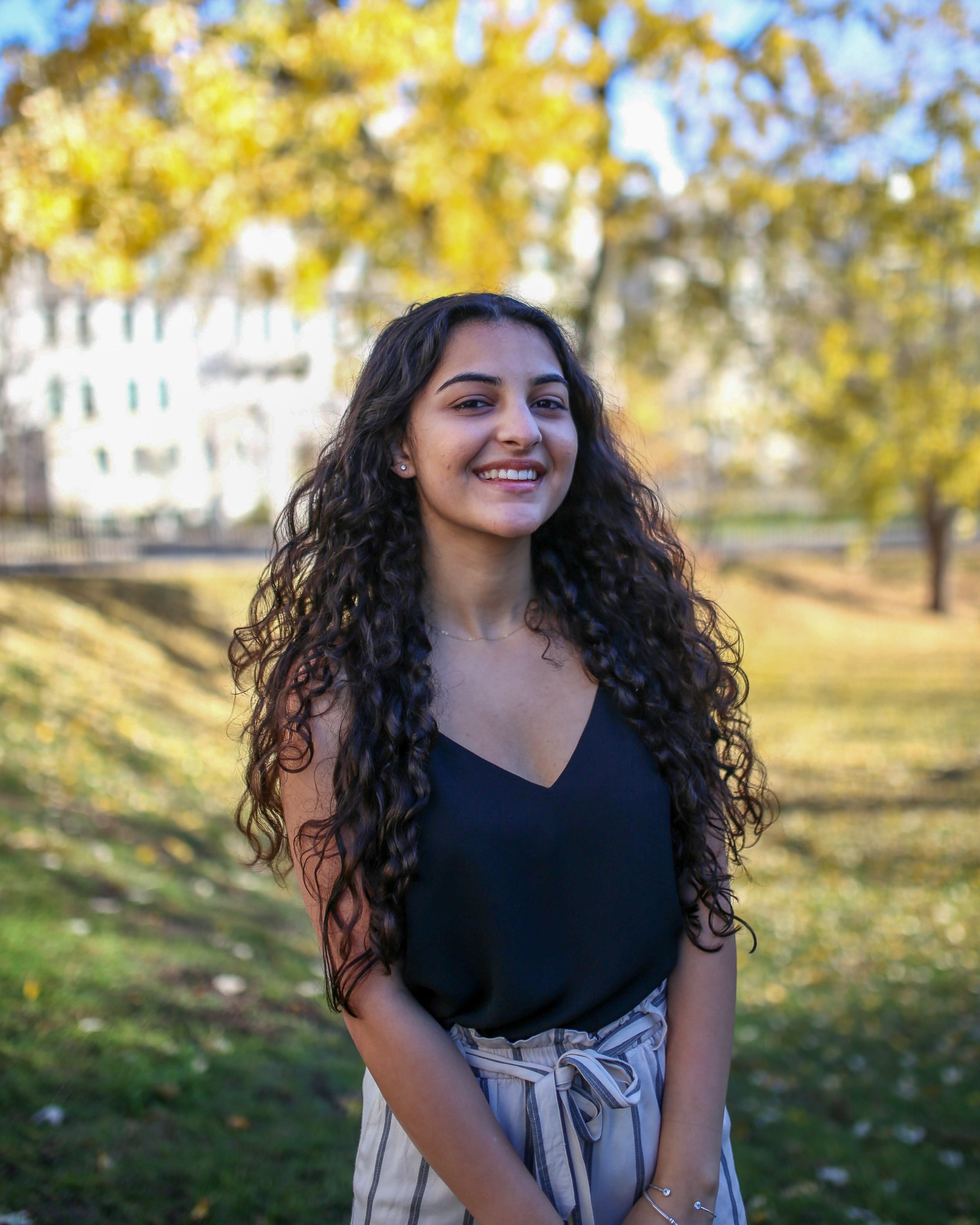
Muskaan Bhaidani is an alumna of the Aga Khan Academy Mombasa who was in the Class of 2020. Graduating with an impressive International Baccalaureate (IB) Diploma Programme (DP) score of 44 out of 45, Muskaan is now attending McGill University in Montreal, Canada.
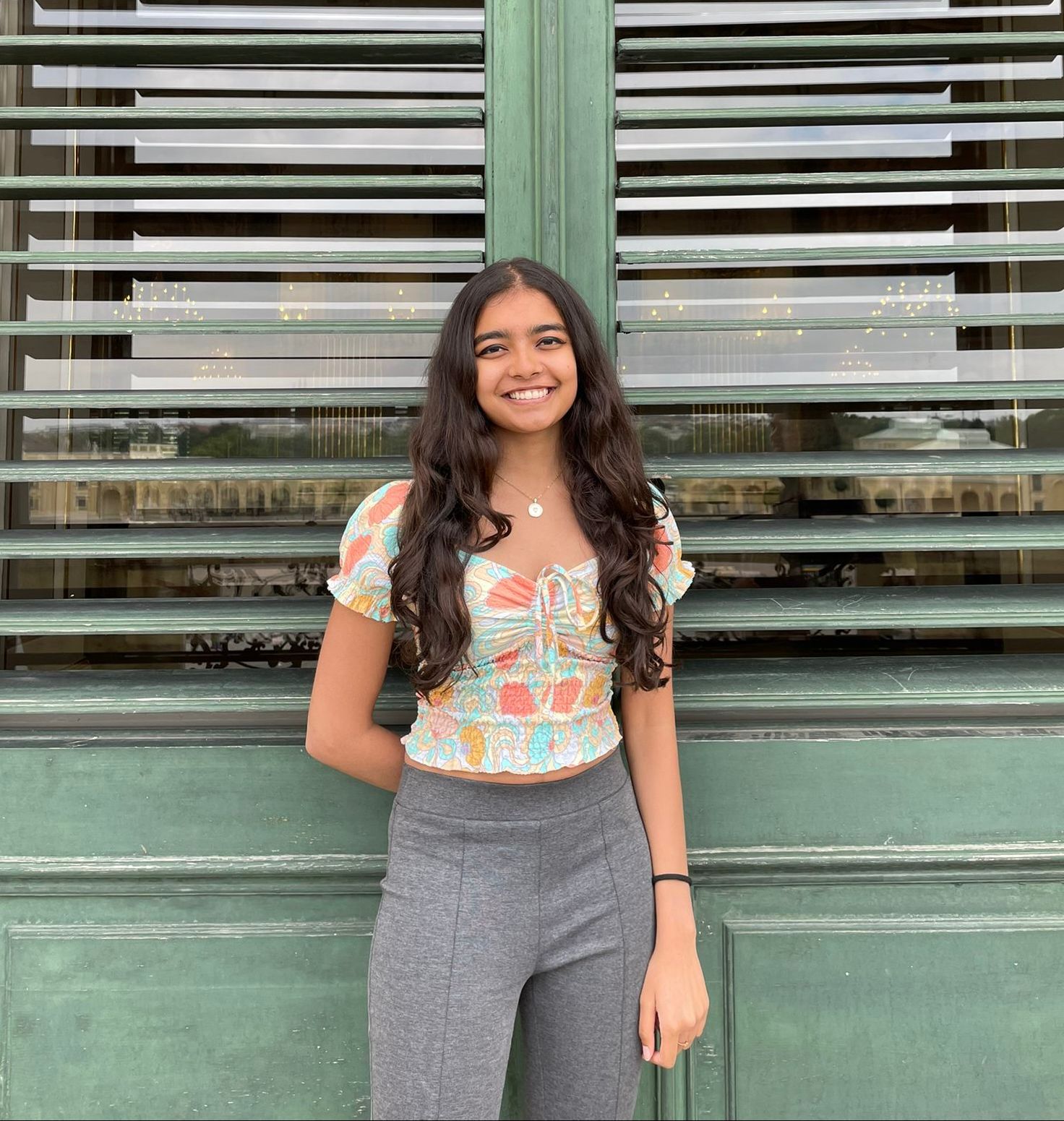
Anahita Aman, a graduate of the Class of 2020, studied at the Aga Khan Academy Hyderabad for eight years. Currently pursuing history at the University College London, she hopes to build a career in international development.
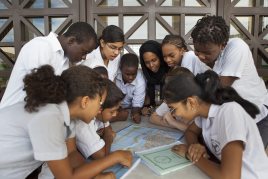
Congratulations to the Class of 2022! We are so proud of you and cannot wait to see what you do next. As we welcome our new graduating class to our alumni community, we asked four distinct graduates from the Aga Khan Academies in Mombasa and Hyderabad about their journeys and aspirations.
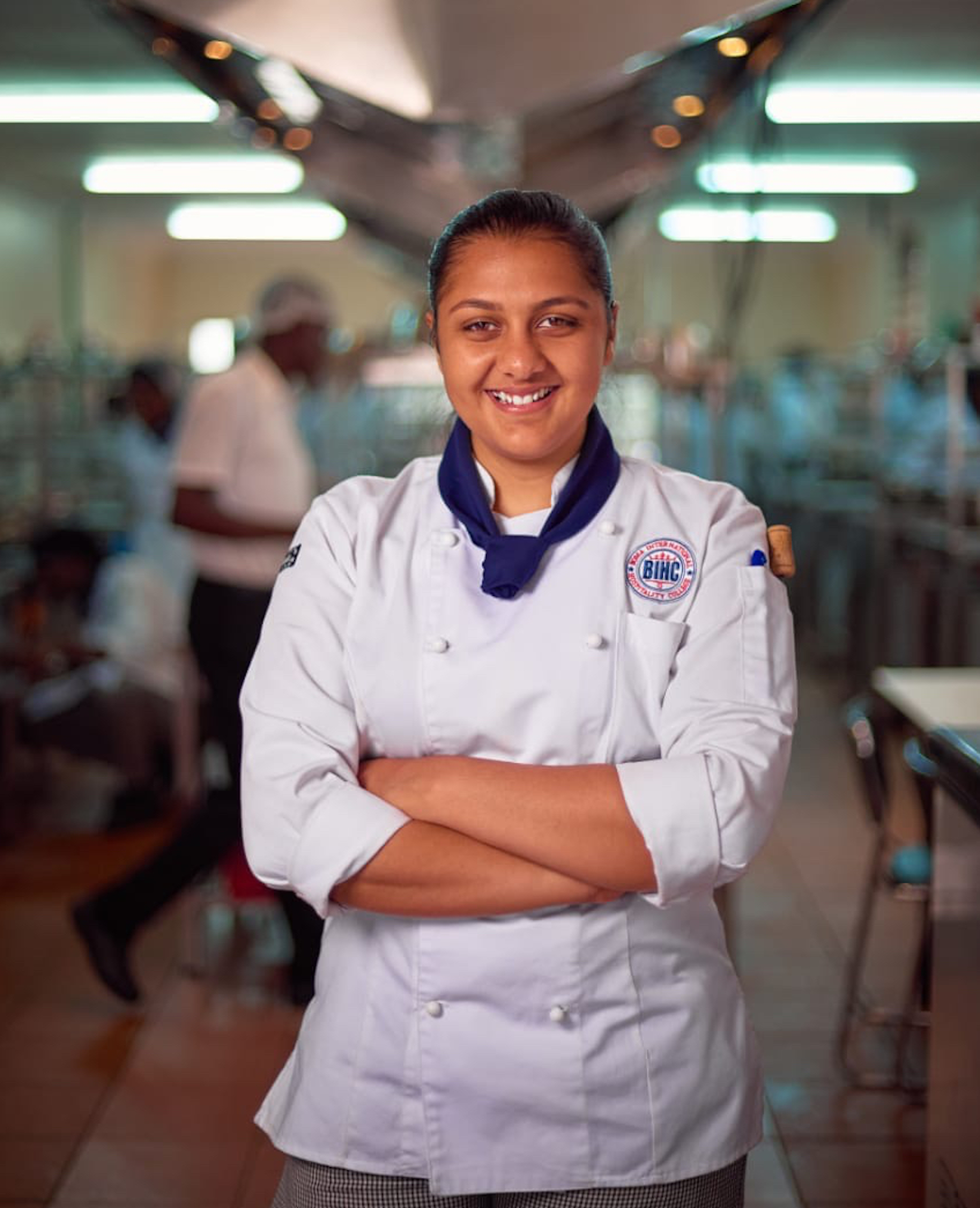
Qamili Dave, a 2017 alumna of the Aga Khan Academy Mombasa, discovered her passion for the culinary arts during her DP1 internship at Serena Beach Hotel. Since then, she has gone on to pursue her passion for cooking, including undertaking Harvard University courses to perfect her skills. What Qamili loves most about being a chef is preparing a good satisfying meal that warms the hearts of people.
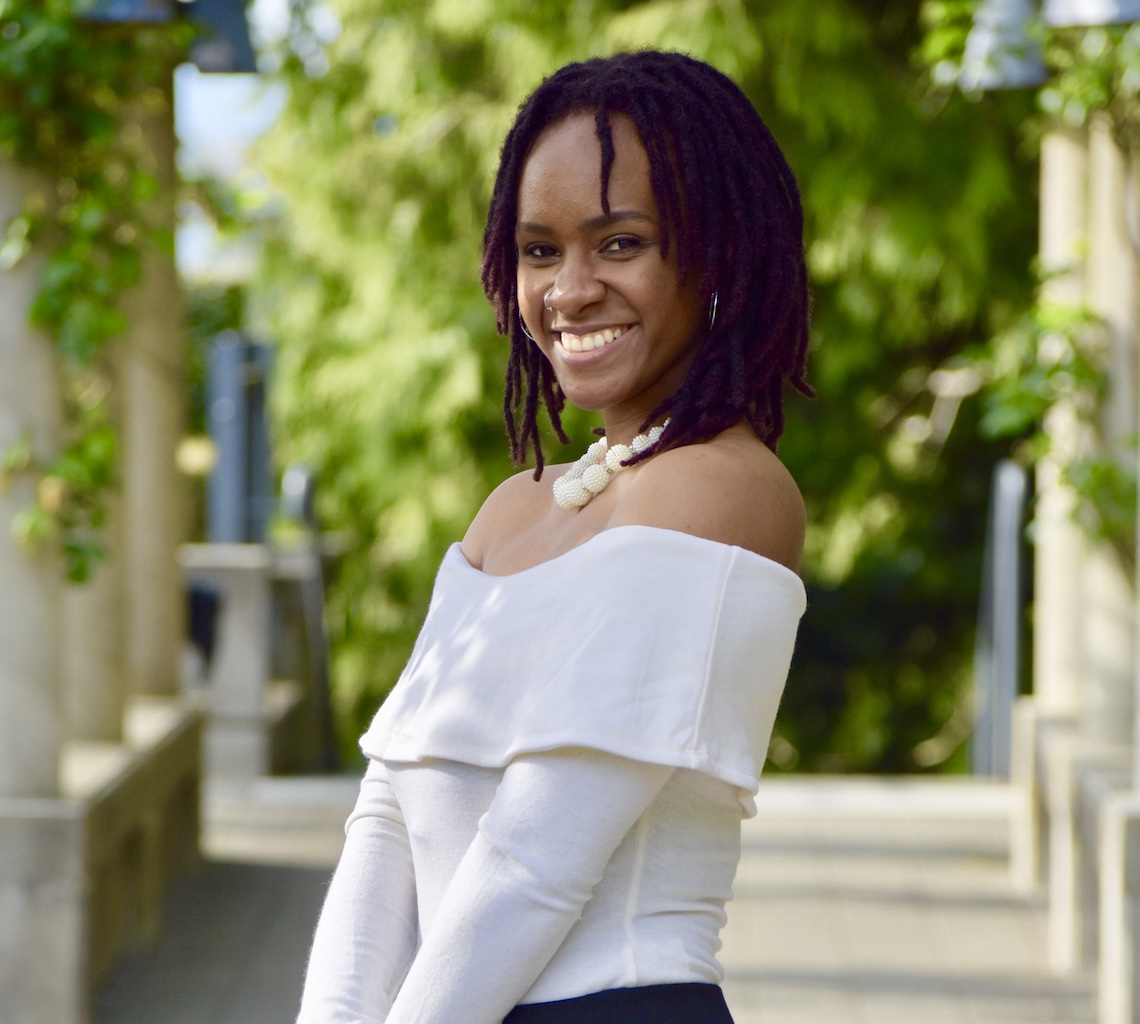
Lilian Odera, a 2015 alumna of the Aga Khan Academy Mombasa and recipient of the Karen McKellin International Leader of Tomorrow (ILOT) award, is the embodiment of a true leader and agent of change. True to form, she has a passion for actively being involved in community-based initiatives to influence change and creatively find solutions to issues in whatever way she can.
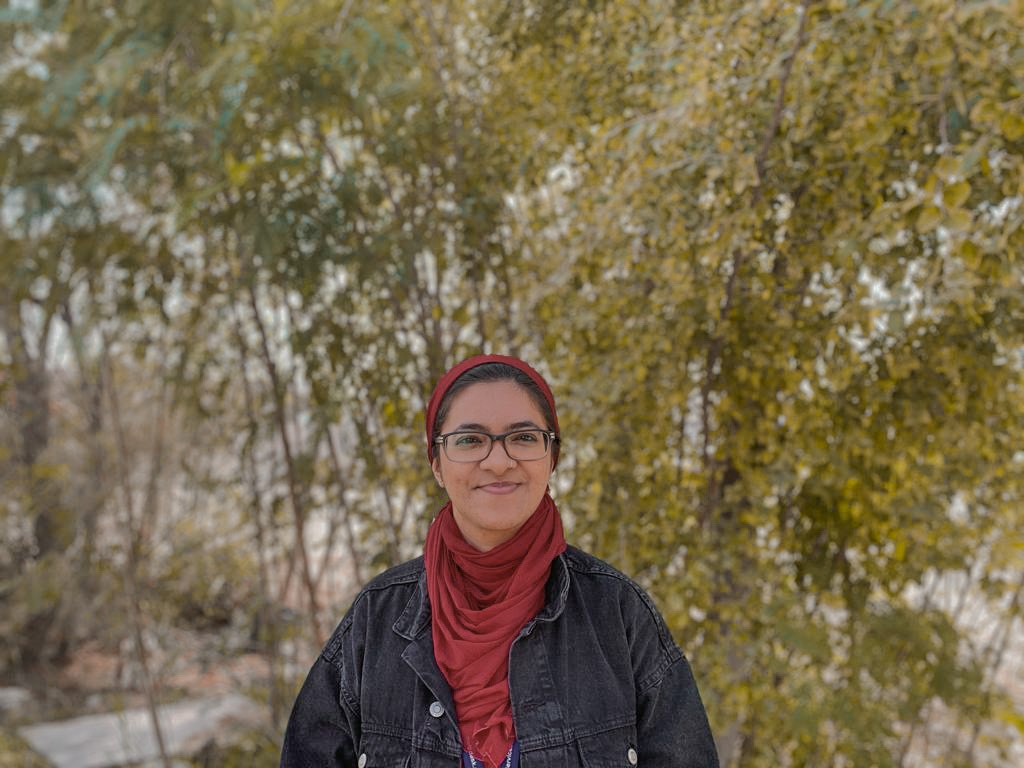
Aleesha Suleman, a graduate student at UCL-Qatar, has never lost sight of what has always been important to her: giving back to her home country of Kenya.
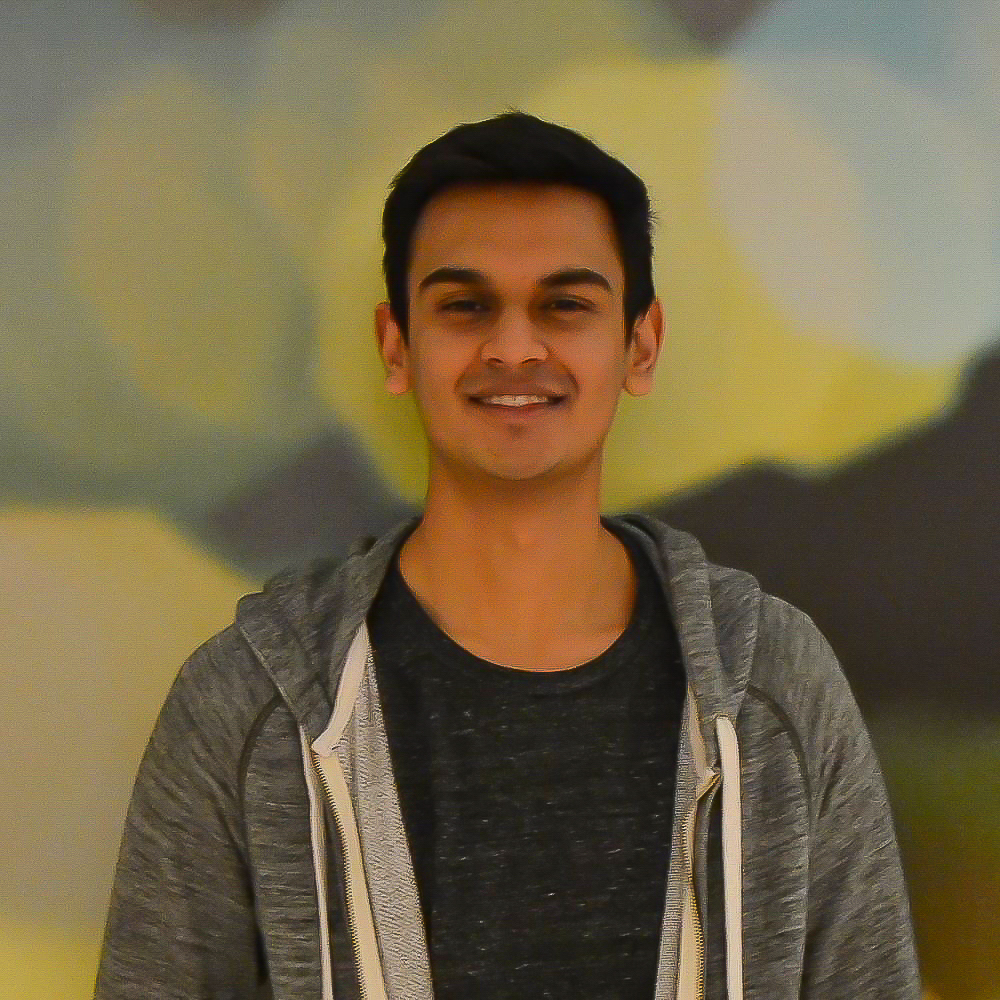
Raghuveer Vyas, director of the United Nations Initiative at New York University, is on a mission to bring change to the world through policy development and fostering a continuous dialogue between international leaders and the youth.
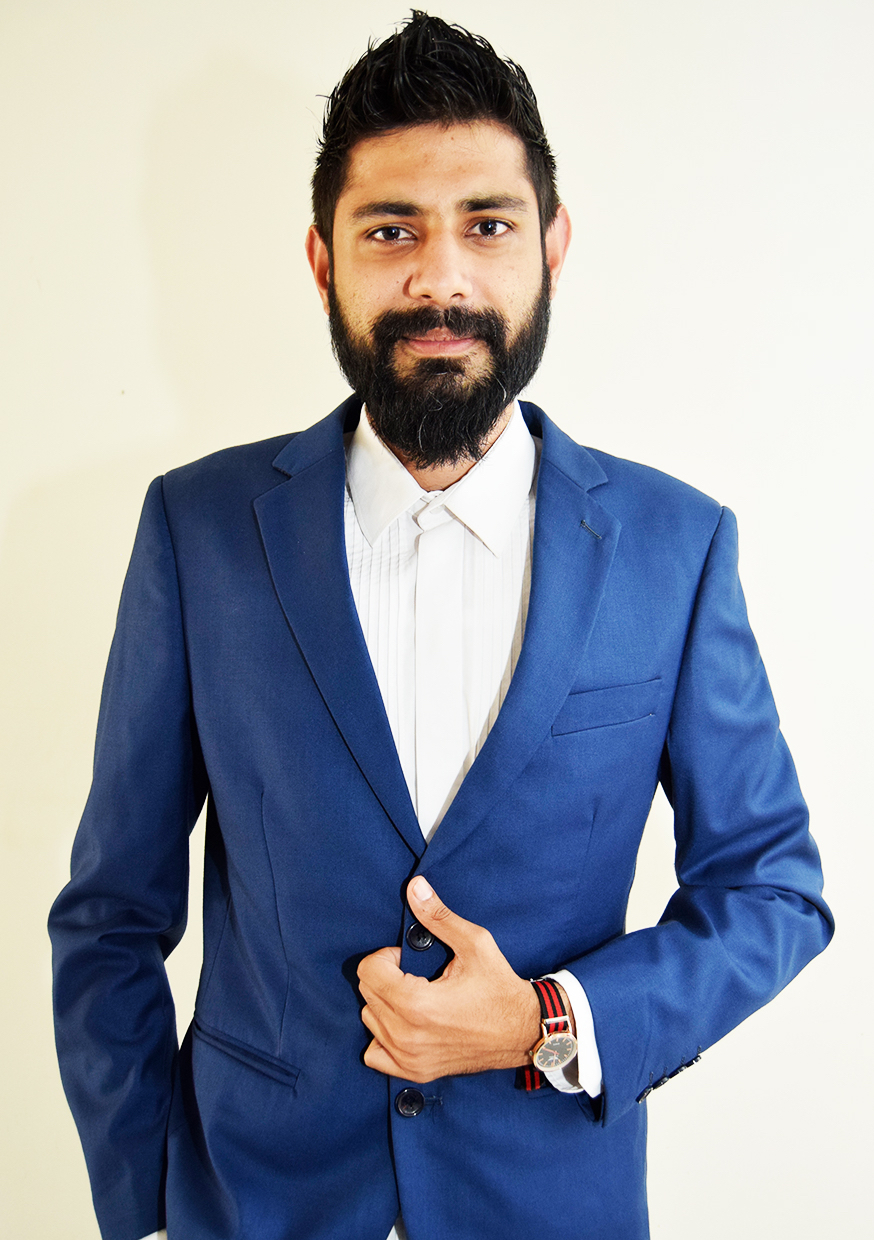
Hussein Jiva graduated from the Aga Khan Academy Mombasa after what he feels was a transformative journey.
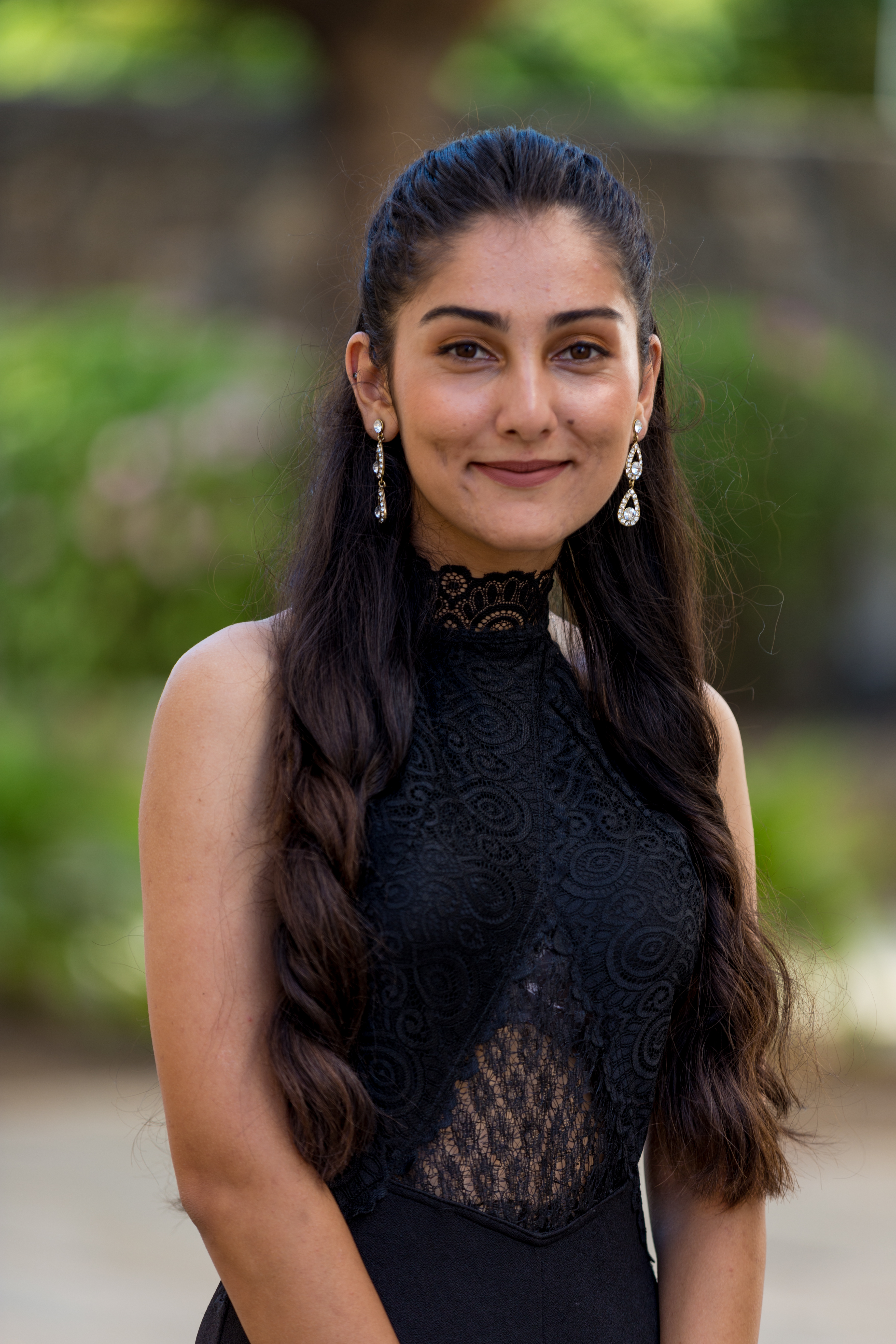
With a determination to change her country into a land of opportunity for all, Anzhela Mirzoeva, a recent graduate from the Aga Khan Academy Mombasa, will further her education at the Connecticut College in the United States by studying International Relations and Human Development.
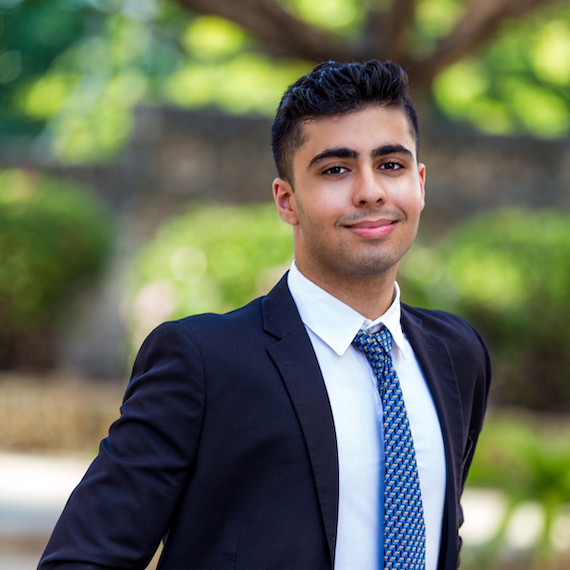
For Alqaim Lalani, his recent graduation from the Aga Khan Academy Mombasa brings him one step closer to realising his dream of attaining a deeper understanding of how economics and politics affect the world around is. Alqaim will be enrolling at Columbia University in fall 2019, as a prestigious Kluge scholar.
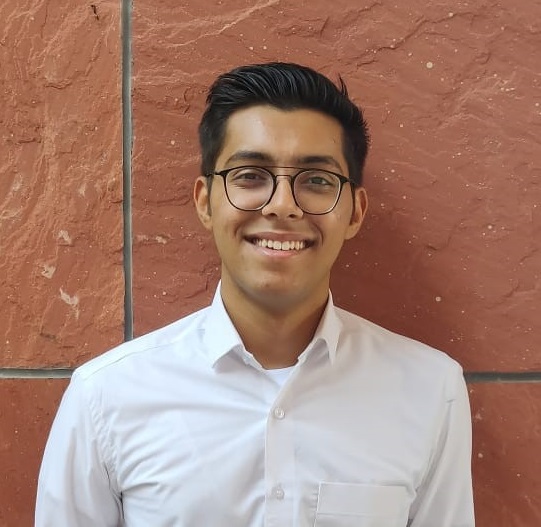
''I do not want a career in something predetermined for me from this age. When I am asked where I will be 15 years from now, I can promise you it will not be cooped up in an office doing routine work. I will probably be out there inventing something meaningful and purposeful, something which can be used to change the world.”
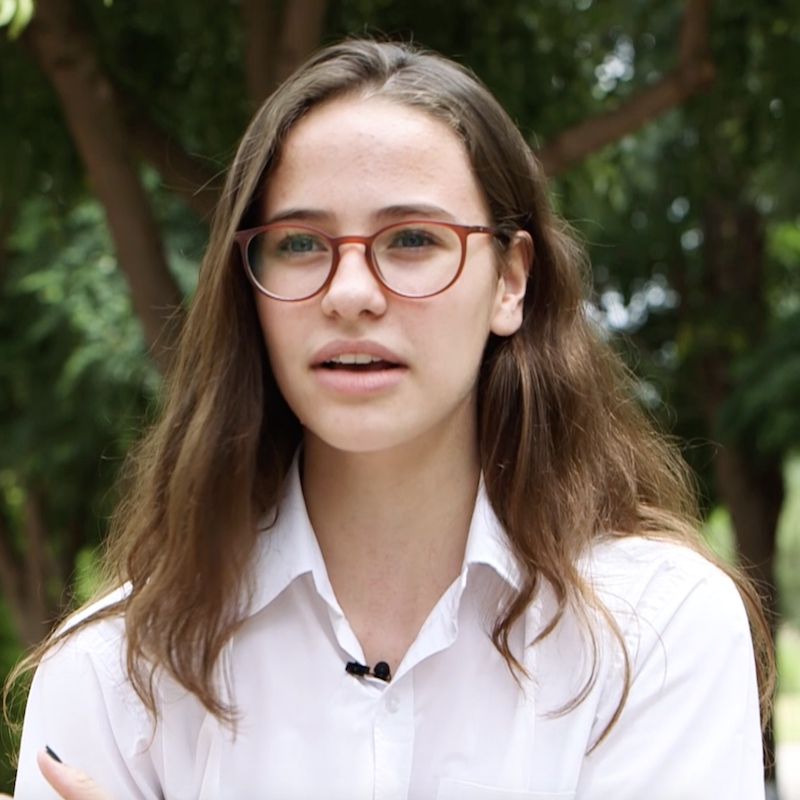
The International Baccalaureate (IB) curriculum is essential in enabling the Academies to develop well-rounded leaders of tomorrow. Hear from Zia Chapman, Class of 2018, and understand how this influenced her in choosing the Academy for her education. Zia is now a scholarship student at UBC in Canada.
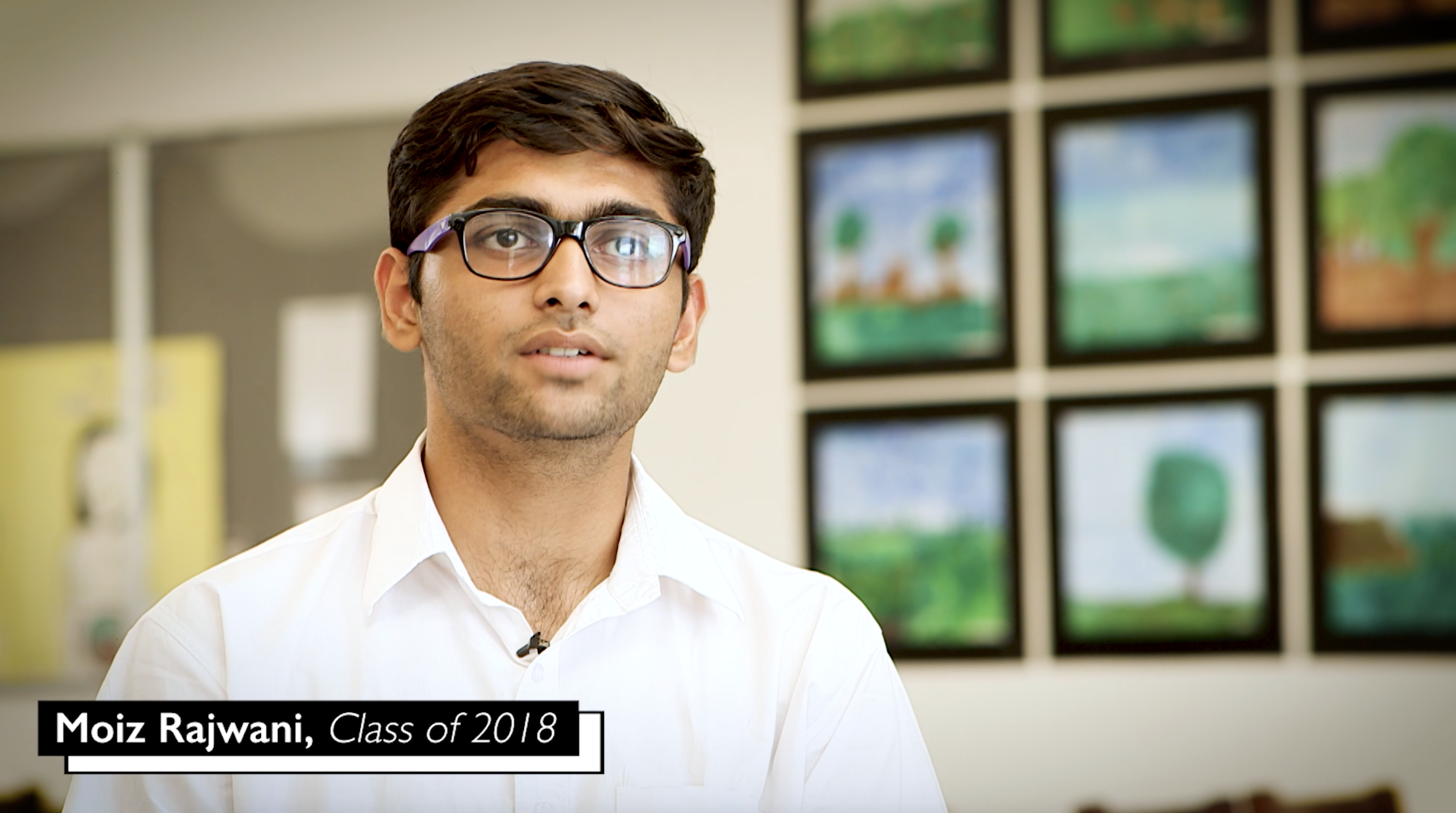
Through the inquiry-based International Baccalaureate curriculum, the Aga Khan Academies aim to develop young individuals who will have the capacity to lead and to build strong civil democratic societies in the future. Hear from one of our alumni, Moiz Rajwani, Class of 2018, and see how we have been turning this vision into reality at the Academies. Moiz was awarded a scholarship at Western University in Ontario, Canada and enrolled in September 2018.
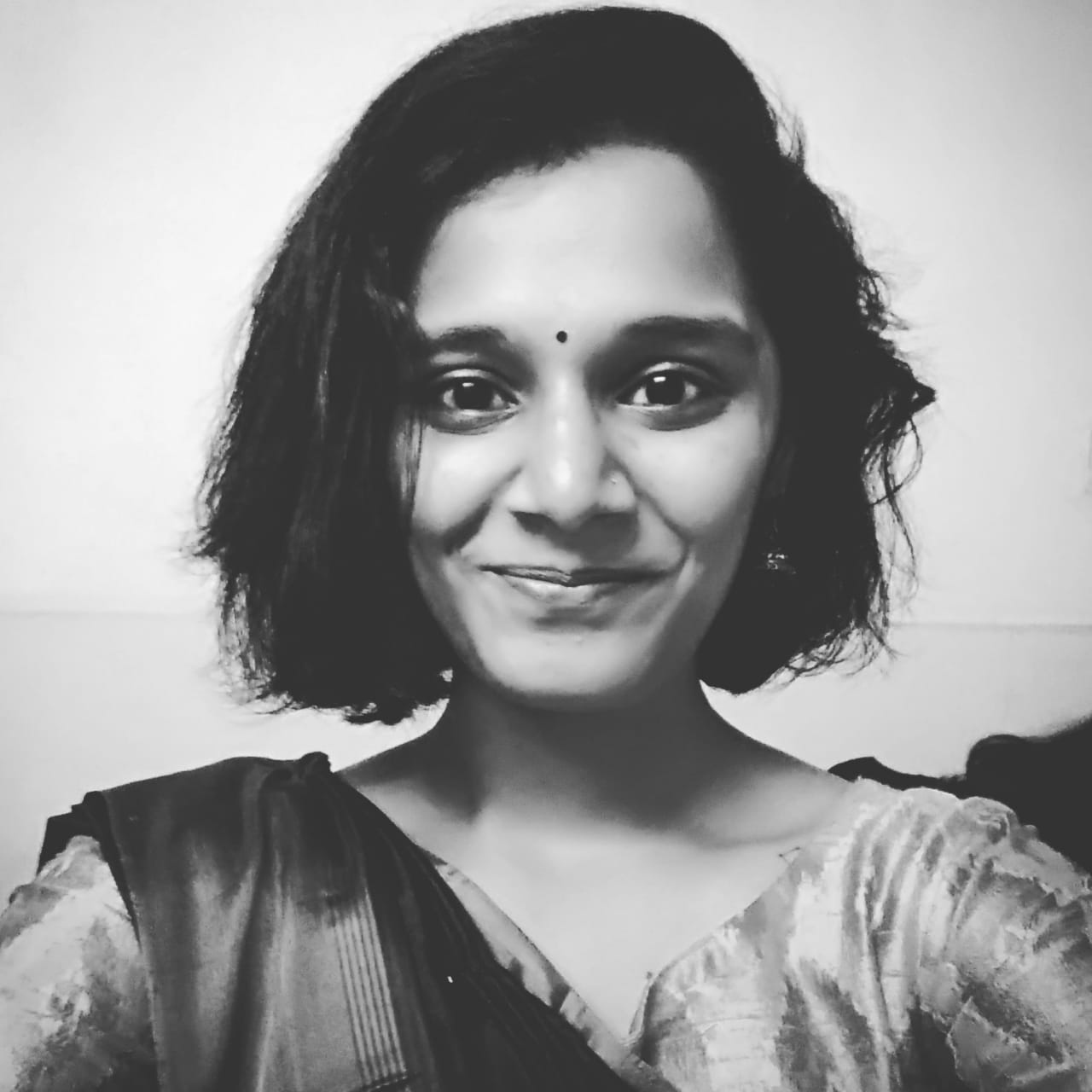
"I always wanted to work with people who spend every single day without any resources at their disposal, to work on the pressing issues that exist in India, issues that most of us never see through our rose-tinted glasses."
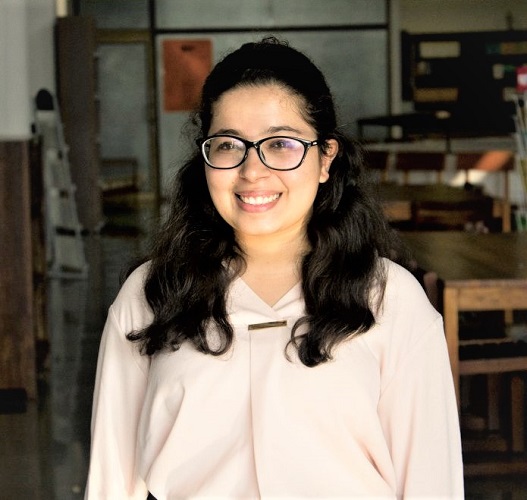
“The IB curriculum followed at the Academy has played a pivotal role in building many essential skills for university life. Its skill-based learning approach, and connecting classroom learning to the real world, also prepared me well for higher education."
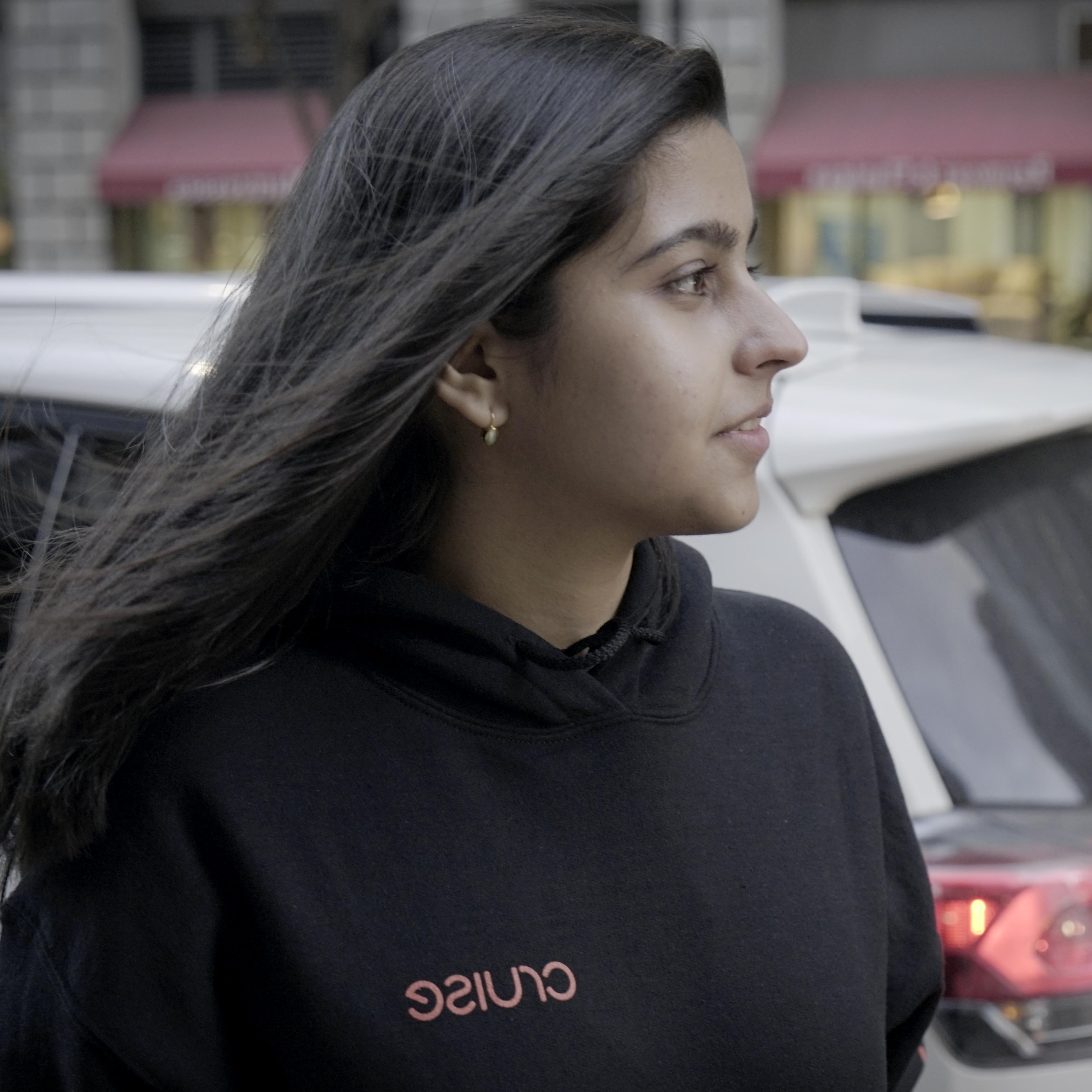
“The Academy helped me become comfortable with making mistakes and encouraged me to focus on identifying solutions instead – igniting an entrepreneurial spirit within me. It is this spirit which led me to take a year off, work on self-driving cars, build my own news-reading bot, experiment with developing a cloud-storage service and have the confidence to take the road less taken."
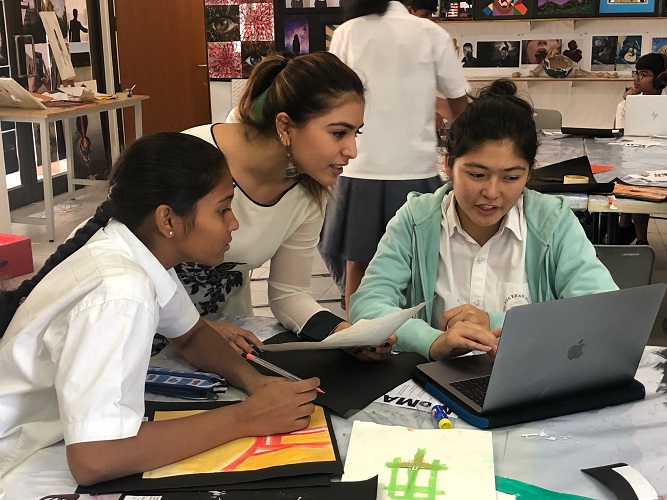
This 2014 AKA Hyderabad graduate is in some ways a time capsule from the Academy’s early years, and like a time capsule, she reminds us of things that have changed, and also about the things that have remained the same. “The Academy has made me the person I am today,” she says. “I wanted to give back to school what it has given me.”
Josephine Awino, alumna of the Aga Khan Academy Mombasa, will be attending Wellesley College for her undergraduate studies in environmental science. She shares a reflection on her personal journey at the Academy in which she developed a sense of self and fostered her passions.
Muriuku Njonjo graduated from the Aga Khan Academy Mombasa with the receipt of a full scholarship to the University of Waterloo in Canada. He shares a personal reflection about his time studying at the Academy: "The Academy changed my way of thinking, my way of doing things and informed my purpose in life."
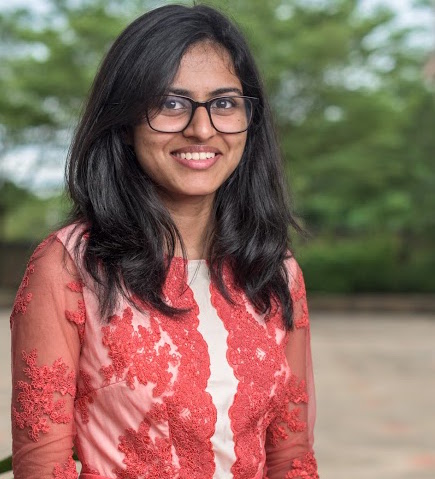
Kamila Janmohamed graduated from the Aga Khan Academy Mombasa this year. Upon anticipating her upcoming start at Yale University, Kamila reflects on the intellectual growth and strong sense of self she has developed over the past four years at the Academy.
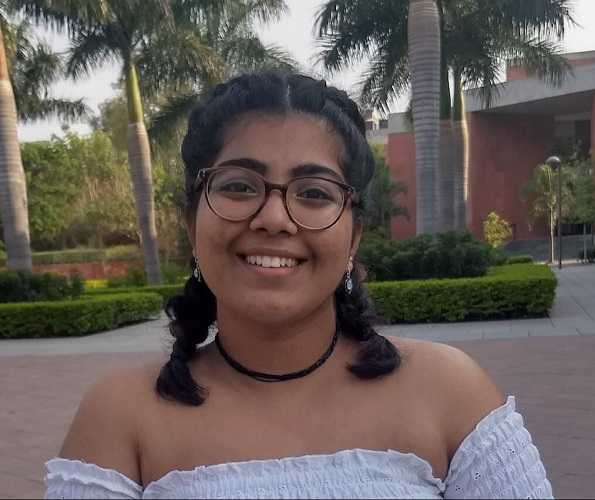
I love that my classes are filled with students from all parts of the country, irrespective of their financial standing or cultural background. I strongly believe it helps build our vision of pluralism.
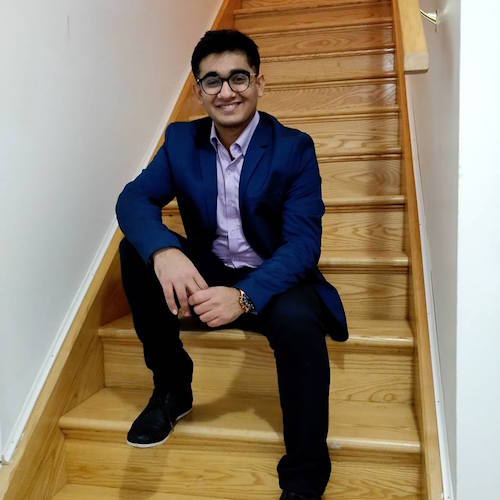
Ariq Kapadia, alumnus of the Aga Khan Academy Hyderabad, shares a reflection on his personal journey during his time at the Academies: "The experience that I had in those five years at the Academy continues to develop me further and make me more capable of success."
Inaara Sarfani shares a reflection on her personal journey at the Aga Khan Academy Hyderabad. She explains that her time as a student there entirely shaped the person she is today and allowed her to develop a far-reaching skillset.
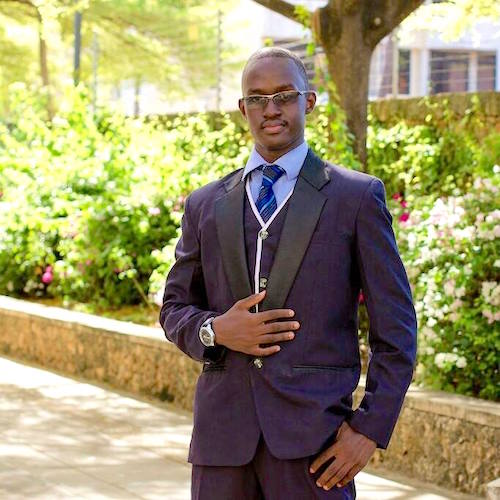
Joshua Abuto tells an inspiring and promising tale of what drives him to sustain his vision of making a difference in the lives of his fellow citizens in Kenya. A 2016 graduate of the Aga Khan Academy Mombasa, Joshua is currently in his second year at the University of Texas at Arlington on a scholarship where he is studying computer science and engineering.
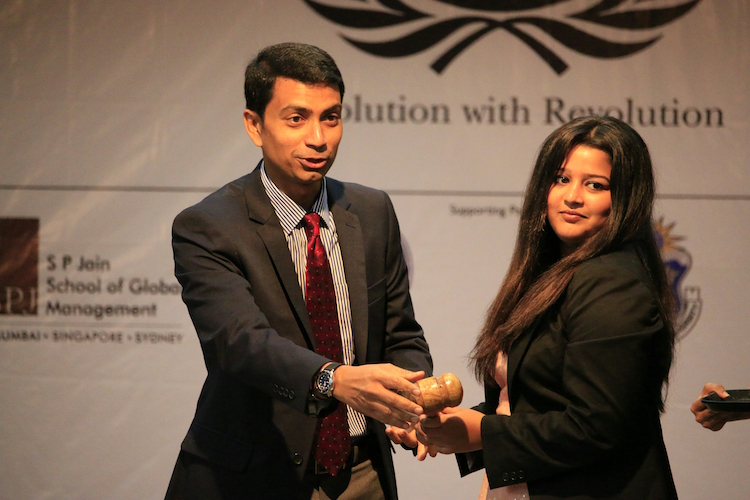
Khushboo Shah shares a reflection on her personal journey at the Aga Khan Academy Hyderabad: "I believe that the Academy’s dynamic vision has allowed me to believe in my imagination, passion and curiosity while pursuing ambitious projects."
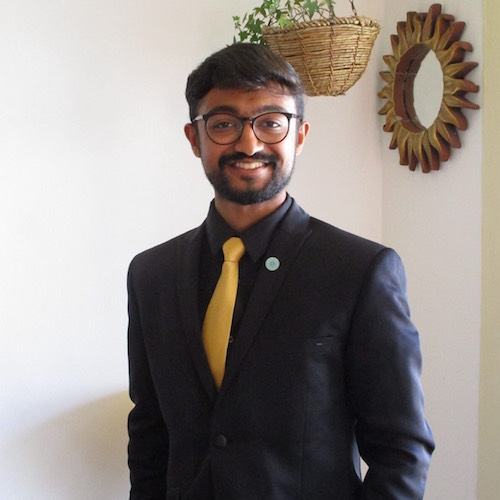
Imtiyaz Hariyani credits the Aga Khan Academy Hyderabad with giving him more than just the academic skills he needs to succeed at the undergraduate level. “The spirit that the Academy embedded in me has allowed me to emerge as a global scholar with the support of my family and lifelong friends that I made in Hyderabad and elsewhere,” he explains.
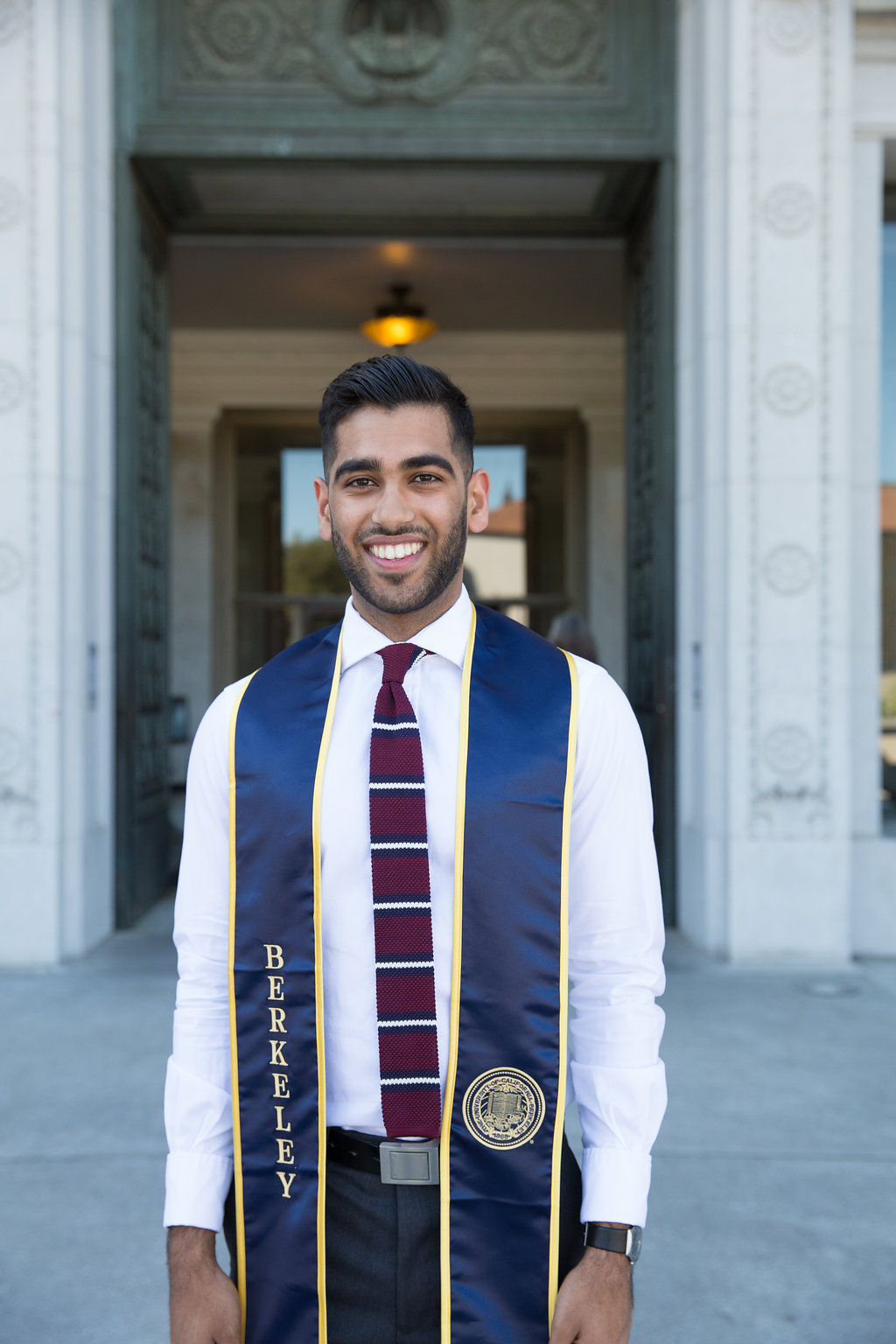
An alumus of AKA Mombasa and University of California Berkeley, Rahim reflects: "The Academy helped me to grow to be the man I am today by instilling values of social conscience and intellectual curiosity that I continue to hold precious today."
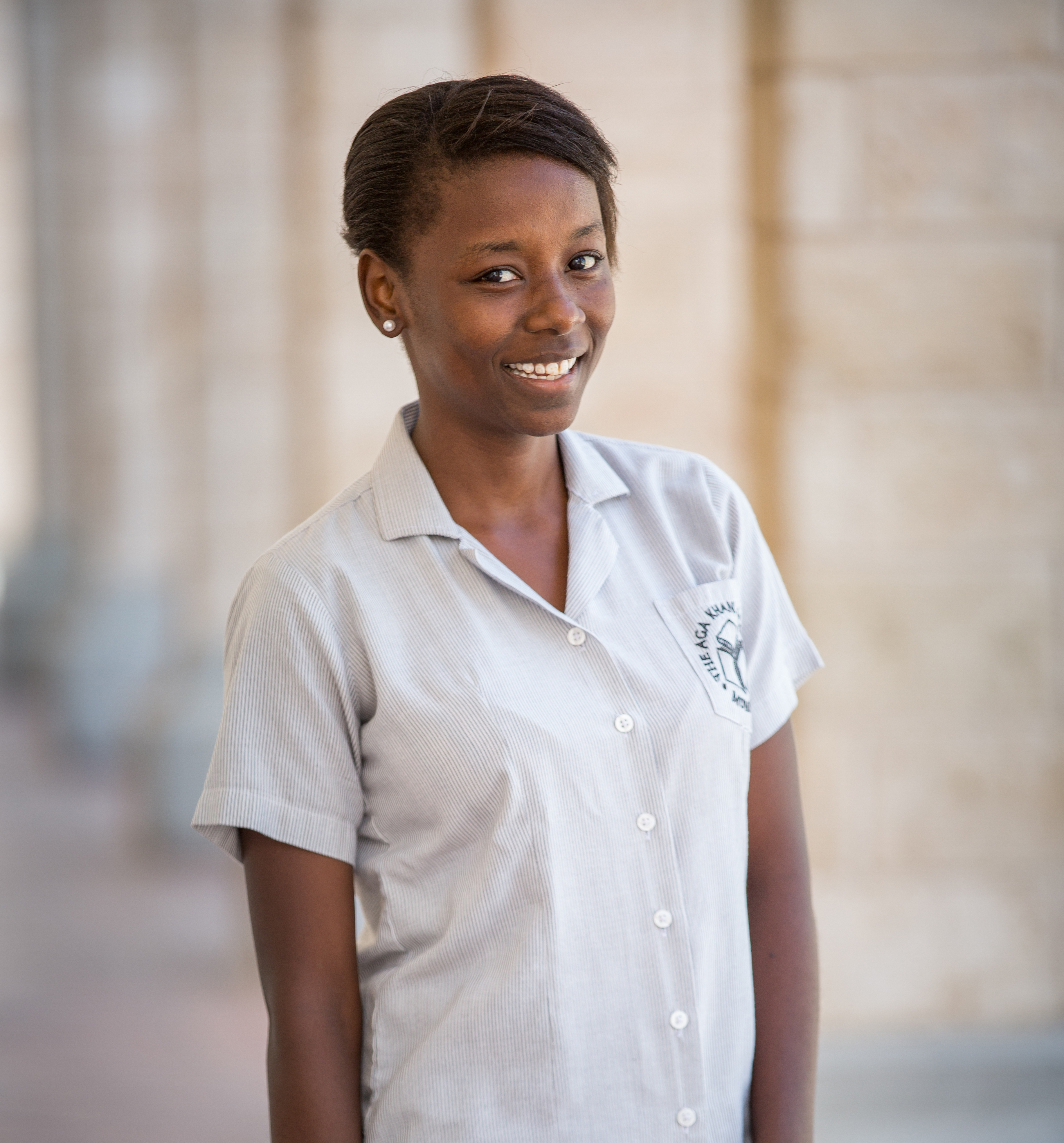
Mary considers her time at the Academy in Mombasa to be a gift. With compassion and leadership, she is determined to help students with similar backgrounds succeed and receive the same opportunities she was granted.
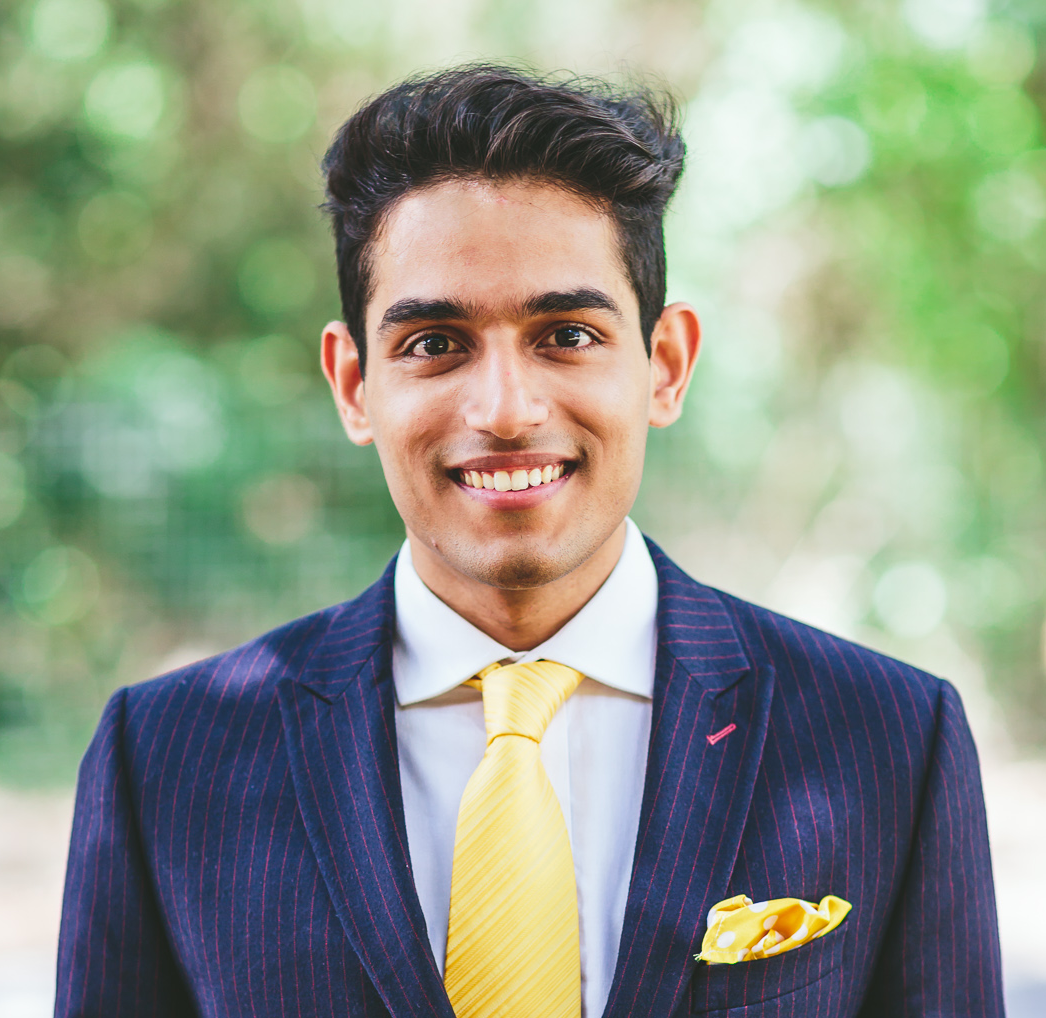
Danish is global citizen with a creative approach to life. One of his many achievements is the award-winning app, Orai, which aims to make anyone become a better public speaker using artificial intelligence.
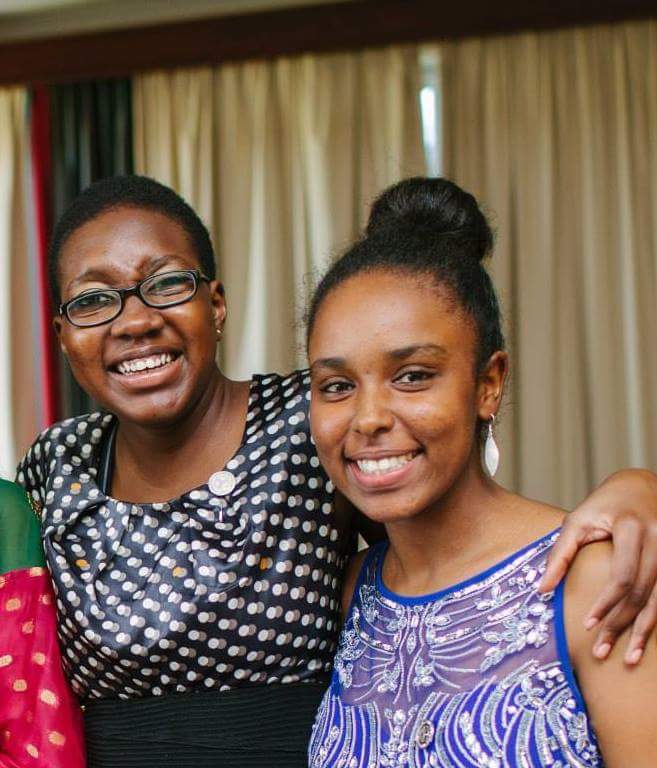
“The Academy helped instil within me a need to contribute to community where possible and a sense of self confidence and teamwork.”
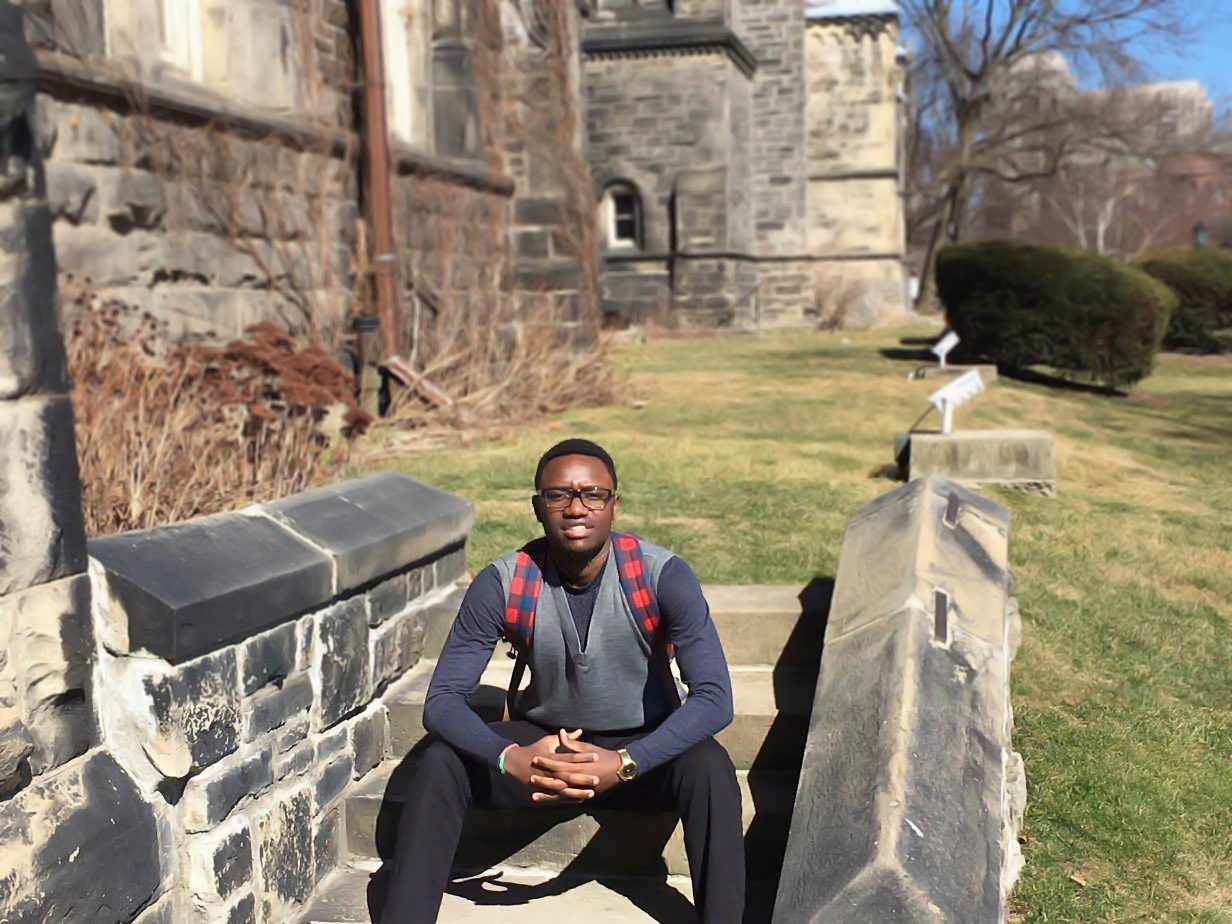
“I believe that with education, people have the power to tackle and solve problems that affect their communities,” reflects Kelvin Njue, a graduate from the Aga Khan Academy Mombasa who has benefitted from the Ontario Tuition Waiver Programme.
Ruhi Kamal Manek, an alumna of the Aga Khan Academies Mombasa, took away one enduring lesson from the Academy: the importance of engaging in thoughtful and careful consideration of diverse opinions.
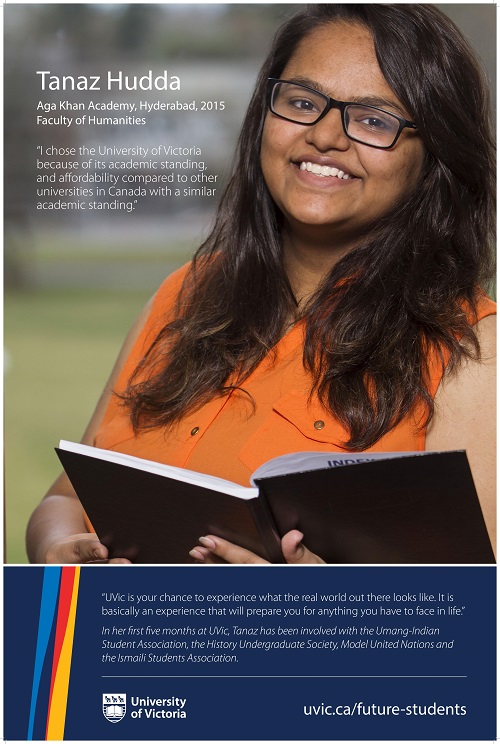
Tanaz Hudda currently acts as the new poster girl for the University of Victoria. She graduated from the Aga Khan Academy Hyderabad in 2016 and has just completed her first year of university in Canada.
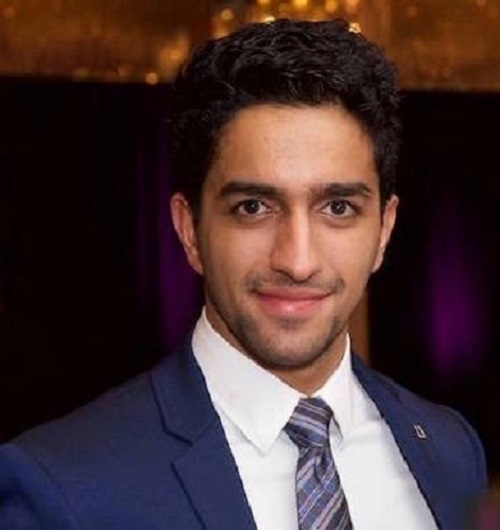
Aleem Mawji shares his journey of self-discovery, which began at the Aga Khan Academy Mombasa and continued towards creating tangible change.
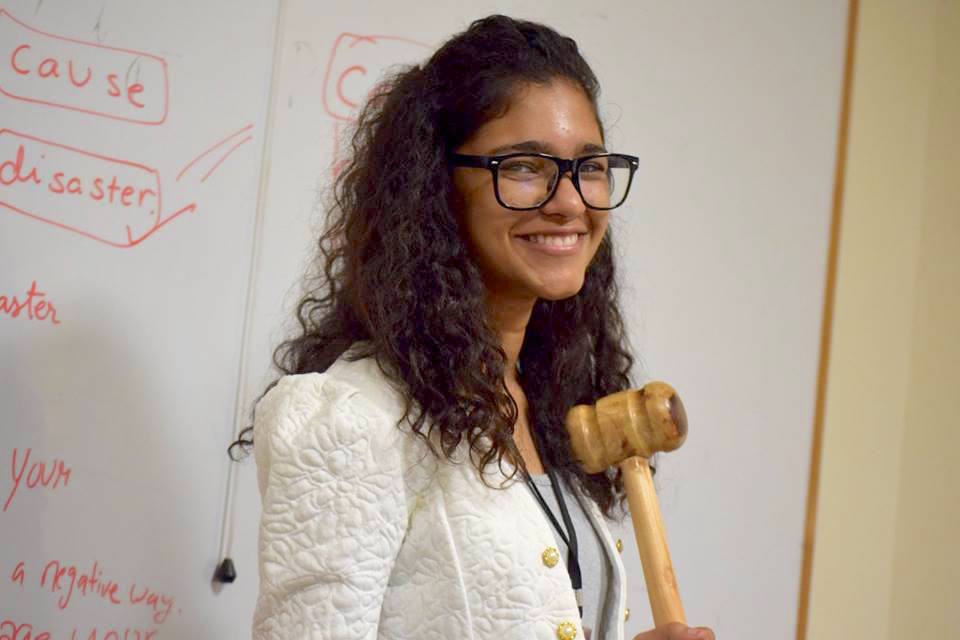
Khushboo Khoja has a strong passion for helping others which she developed during her time at the Aga Khan Academy Hyderabad. “I feel like my experience at the Academy was very significant as it made me realise that I am interested in working with social issues and trying to help communities,” she reflects.
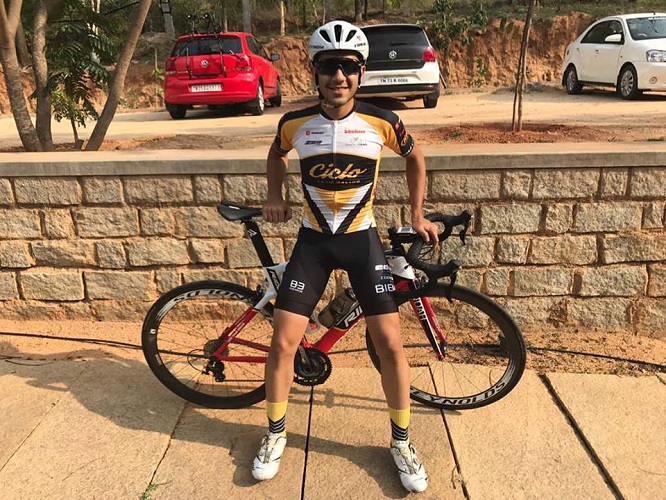
Aman Punjani graduated from the Academy in 2016 and took a gap year to pursue his career as a competitive cyclist. Today, he is the U-23 Telangana state champion.
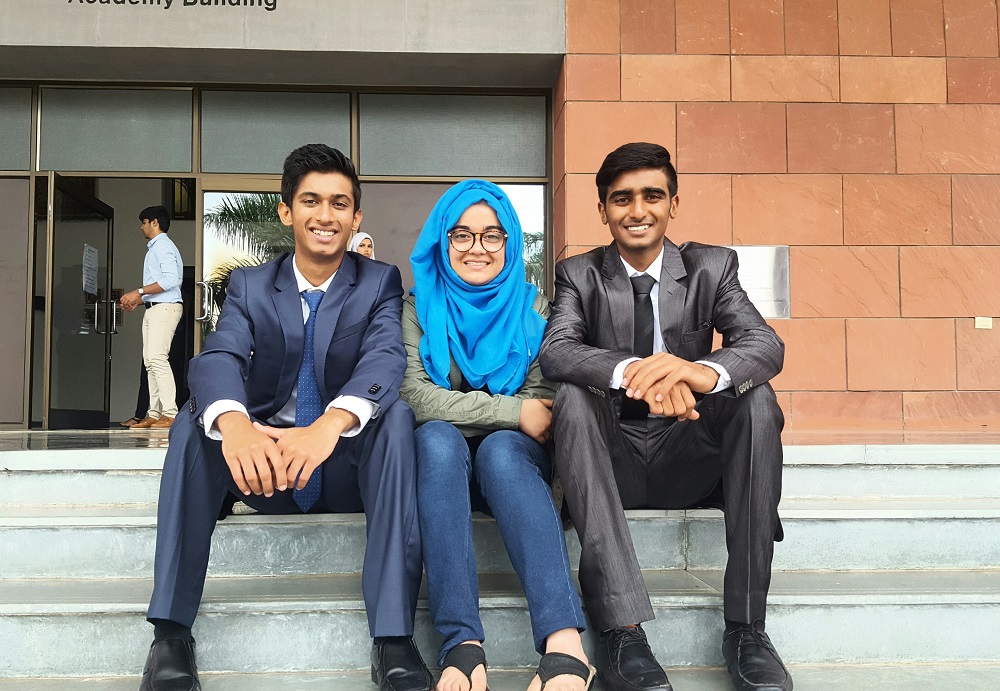
“Being part of an open-minded community that encouraged challenging what we were taught, the willingness to accept one another and inspire each other to grow constantly, was very refreshing. I credit these experiences for much of who I am today.” – Dania Quadri, Class of 2014
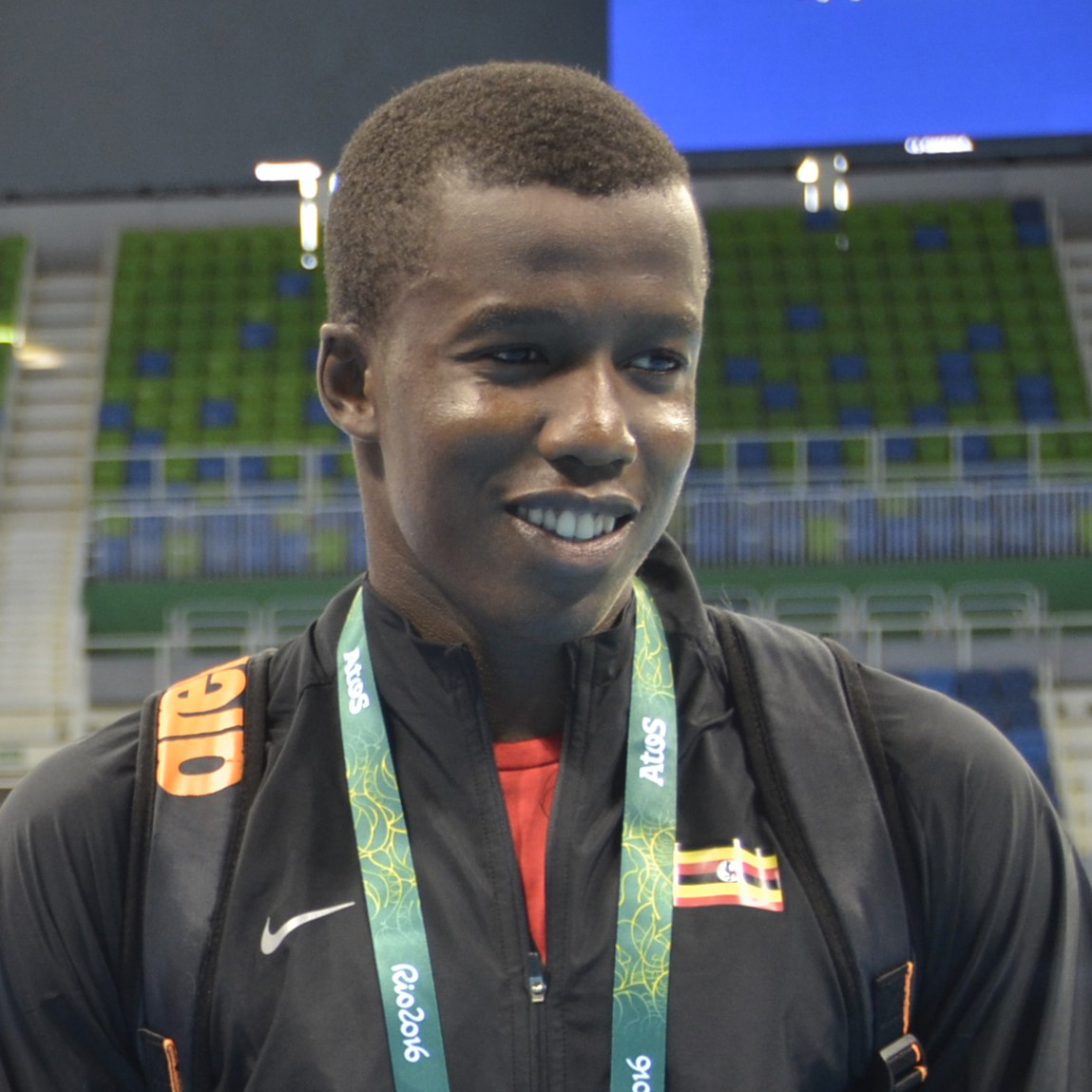
Aga Khan Academy graduate Joshua Tibatemwa swam for Uganda in the 2016 Rio Olympic Games. He credits the Academy with growing him not just academically but "as a person.” He plans to return to Uganda, saying, “If I want things back home to change, I have to work to be the change.”
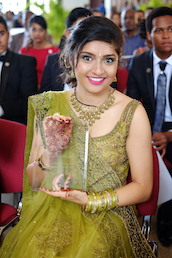
“I think that at the end of the day what everything comes down to is how we can be citizens of the world and how we can change the world that we live in to make it a better place for ourselves and children that follow us. And part of that also means giving back to your own community,” says Karishma Bhagani.
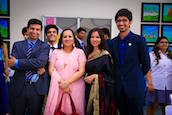
"The Academy is an environment that challenges and nurtures leaders who are fearless, courageous and stewards. I have always envisioned growing up to be one myself."
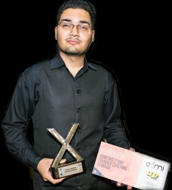
Kashyap Gohel, who graduated from the Aga Khan Academy in Mombasa, tells us about his experiences and how the Academies contributed his many accomplishments.
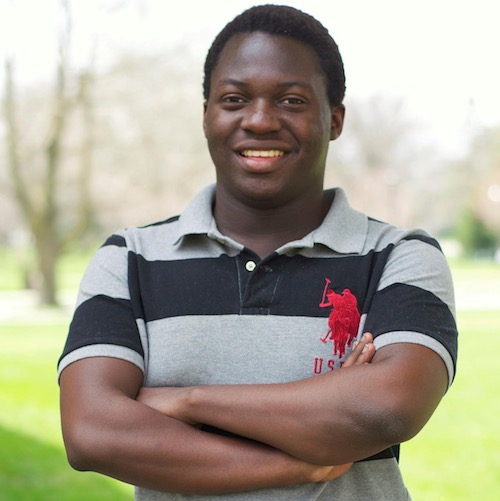
Ham Serunjogi, an alumnus of the Aga Khan Academy Mombasa, is a natural leader, bold thinker and team player. A recent graduate of Grinnell College in Iowa, Ham traveled widely before landing a job at Facebook. He has a passion for making connections that give back.
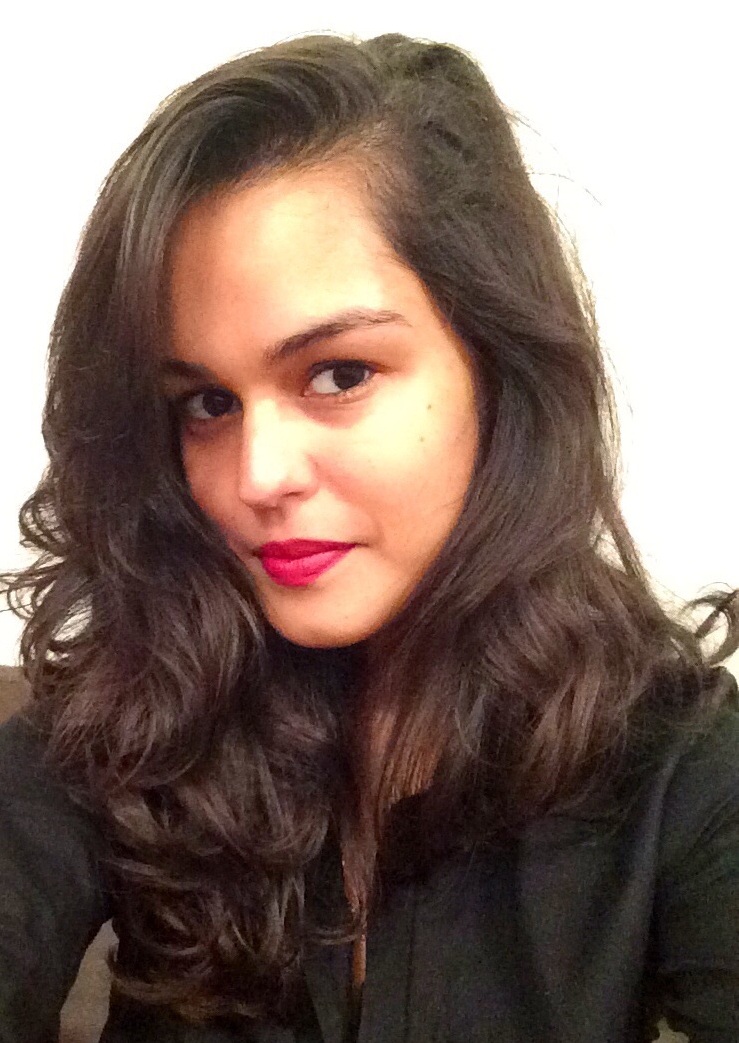
"There are a lot of values that the Academy instilled in me that I carry to this day. It has taught me the importance of being aware of the community around us as well as giving back to the community whenever possible," says Class of 2012 alumnus Fatema Sheikh.
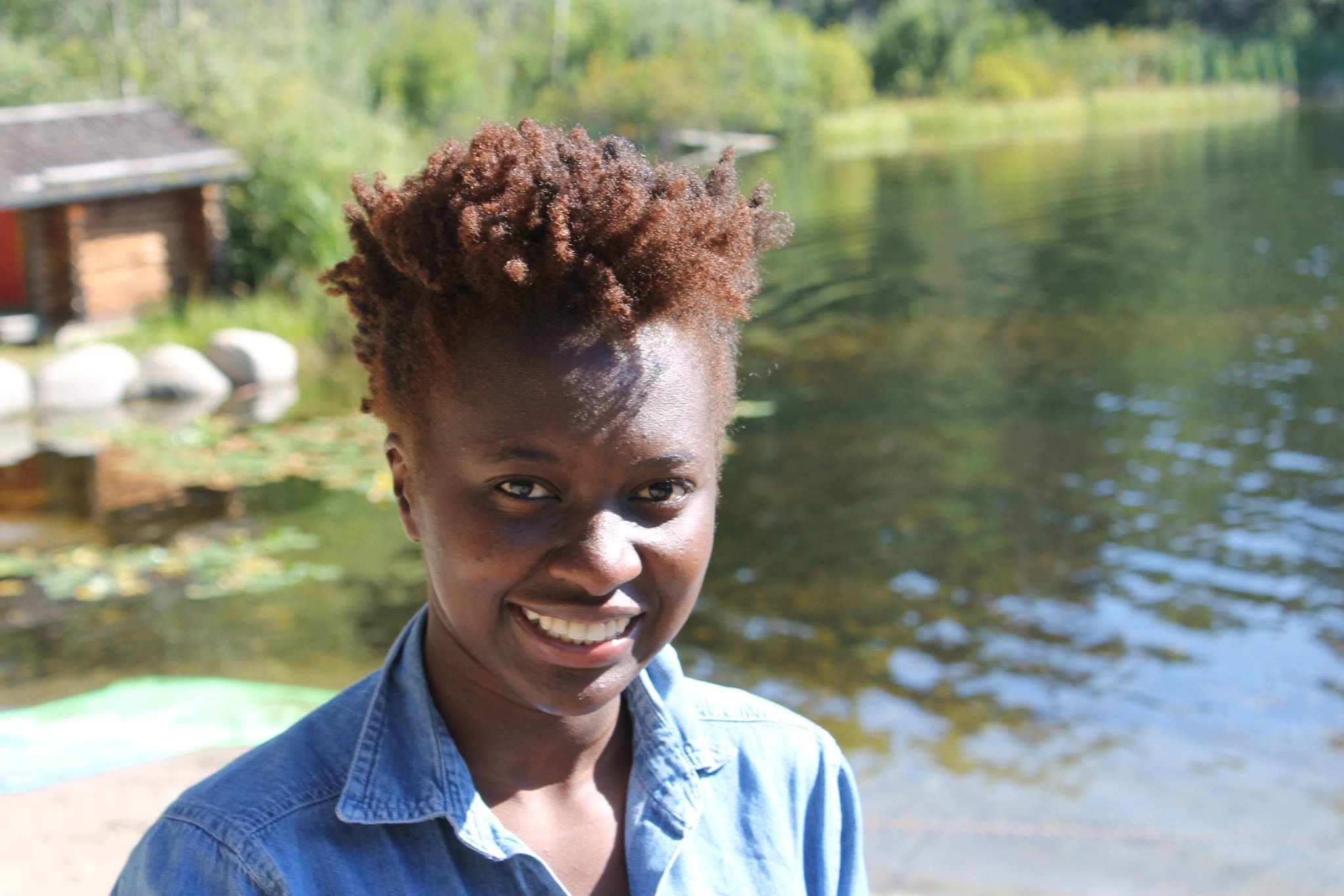
“I believe [the Aga Khan Academy Mombasa] is where I shaped my values that I still hold to this day. It is also where I saw and felt the importance of building a community, no matter how large or small.” Indeed, the importance of these values to Mirabelle Arodi is obvious in her actions after graduation from the Academy.
Spotlights on Teachers
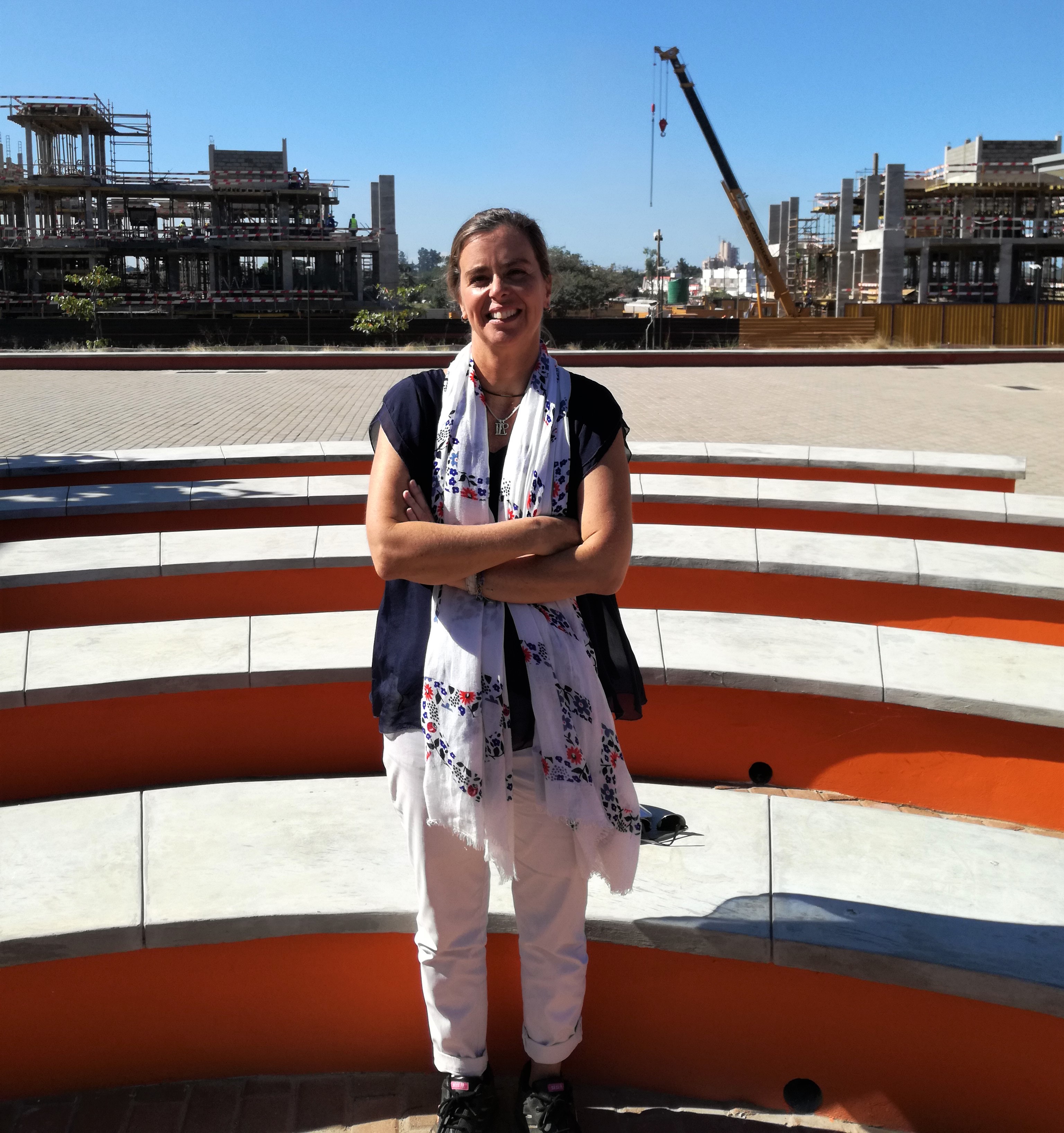
From the construction of the Aga Khan Academy Maputo’s very first buildings to some of its final facilities, Laura Ivens Brandão has been involved in the AKA Maputo’s development and expansion since the very beginning.
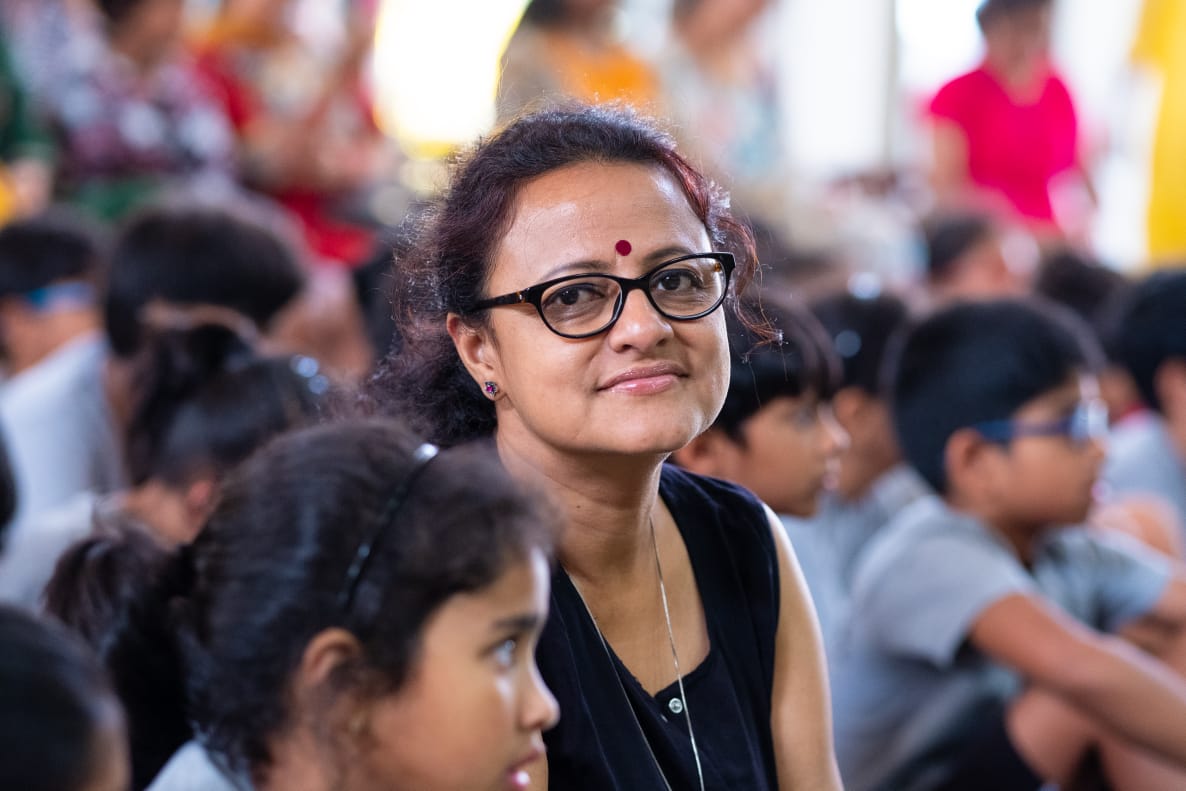
Laboni Banerjee recently celebrated her 10-year anniversary with the Aga Khan Academy Hyderabad as a Grade 3 teacher. Throughout her time, Laboni has seen the Academy grow in size through the number of programmes, students and staff, making the Academy a second home for her she is grateful to be a part of.
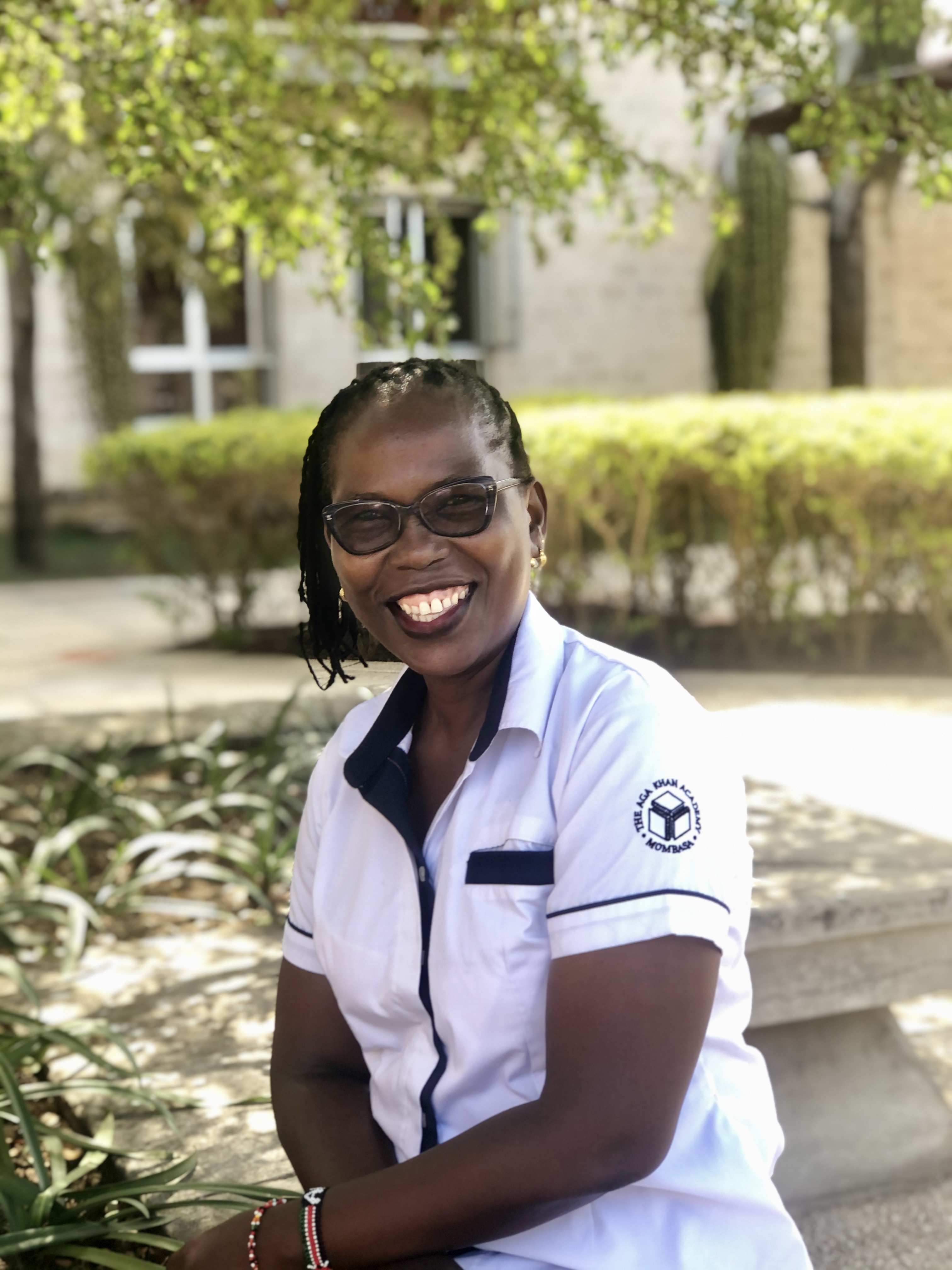
When Milka Gatungoh joined the Aga Khan Academy Mombasa in 2010 as the residential school nurse, she knew her experience was going to be exciting and fulfilling.

Since he joined the Academy in 2015, Titus has been a transformational leader. He is passionate about continuously developing effective teaching practices, thus giving students the best learning experiences. As he expresses, “There is no greater joy than nurturing young learners and witnessing them grow into more responsible, reflective and increasingly independent individuals.”
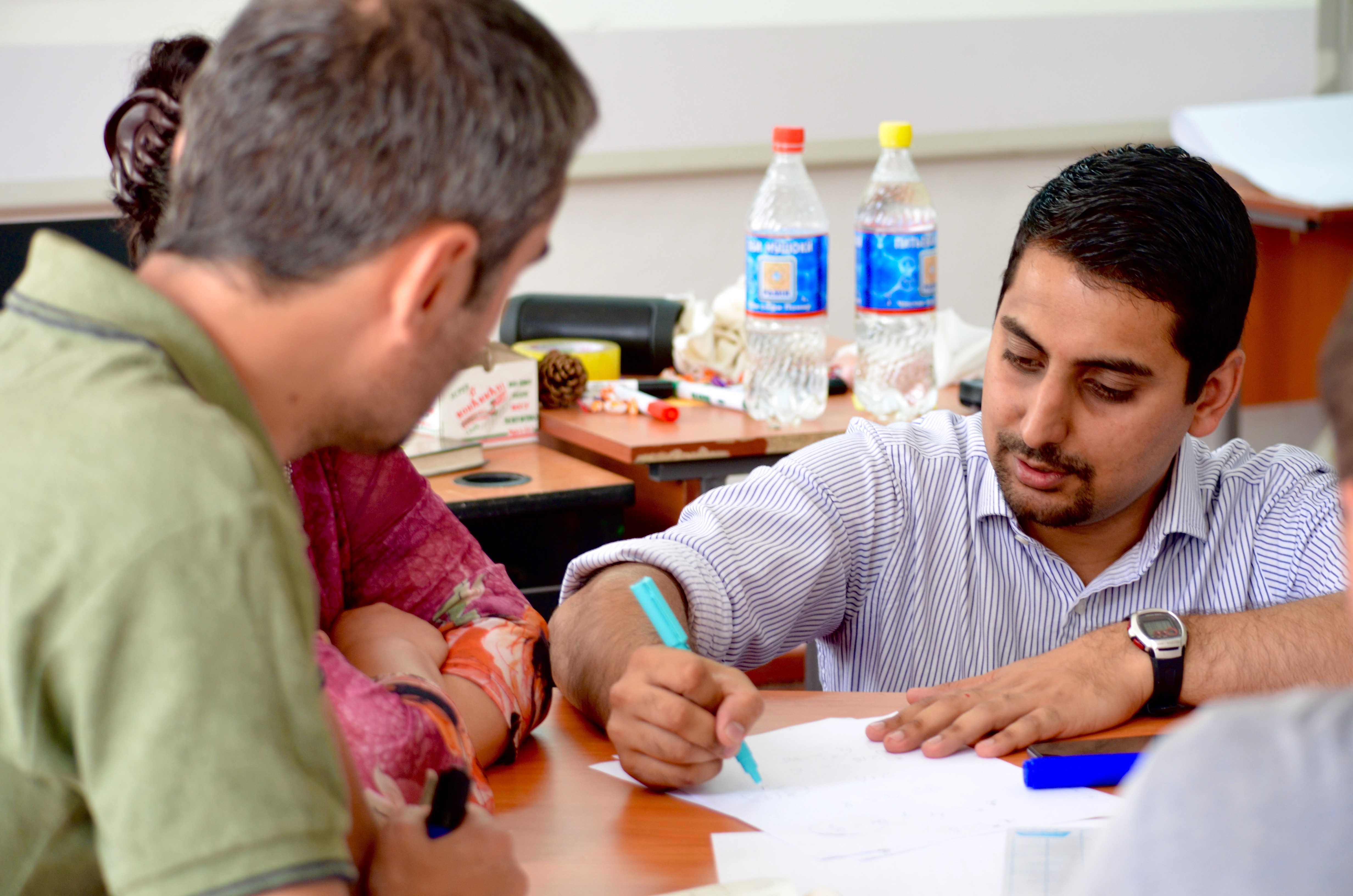
Joining the Academy virtually for the new academic year 2020 - 2021, our new Senior School Principal is excited to provide support to our teachers and collaborate with them in order to make as big an impact as possible as a group.
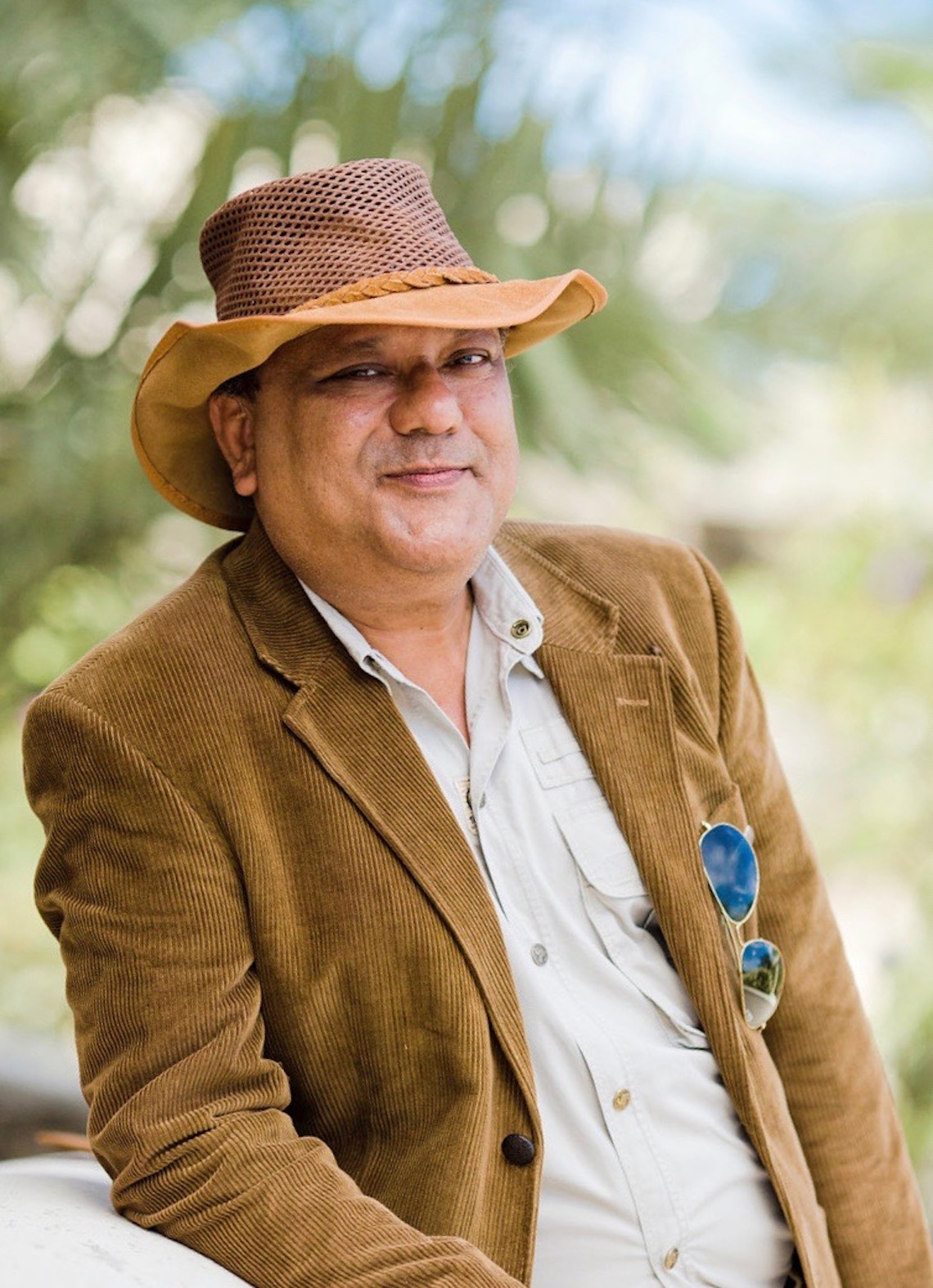
Shouquot Hussain was born and raised in India and has been the Vice Principal of the Diploma Programme (DP) at the Aga Khan Academy Mombasa for seven years.

During her time at AKA Mombasa, Samantha Caras has transformed the University Counselling department by providing numerous resources to students and helping them apply to different universities around the world.
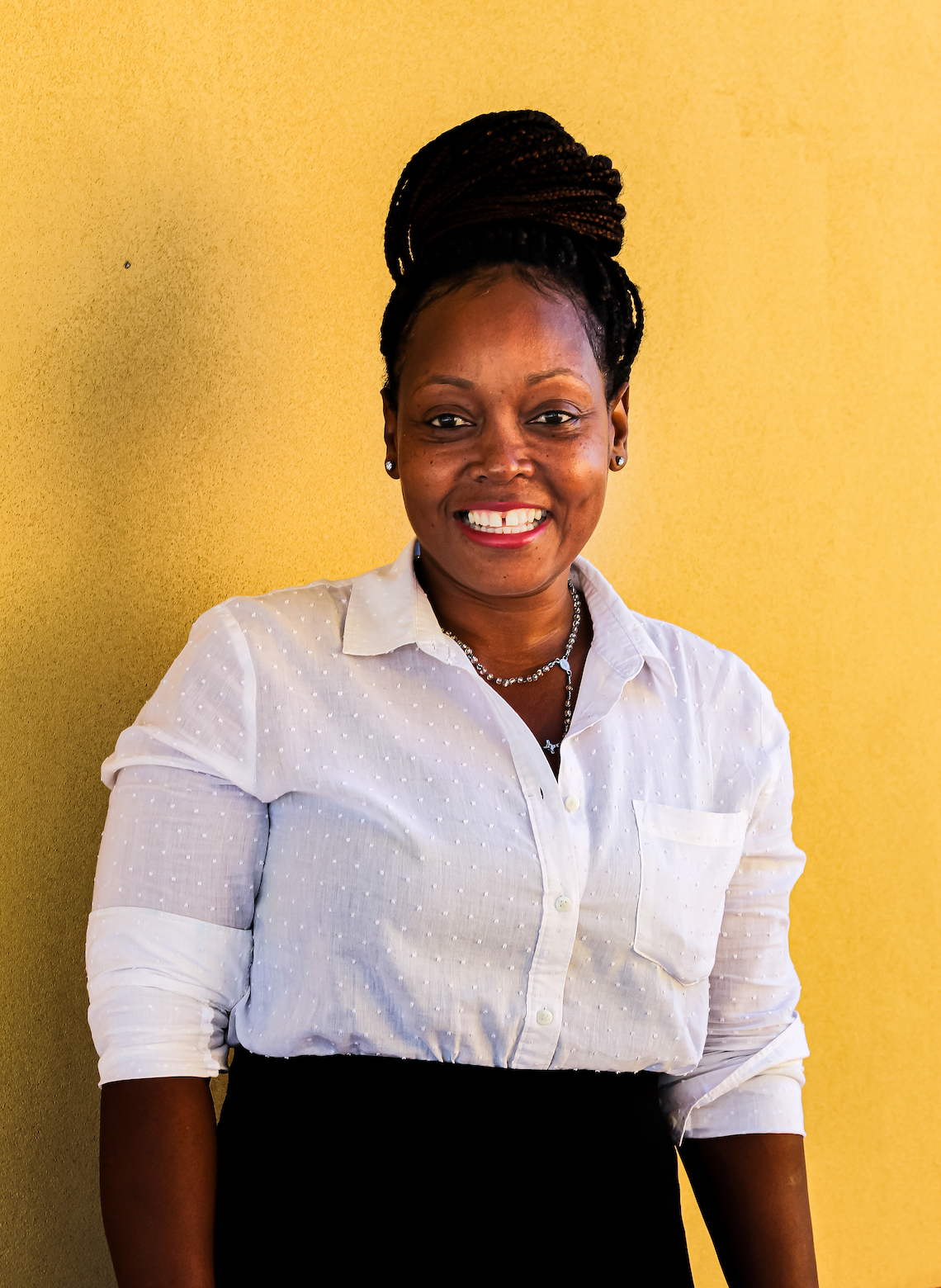
Participating in theatre and drama activities helped Rosa Jorge from a very young age. It gave her the courage to break out of her shell and now she wants to empower her students at the Aga Khan Academy Maputo with the same tools to become well rounded individuals.
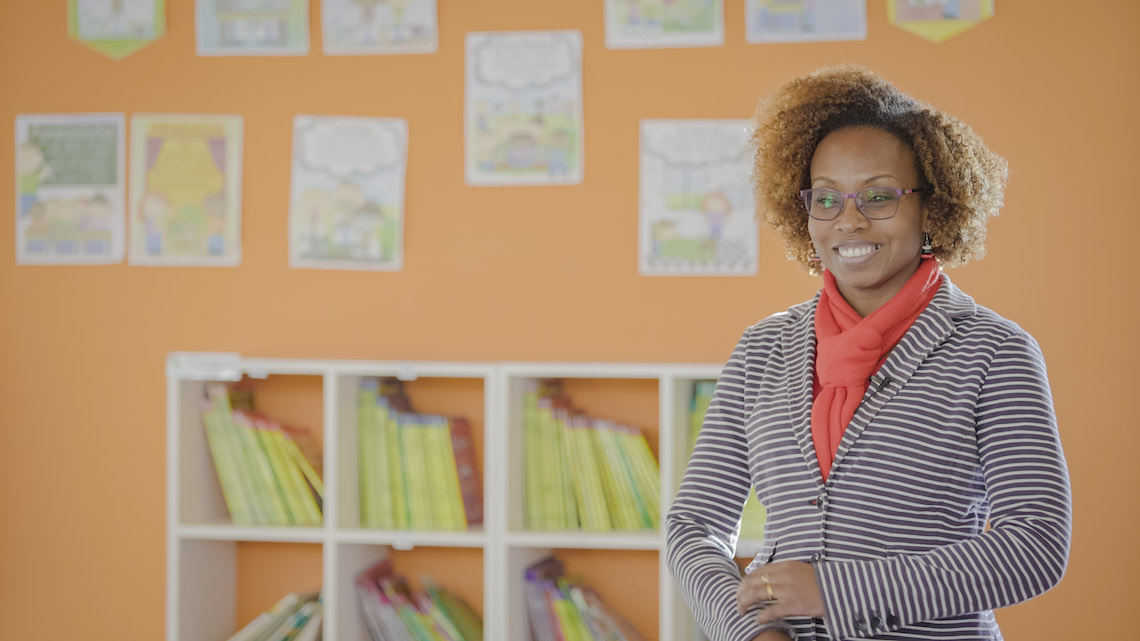
Throughout the course of her teaching journey, Adilia Cabral has valued the importance of inclusivity in creating an engaging and fruitful environment in the classroom. She shares details of her evolution during her time at Aga Khan Academy Maputo.
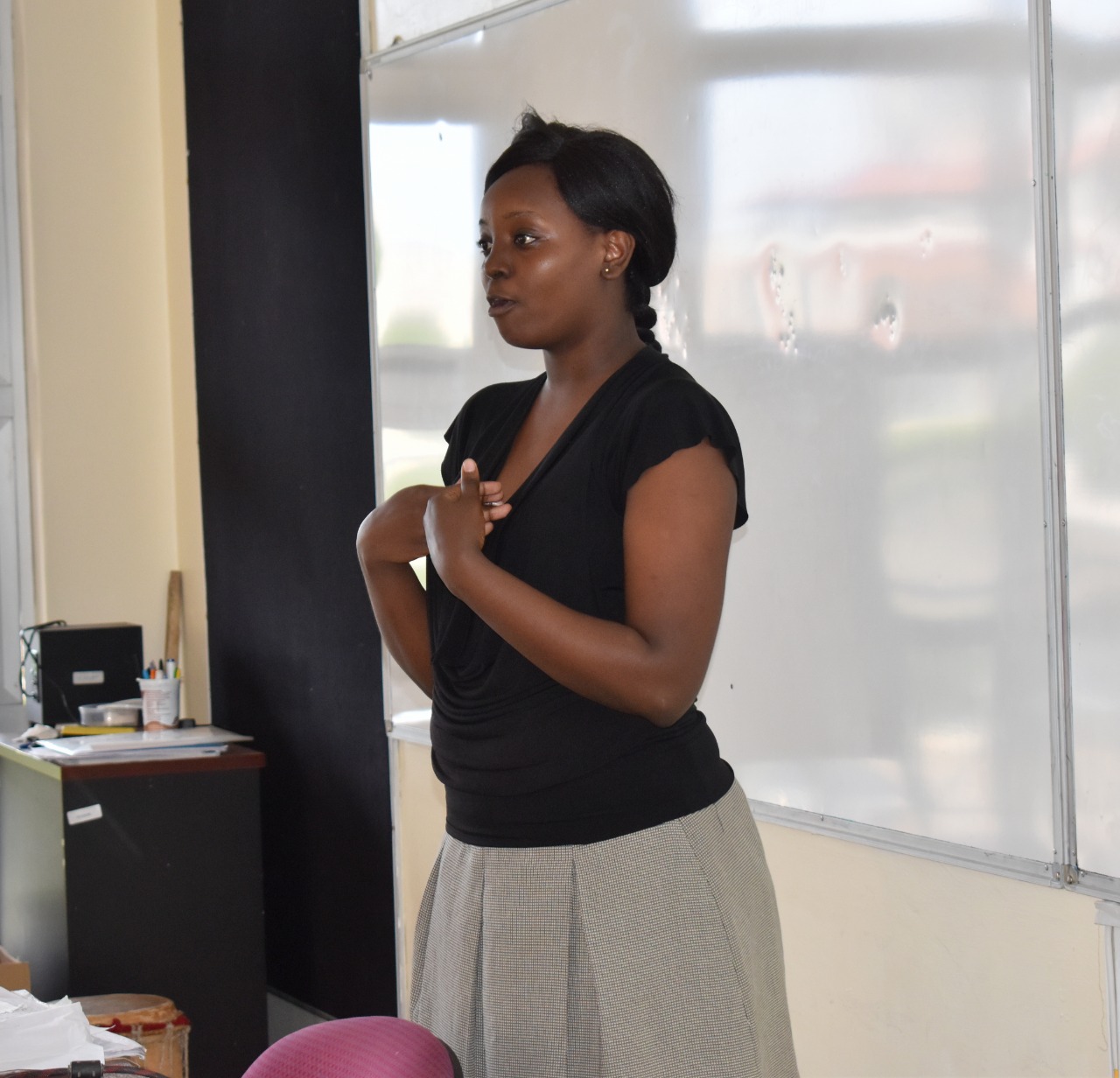
Fiona Makena Kinyua graduated from the Teacher Preparation Programme at the Aga Khan Academy Mombasa in June 2019 and is taking classrooms by storm, one student at a time.
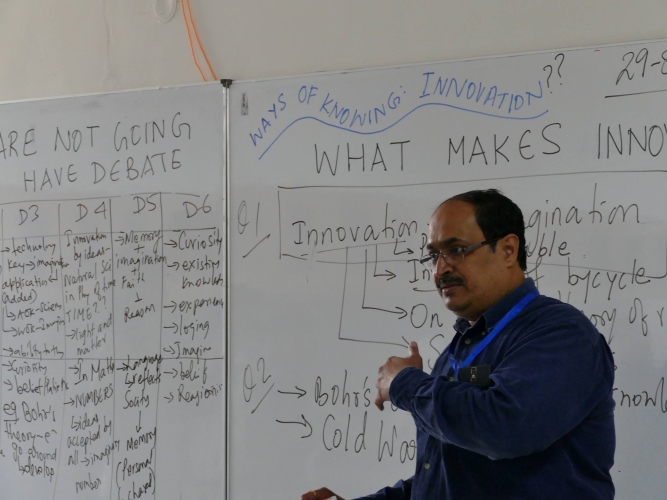
Sincere, kind and down-to-earth. These are some of the words many at the Academy have repeatedly used to describe the Diploma Coordinator of the Aga Khan Academy Hyderabad.
For the Middle Years Programme (MYP) Coordinator, Rebecca Nichols, the sky is the limit when envisaging the future of the Aga Khan Academy in Maputo, Mozambique. More importantly, in her eyes, how the Academy keeps growing, shaping and expanding its role in the country and beyond must lie in the hands of students.
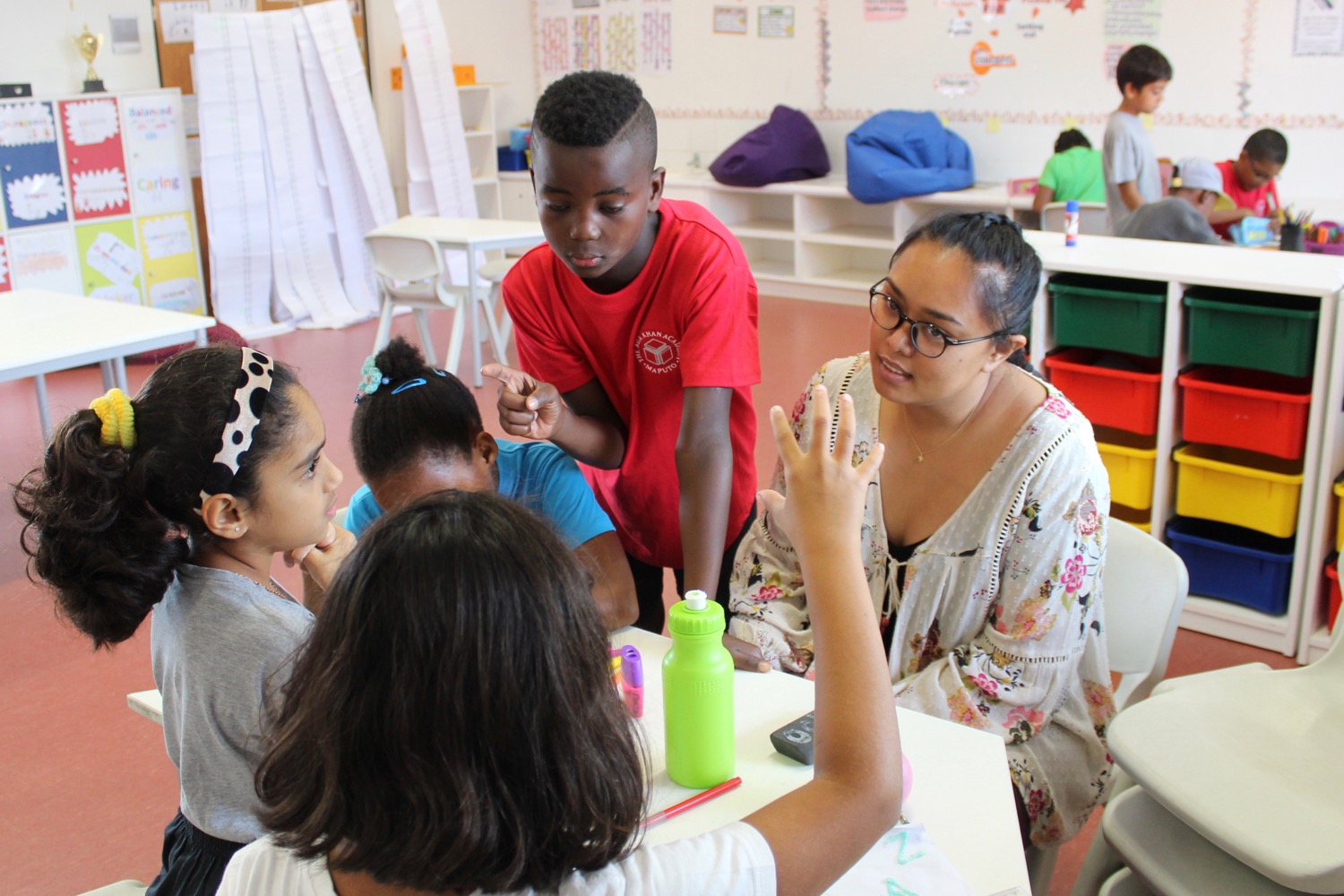
For Idah Khan O'Neill, PYP Teacher Coach at the Aga Khan Academy Maputo, having the opportunity to join the Academies network and help realise His Highness the Aga Khan's vision for education in Mozambique is a privilege, as she shares: “It is my mission, in my capacity as a Teacher Coach, to be able to help realise this goal through play and creativity with regards to the way we teach and learn.”

By using mentorship and seeing the potential in all of her students’, Harriet Chadwick, a Humanities teacher, helped her students understand and appreciate Humanities, while also encouraging them to become leaders.
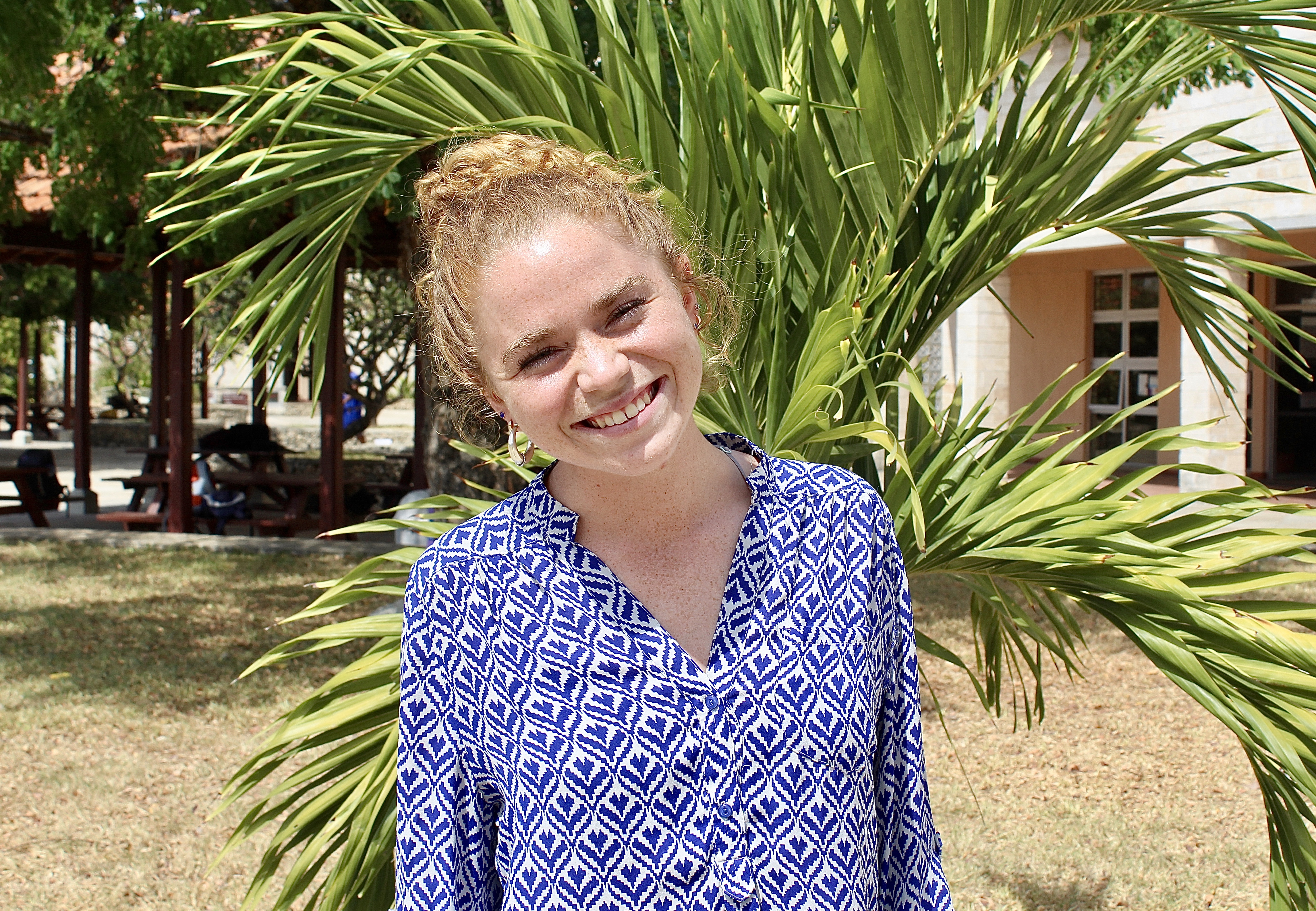
With a community-centered and open-minded mindset, Clare McLaughlin, an Academy fellow, promoted new ideas and programmes, which enabled the Academy to grow in many ways.
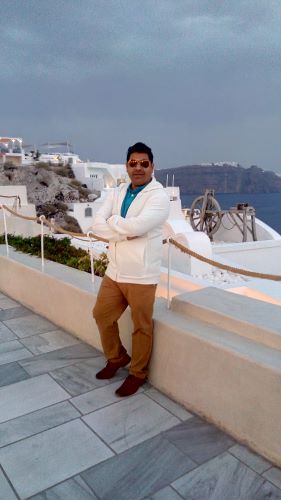
Ajey, who holds several specialist degrees, ultimately found his calling teaching French at the Aga Khan Academy Hyderabad. “The unconditional love and acceptance I receive from my students is the best testimony to my professional accomplishments,” he says.
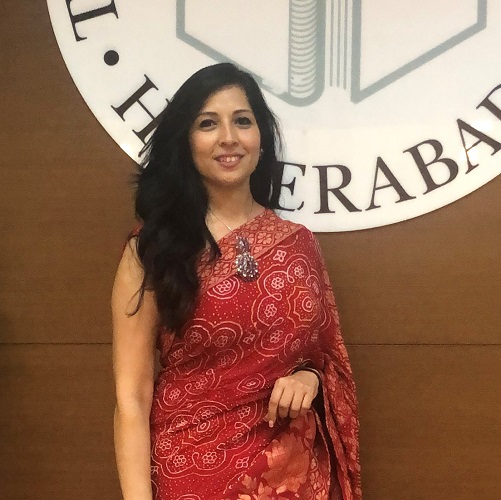
“When we started out, we knew we had to set the standard for what the future would hold. The vision and the philosophy of His Highness the Aga Khan has been taught to us since when we were children; to see a culmination of this in the form of a school that aspires to raise leaders of tomorrow was immensely gratifying."
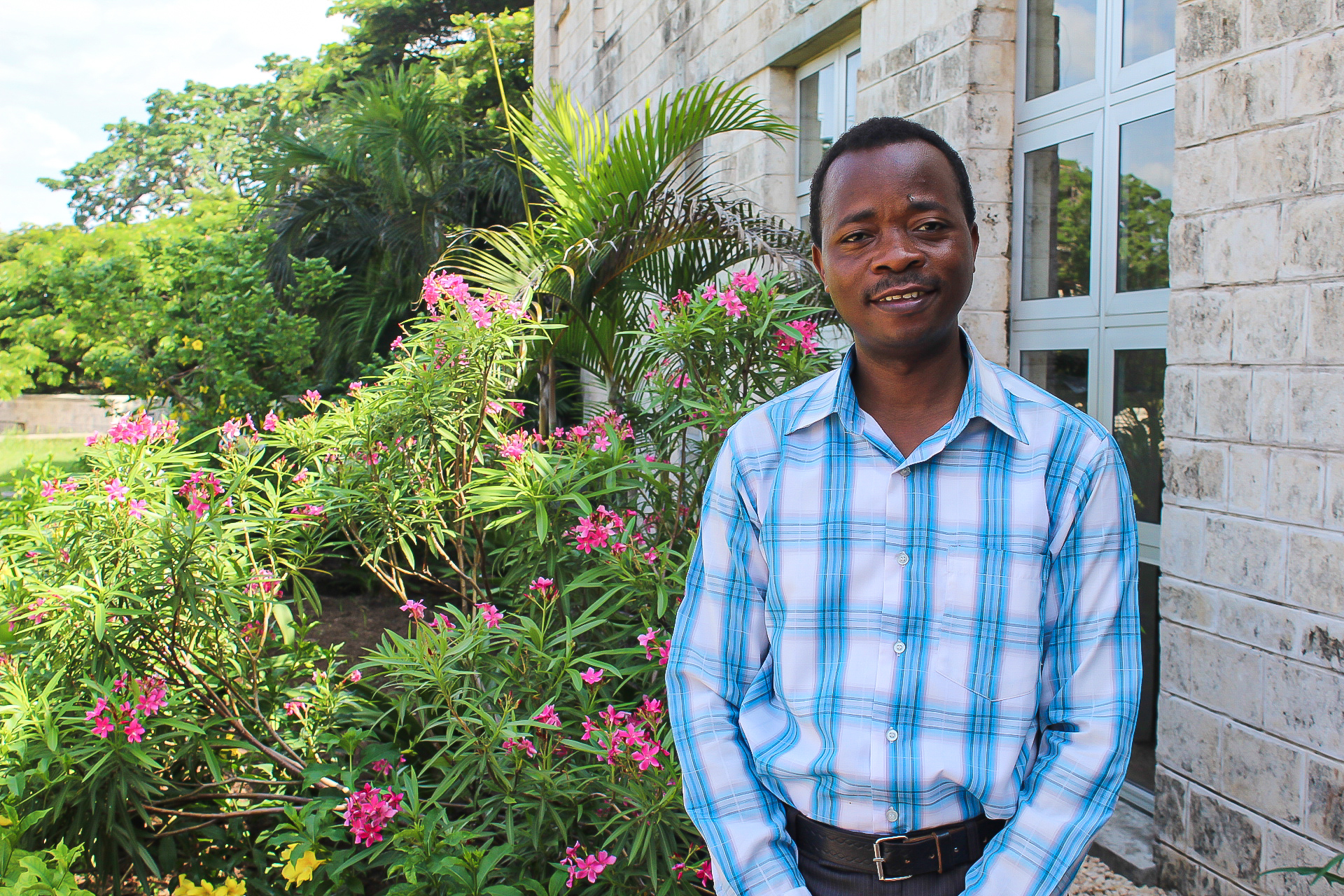
With the support of his colleagues, Stephen Nyundo, a Mathematics teacher and head of the department, has helped students implement strategies to help themselves and others in Mathematics.
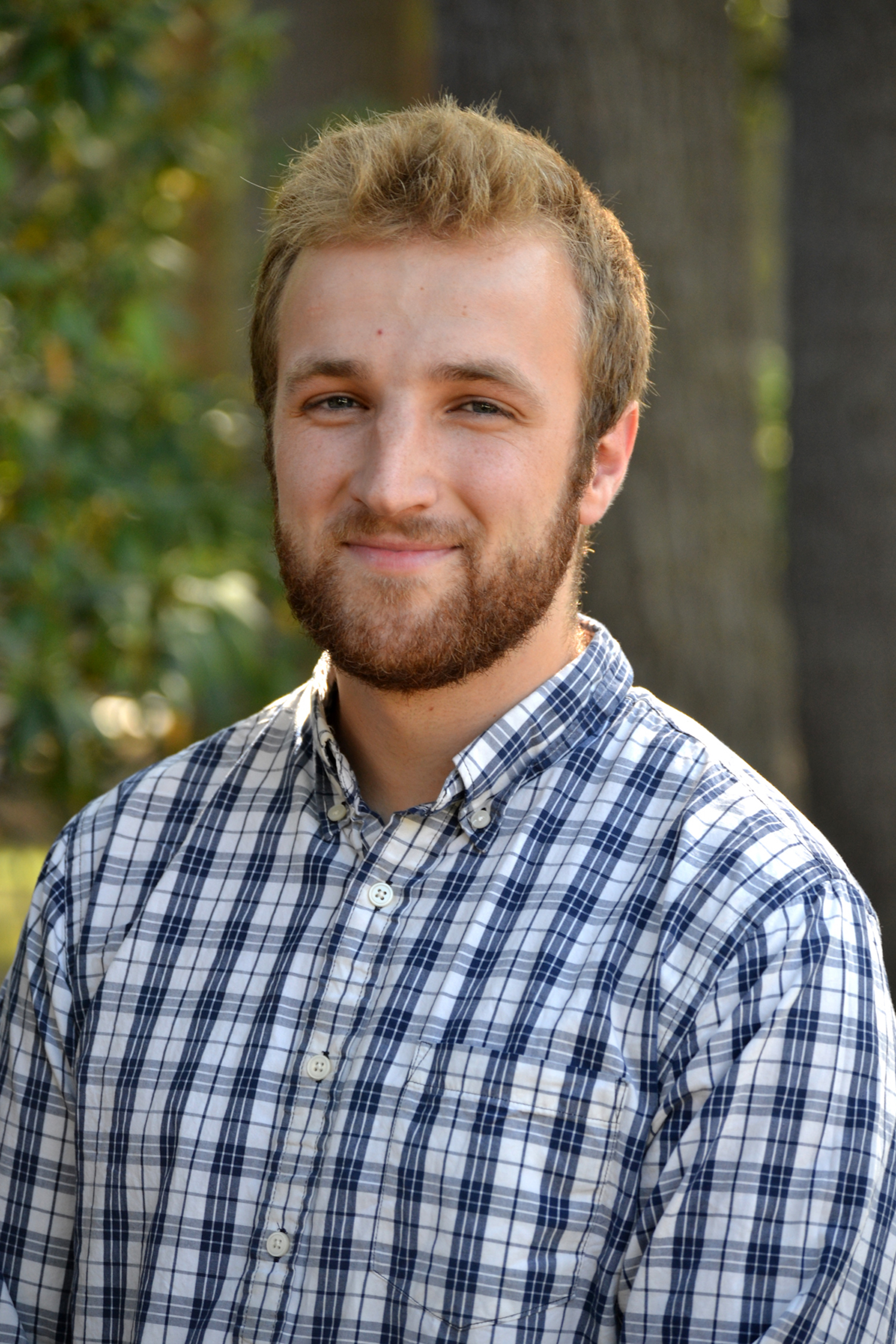
Throughout his time at AKA Mombasa, Ryan Herman, an Academy fellow, has worked on various projects and programmes at the Academy, all aimed at helping students realise their academic potential and more.
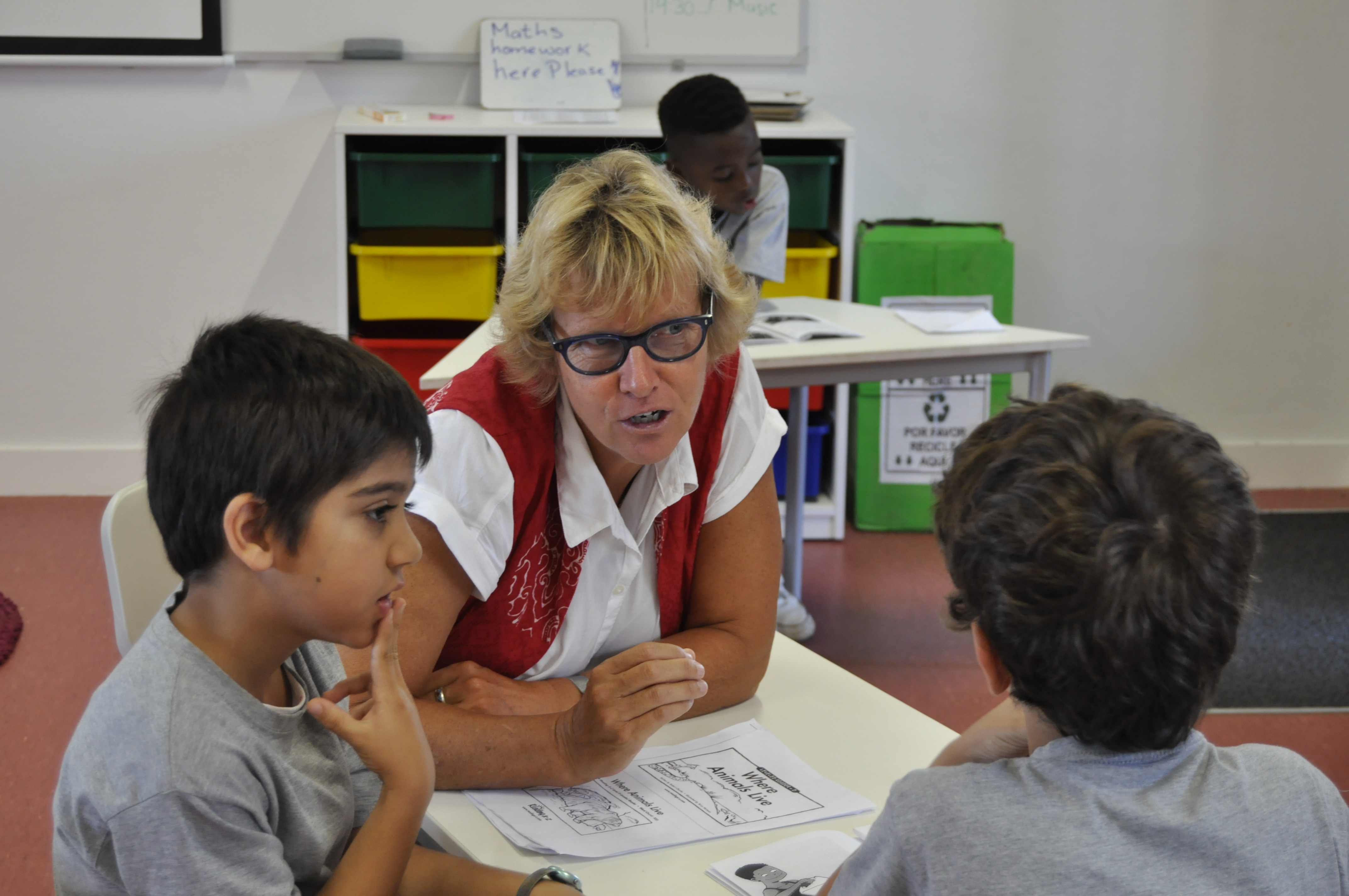
Ask Maike Silver, Junior School Principal at the Aga Khan Academy in Maputo, Mozambique, what attracted her to teach at the Academy. “The vision and mission of the Academy,” she states simply. “The vision to inspire young people into becoming future leaders of their countries. To actually have the ethical persuasion to make a difference in the lives of their countrymen.”
Anjum Budhwani always wanted to teach at the Aga Khan Academy Hyderabad, and since she got the job seven years ago, every day of work has been special. “Compassion builds a strong relationship between teacher and student,” she says.
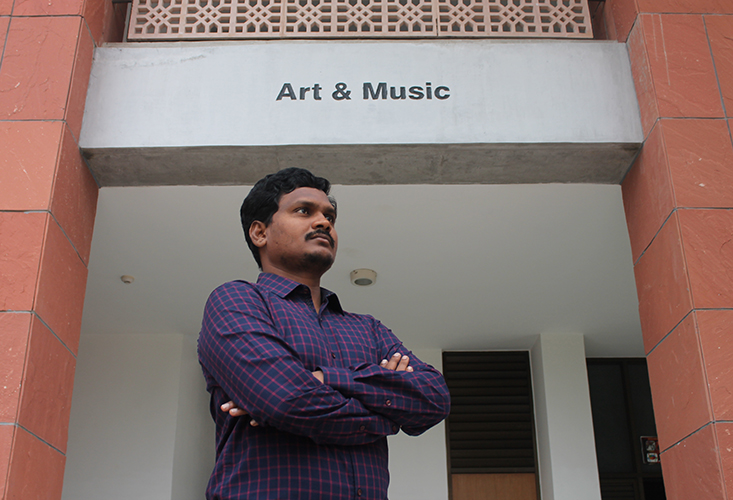
“I had the freedom to run and develop the department,” Chandra says, of being the first drama teacher at the school. “I have used this freedom to develop the students’ abilities in acting, communication, confidence, creativity and thinking skills.”
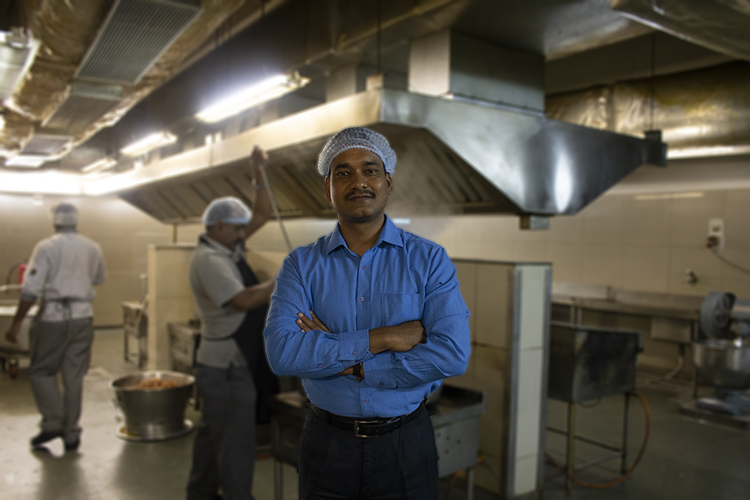
AKA Hyderabad catering manager talks about his experiences as an artist, an army man, and a chef. “A person can be responsible and efficient towards his job only when has known himself,” he says.
Students Cinzia Torriani (year 10) and Alisha Doshi (DP1) interviewed Alison Hampshire, the new Head of Academy at the Aga Khan Academy Mombasa. They discussed important themes in education, passions, dreams and life lessons.
They should always feel that I’m there for them, no matter the situation, or condition or time of day. You have to tailor yourself to the needs of the students... I change myself, as per their needs.
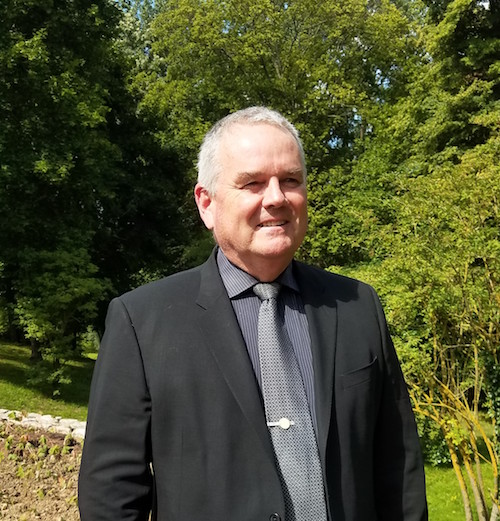
Jonathon Marsh has system-wide responsibility for teacher development at the Aga Khan Academies network and has worked for the Academies for the past 10 years. In this interview, he shares the highlights of his position at the Academies, and reflects on how the Academies are unique from other educational institutions: "I see the profession of teaching as critically important to the health and ongoing development of any society. As such, I can think of no better way to contribute to the betterment of humanity."
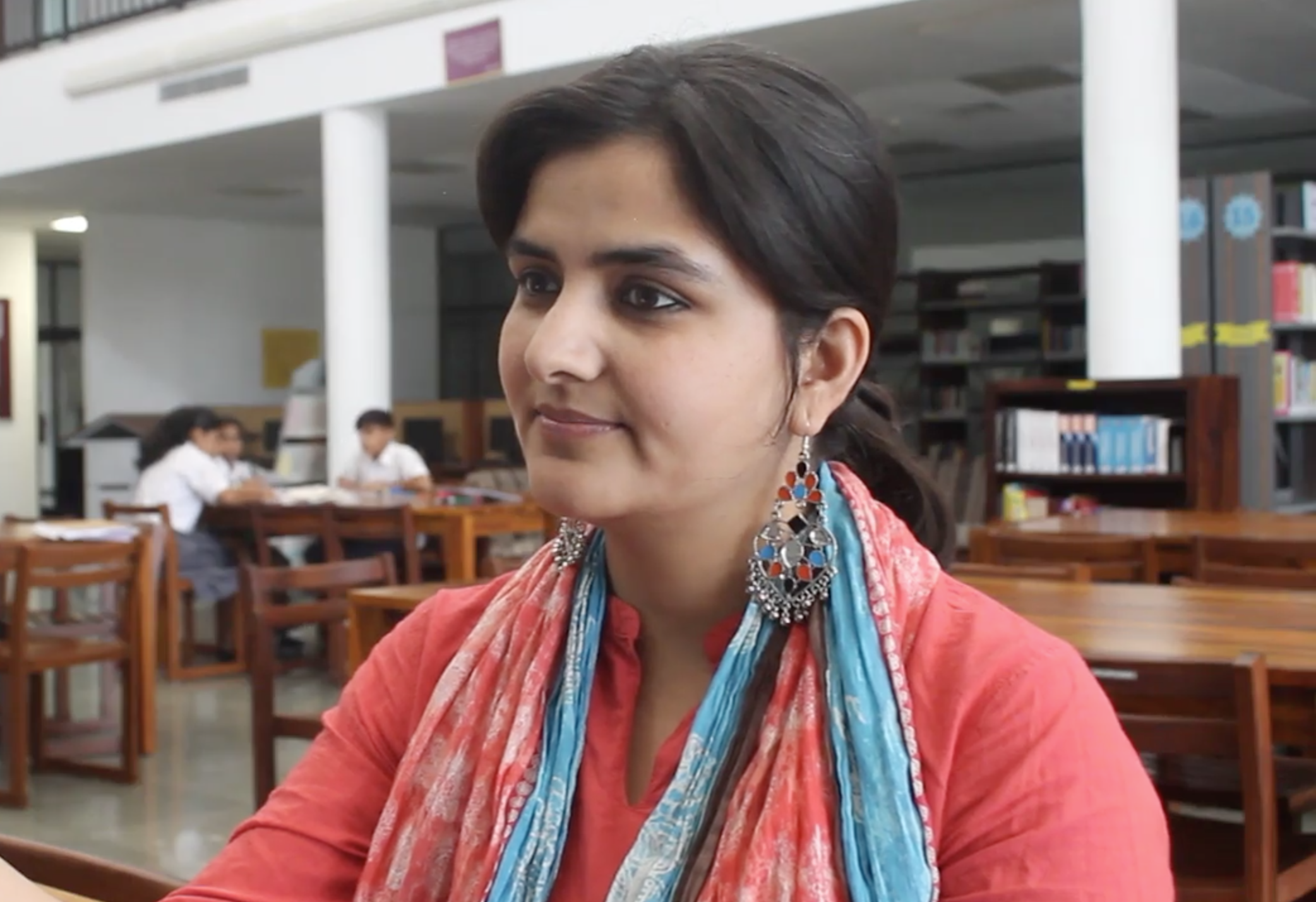
The Teacher Preparation Programme (TPP) is one of the Aga Khan Academies’ landmark teacher development initiatives. In this interview with Kamini Menon at the Aga Khan Academy Hyderabad, TPP participant Maryam talks about the TPP’s unique aspects and her experience with the programme.
Pinto, a teacher at AKA Maputo, shares: “I chose a career in teaching because I like to share what I know with others, especially young people, to help them to overcome the challenges in life. Being a teacher is like taking care of something special, so I decided to take care of that special thing, walking together in order to discover the world around us.”
Inner delight and the satisfaction obtained from working for a cause are the rewards I seek from my work.
Sumeya Taquidir shares, “I am conscious that learning is a continuous process; every day we learn something new [which] makes me more curious to learn new things. That is why we have to be creative and dynamic teachers.”
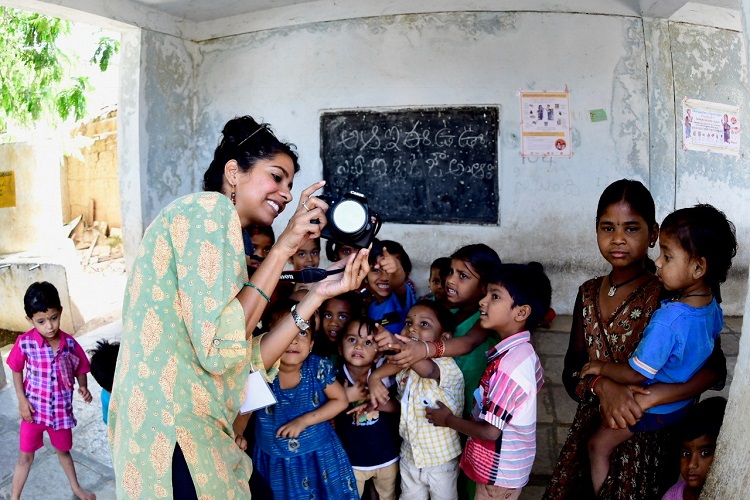
“I have always been inspired by the philosophy and implementing agencies of the Aga Khan Development Network, and it brings me great joy to have found a way to realise that career aspiration."
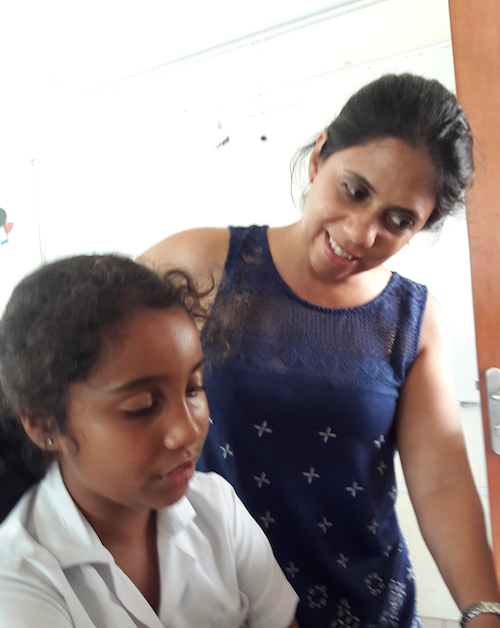
Nuala, the Learning Student Support Coordinator in Mombasa, endeavours to improve social outcomes through strategic planning and capacity building at the local government and community level. She explains her role, her journey and the culture of pluralism at the Academies.
Bernardo learned from the Aga Khan Academies that knowledge cannot just be seen as something that starts and ends in a classroom, but that knowledge should also be applicable outside the classroom to solve real problems in real life.
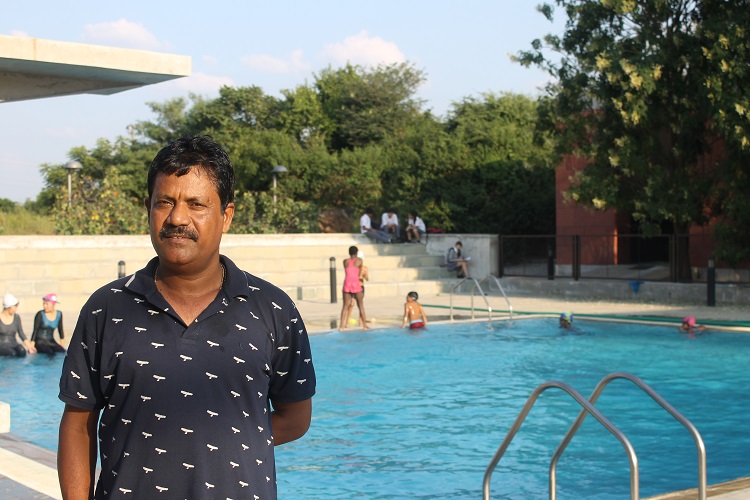
“It’s been a great pleasure to share my previous teaching experience here at the Academy,” commented Surendra. “The Academy is filled with enthusiasm when it comes to sports, particularly swimming.”
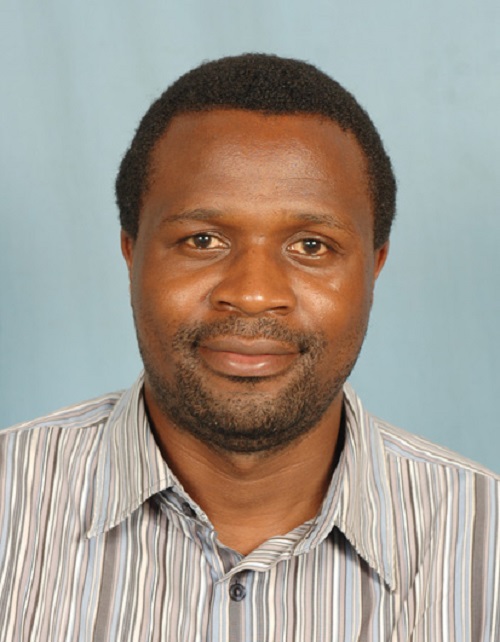
“I wake up every morning and look forward to seeing my students in class.”
Courageous and confident, Maria Atalia Matola travelled out of Maputo, Mozambique for the first time in her life to teach at the Aga Khan Academy in Mombasa, Kenya as part of the Aga Khan Academies’ Teacher Preparation Programme (TPP).
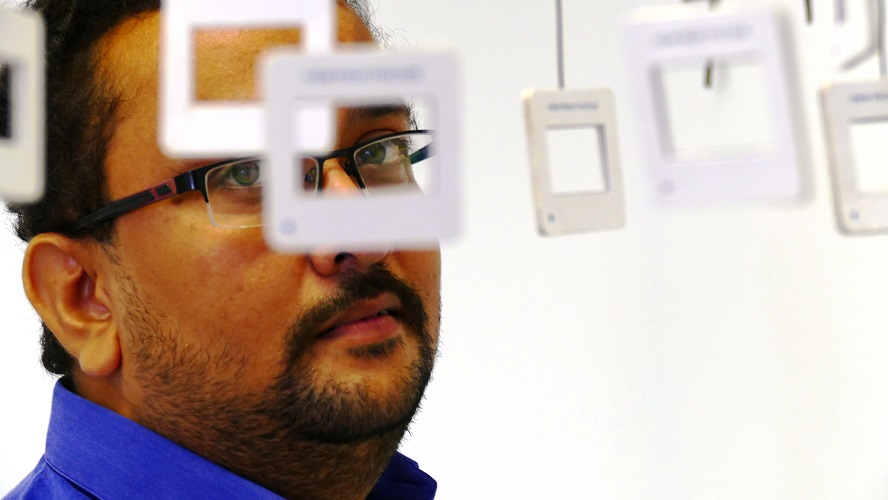
"What one must paint is the image of resemblance—if thought is to become visible in the world" - Rene Magritte.
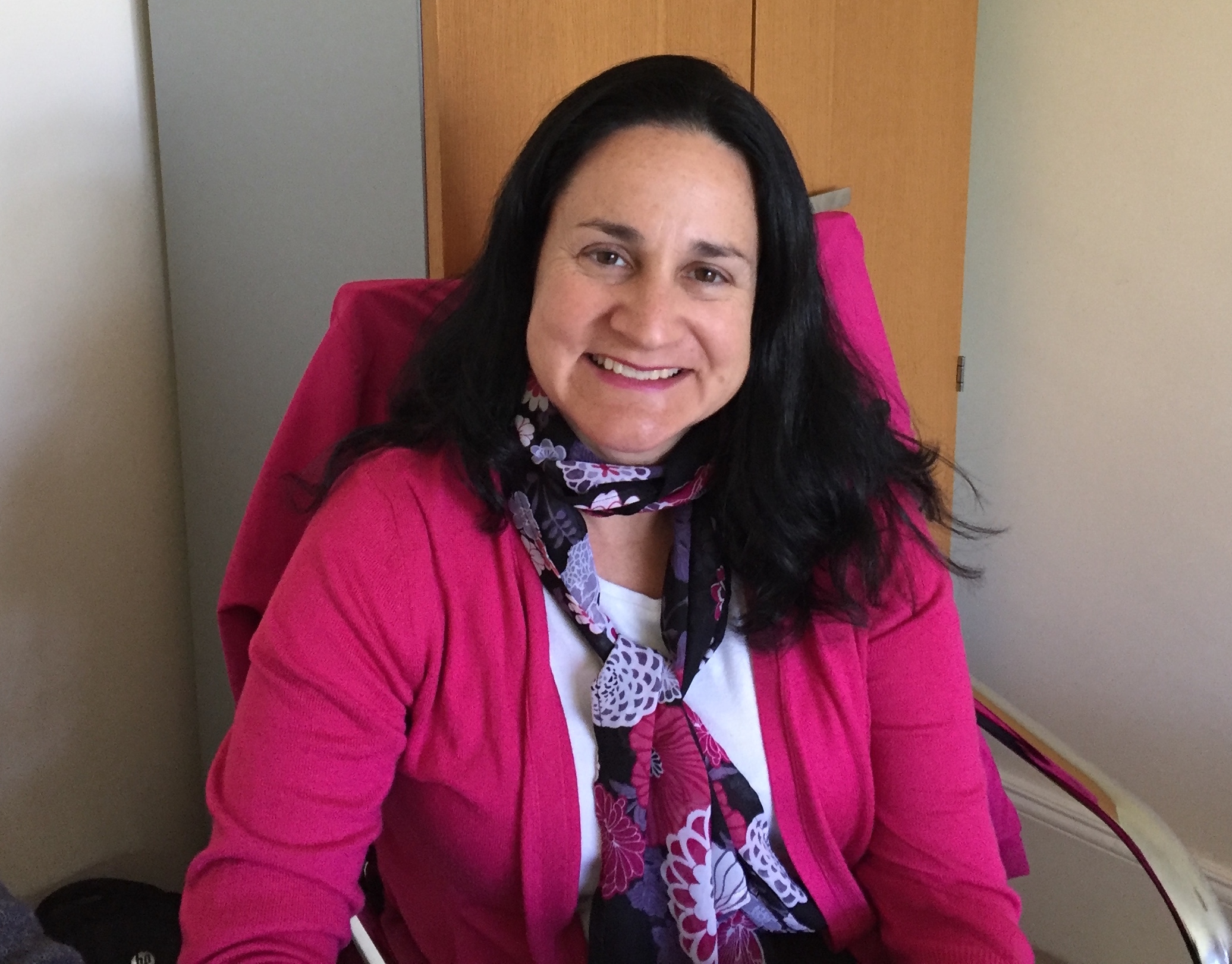
Theresa Urist has always had a strong desire to support students in their academic careers, which led her to the position of Global Director of University Counselling in 2015 at the Aga Khan Academies.
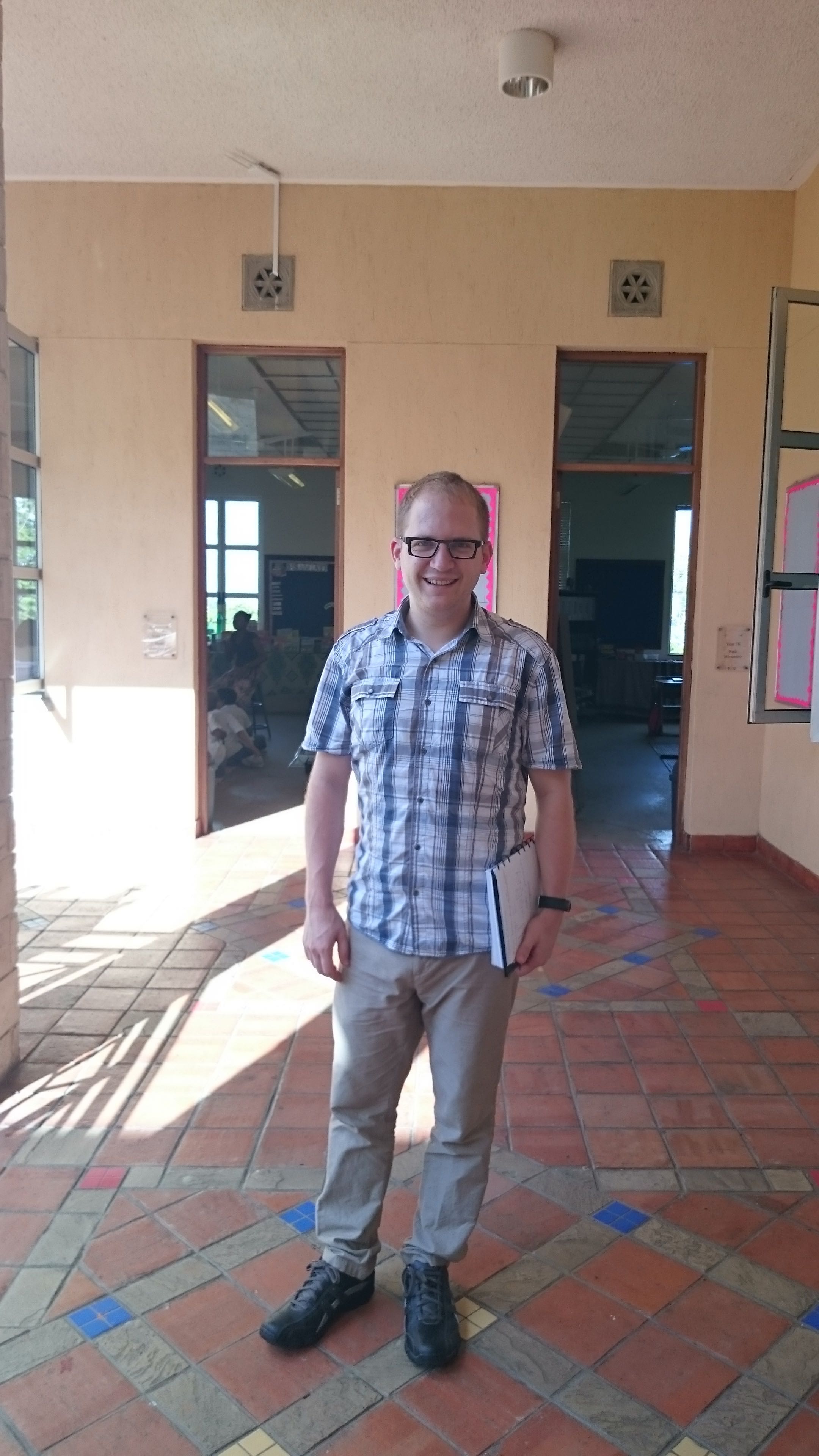
“I have had the opportunity to grow and learn as both an educator and an individual through my interactions at the Academy and through daily life in Mombasa," reflects Andrew Jones, a teacher seconded to the Aga Khan Academy Mombasa from Ontario. After his time at the Academy in Mombasa, Andrew has gained insight into three best teaching practices that he will share in Ontario.
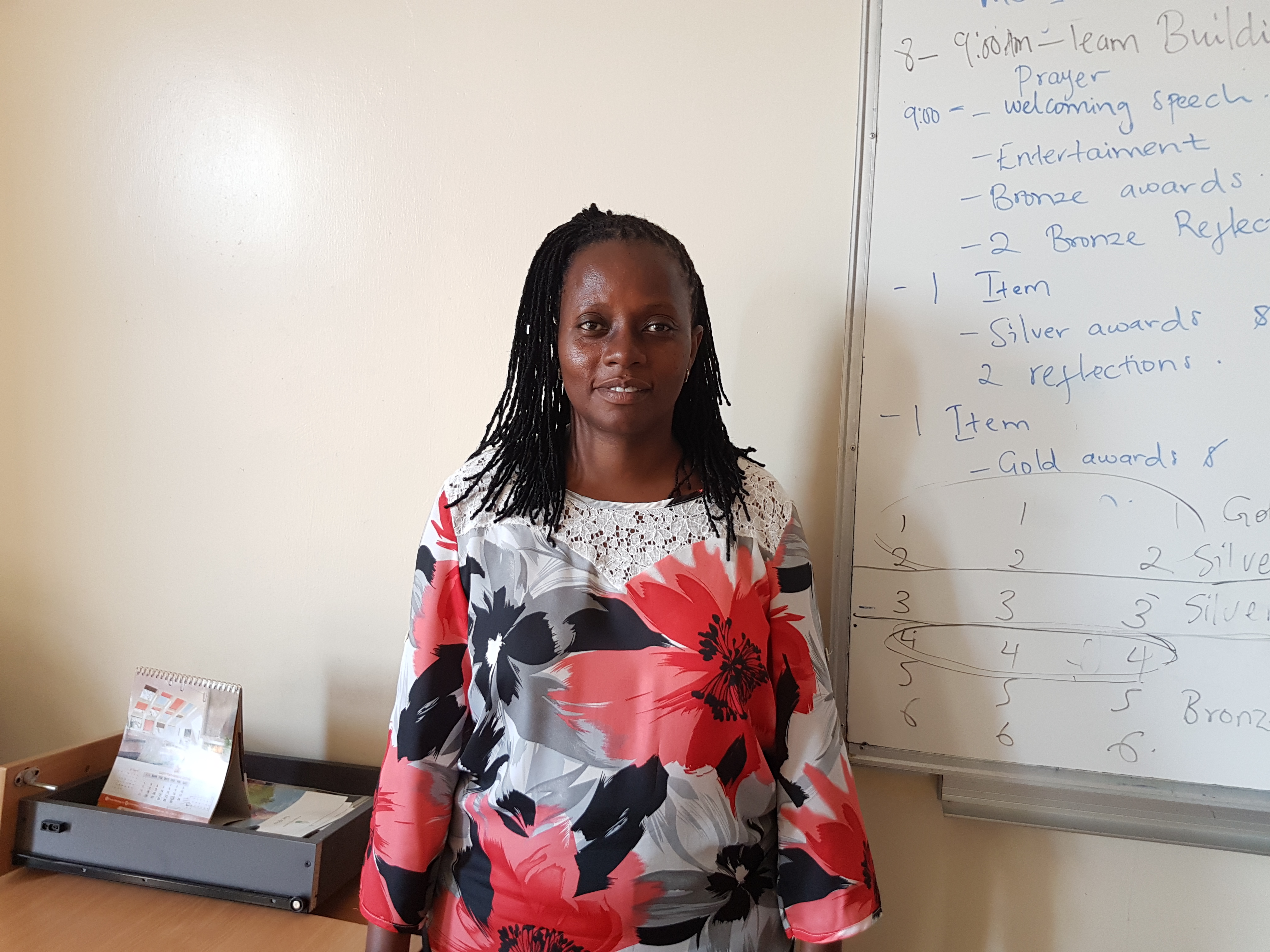
Lucy Mwandawiro has been a chemistry teacher at the Aga Khan Academy Mombasa for 11 years. However, she has grown and developed in many more areas, such as her involvement with the Educating Girls in Science project and her role as a dorm parent in the residences. Here, she shares some insights about her journey at the Academy.
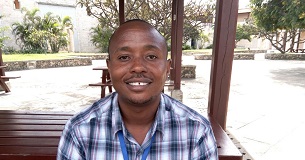
“I think one of the biggest assets the Academy has is the diverse cultural background in the student body. Having players coming from all over the world from so many walks of life adds a unique element to playing as a team.”
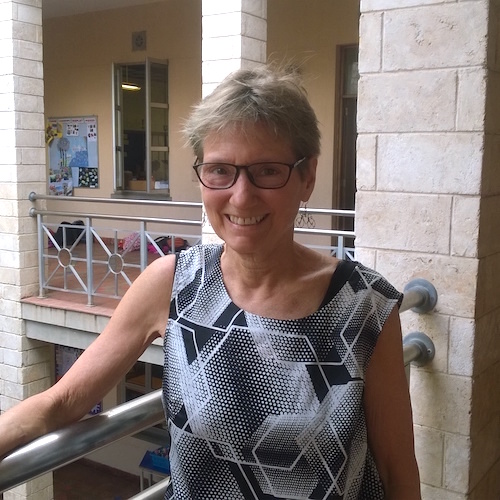
Christine Robertson is a veteran Ontario teacher who began a secondment to the Aga Khan Academy Mombasa in April 2016. She talks about her experience of coming to Kenya and her first days of getting to know the Academy.
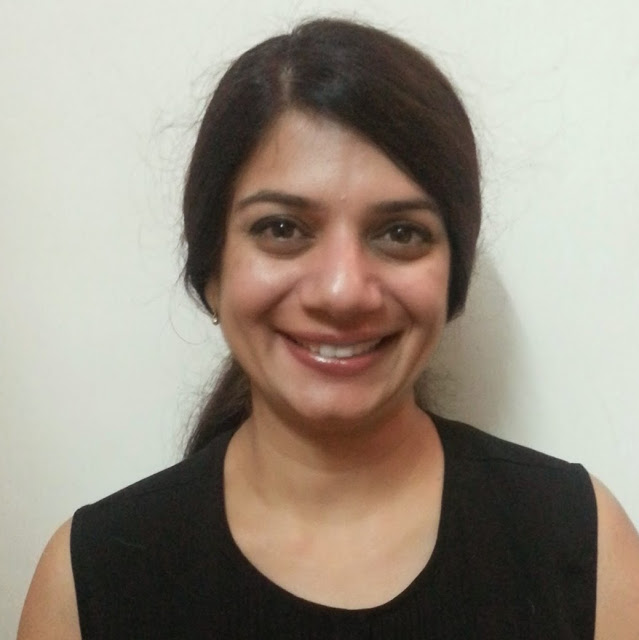
Vasanthi Thandlam, the Academy's Senior School English as an additional language specialist, has been selected as an Operation Smile sponsor for the Vietnam Medical Mission.
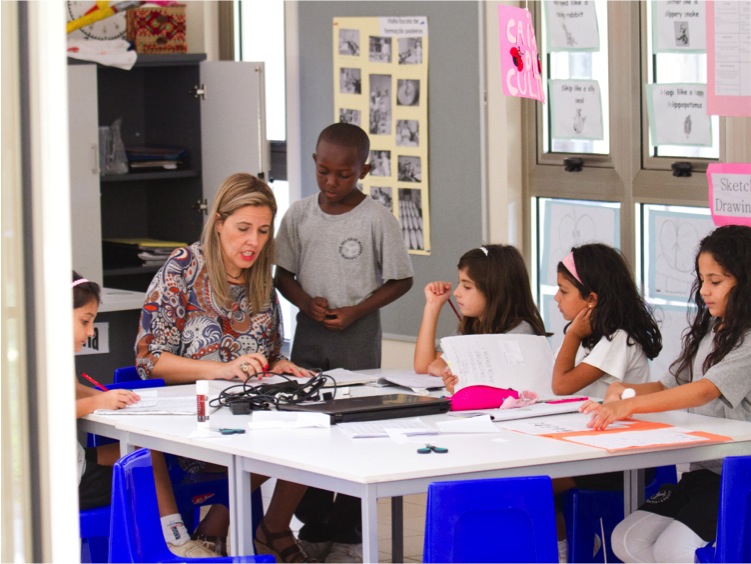
“For me, being a teacher is not a simple task – rather, it requires love and skill,” says AKA, Maputo teacher Sandra Marise de Abreu Antunes. Sandra’s classroom is an inspiring place where students not only expand their knowledge but also learn to respect each other, express their ideas freely and dream big.
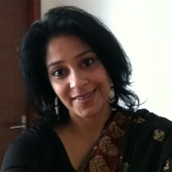
Naini Singh is in the unique position of having been a teacher at both of the current Aga Khan Academies. Her journey has given her a rare insight into the Academies experience.
Spotlights on Students
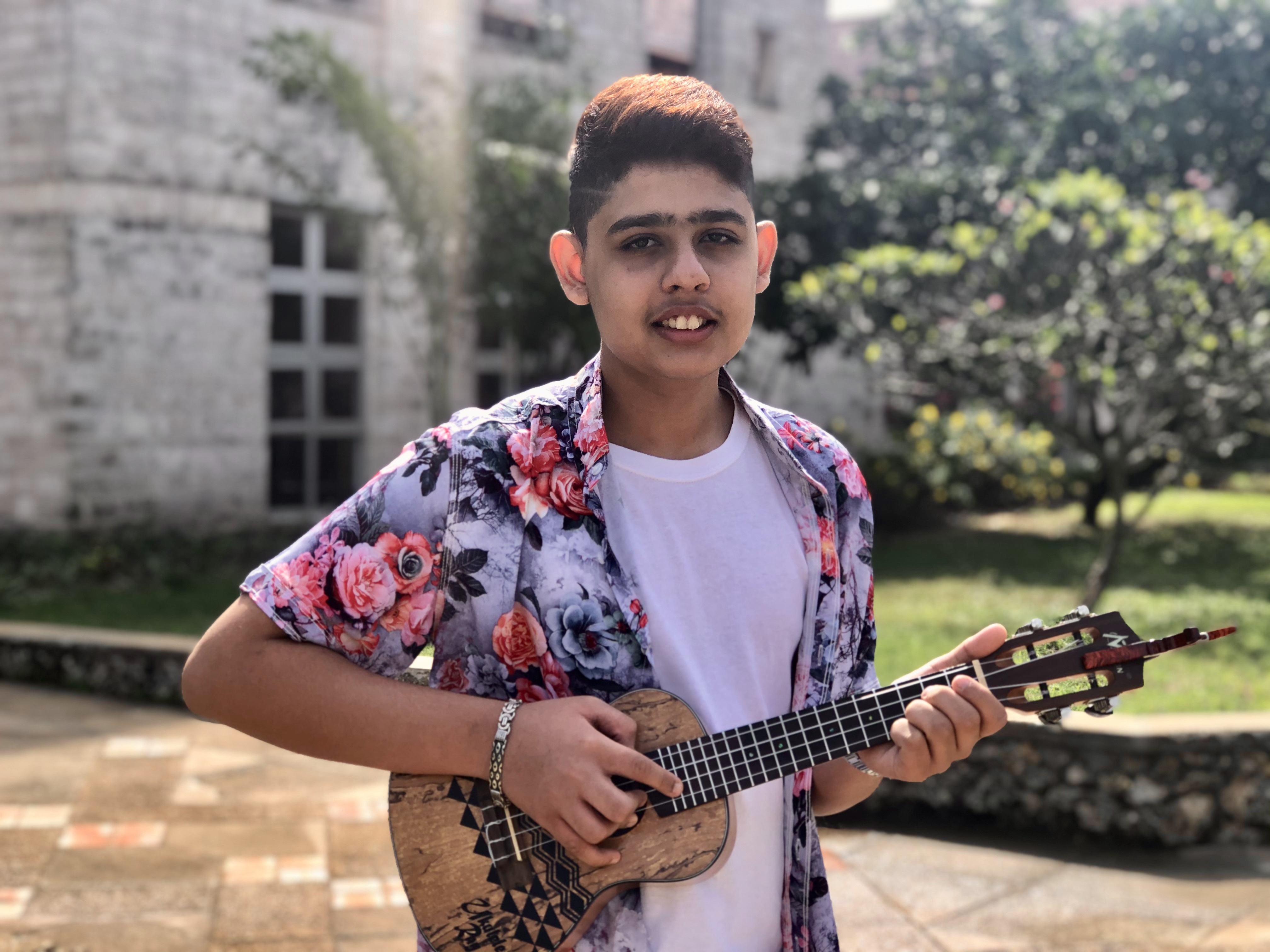
Since he was 4-years-old, Ayaan Allarakhia has had a passion for music that has shaped his whole life. Over the years, the Grade 9 student at the Aga Khan Academy Mombasa has developed and strengthened his musical and performance skills. Now, after writing and releasing his own song and music video, Ayaan is on a mission to spread his love for music to all.
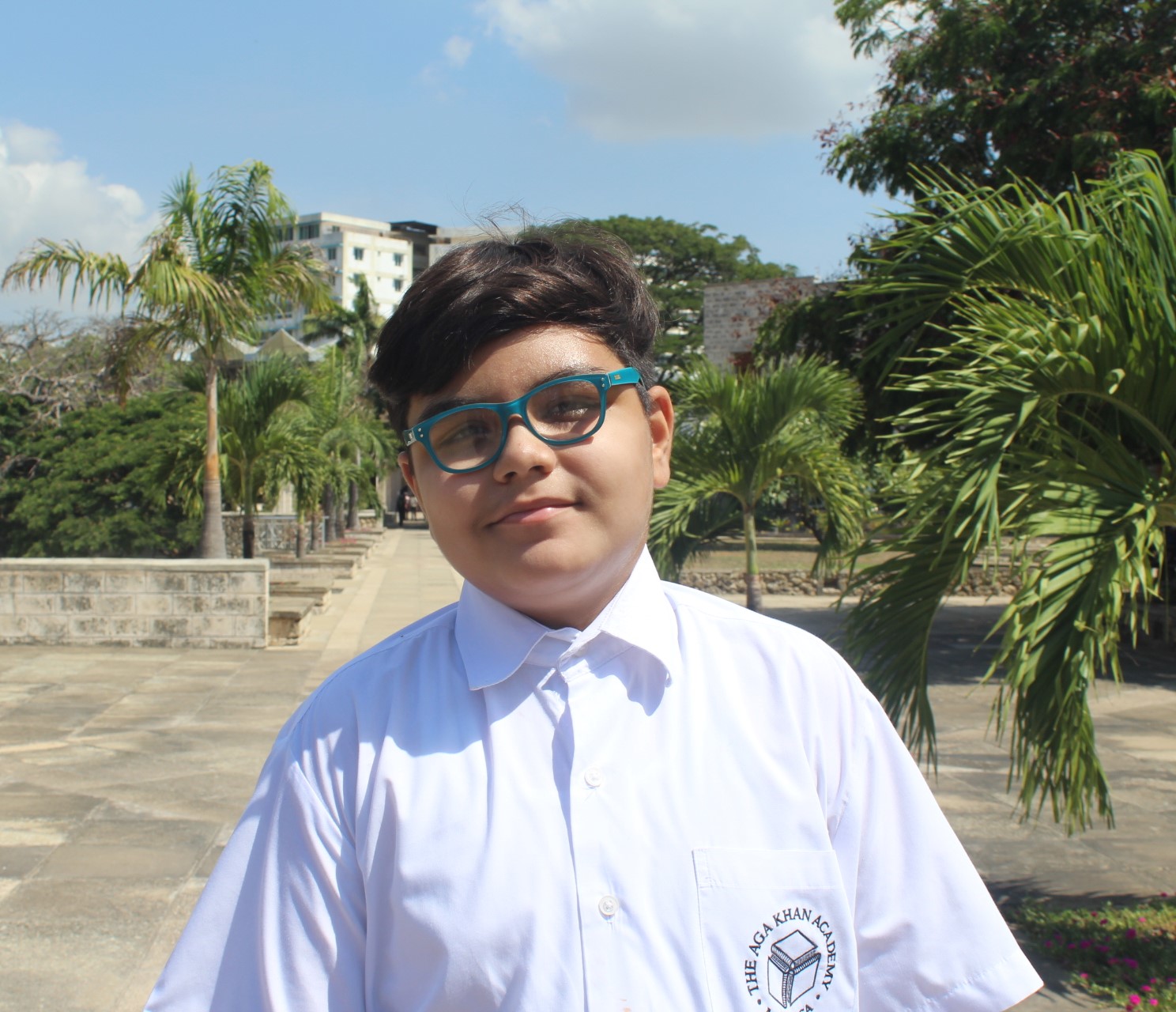
Naail Lakhani, a Year 5 student in Junior School, has demonstrated incredible maturity, leadership, and initiative since joining the Aga Khan Academy Mombasa in 2018. His proudest achievement is founding the Junior School Coding Club, an after-school extracurricular activity to teach coding to young minds.
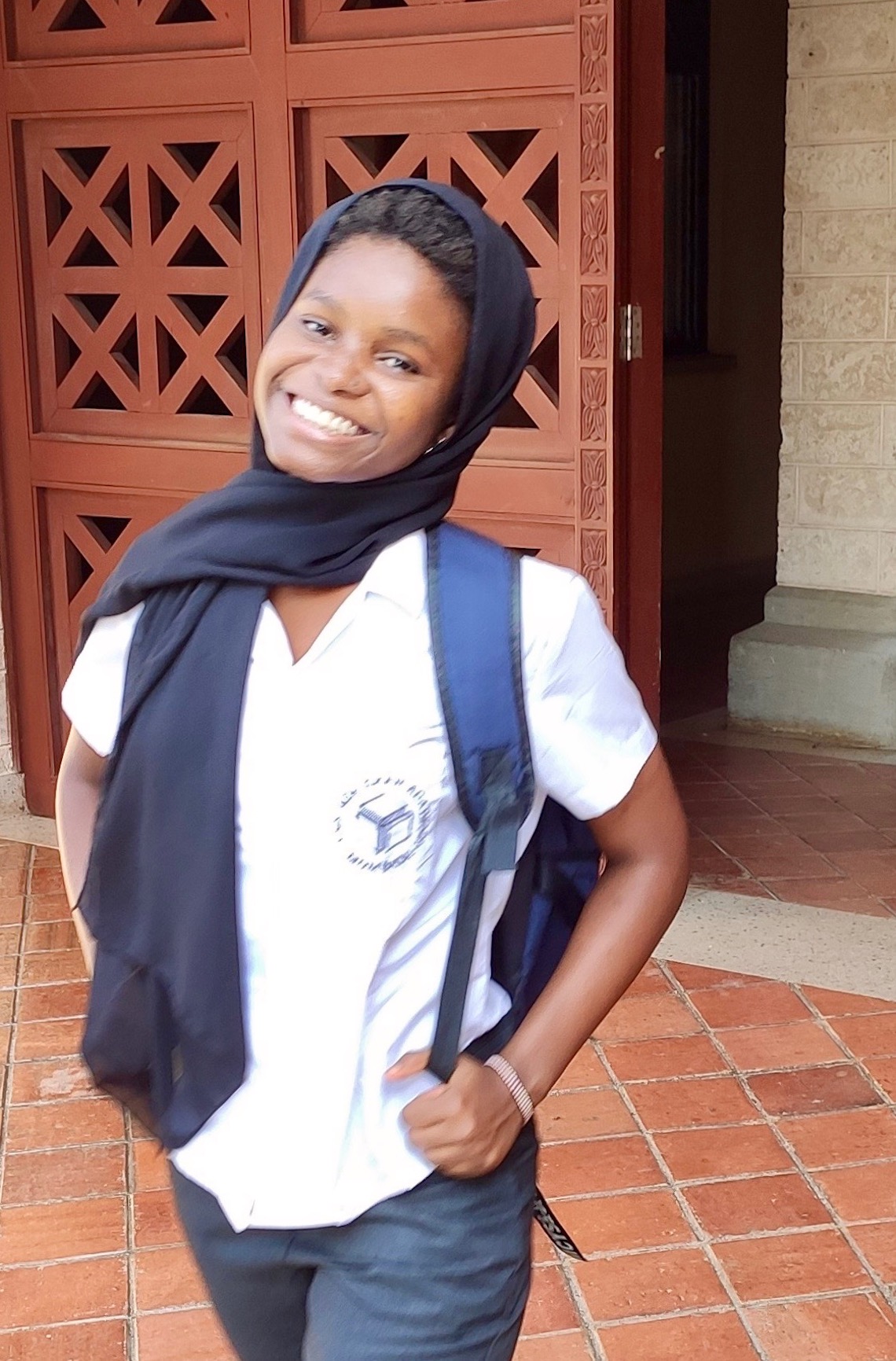
Mwanapwani Said joined the Academy through the Talent Identification Programme in 2017. Since then, she has availed herself of every opportunity to thrive. Her experience at the Academy has shaped her outlook on life and she has been inspired to make a difference in society.
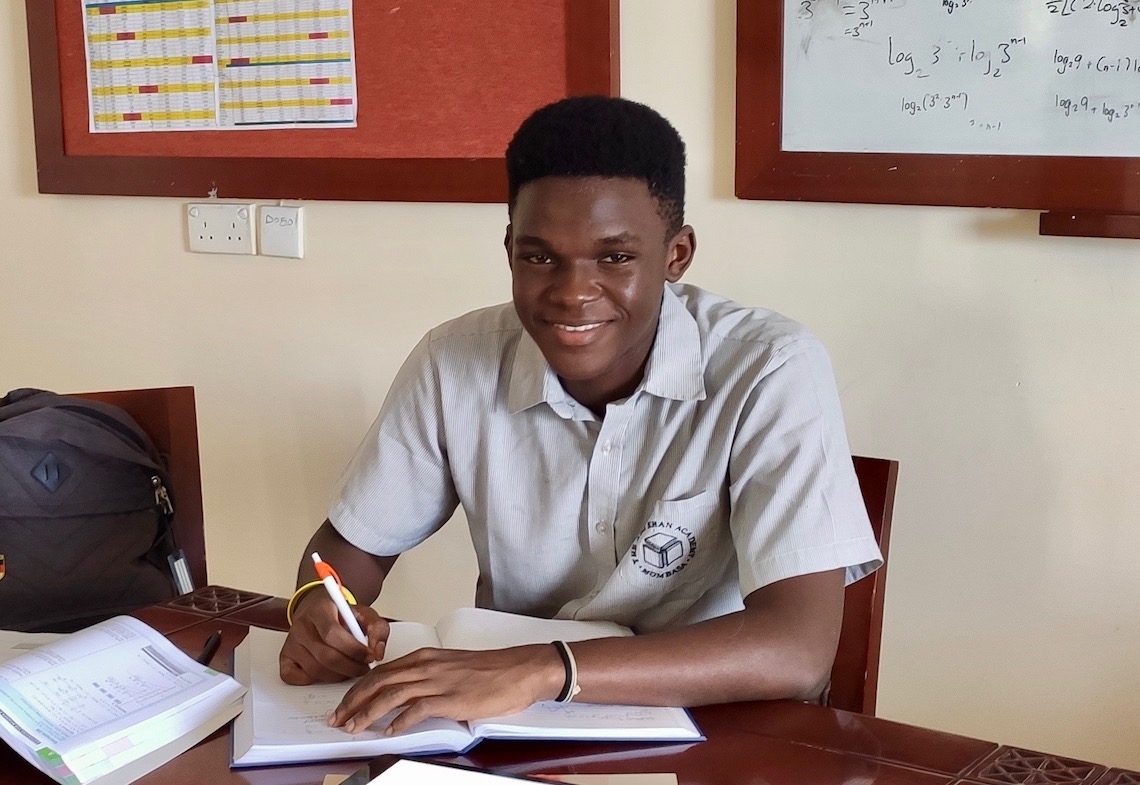
When Raphael Mwachiti, a Diploma Programme (DP) student, got admitted to the Aga Khan Academy Mombasa on a fully funded scholarship through the Talent Identification Programme (TID) in 2015, he knew it was a life-changing opportunity.
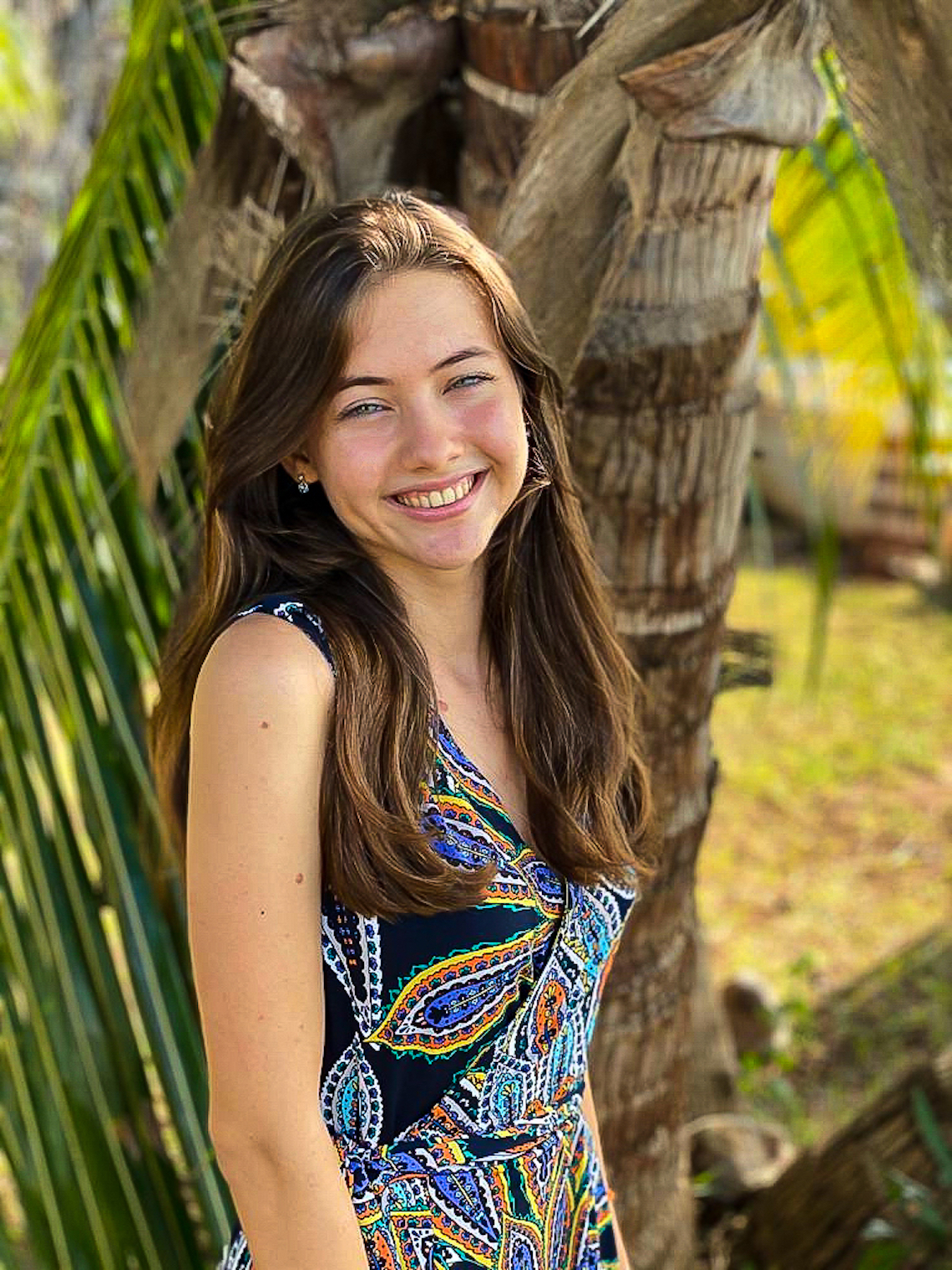
Since a young age, Diploma Programme 1 student Cinzia Torriani has seen the environment around her deteriorate. Through the Academy's and her own personal initiatives, Cinzia is hoping for a greener tomorrow.
Year 9 student at AKA Mombasa Alyssa Jamal has played golf for almost her whole life – a sport that has taught her the importance of determination and focus.
Mahek Shah, a Diploma Programme student at the Aga Khan Academy Mombasa, is driven to change the fact that the aviation industry is male dominated through her initiative called "Wings for Women." This young aviator chooses to be a pilot and not a passenger.
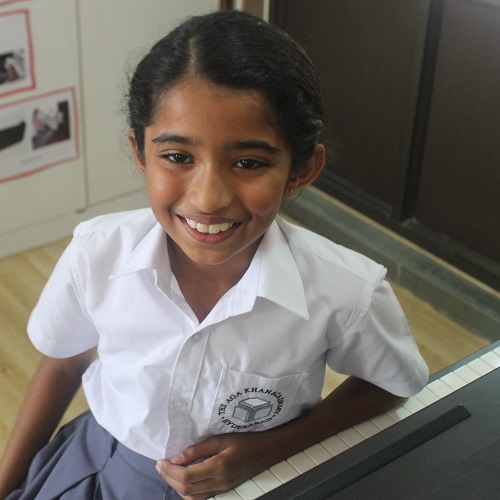
Aanya Athota, grade 4K, is currently the youngest student being accepted to appear for the highest graded music examination conducted by the prestigious Trinity College London. She dreams of becoming a global music icon and spreading peace through music to make our world a better place.
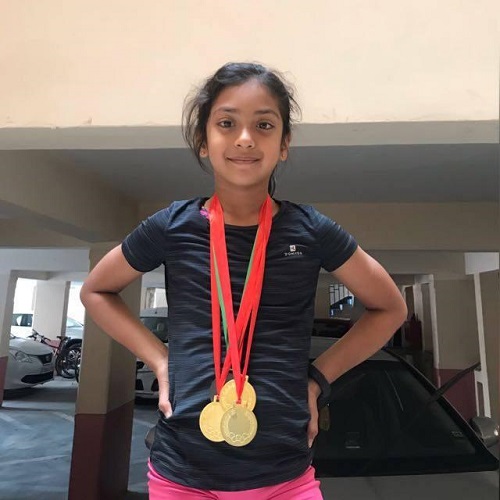
One day, a friend taught Ananya, grade 3, how to do a cartwheel. There was no turning back, and she recently won gold medals at two city competitions in 2018!
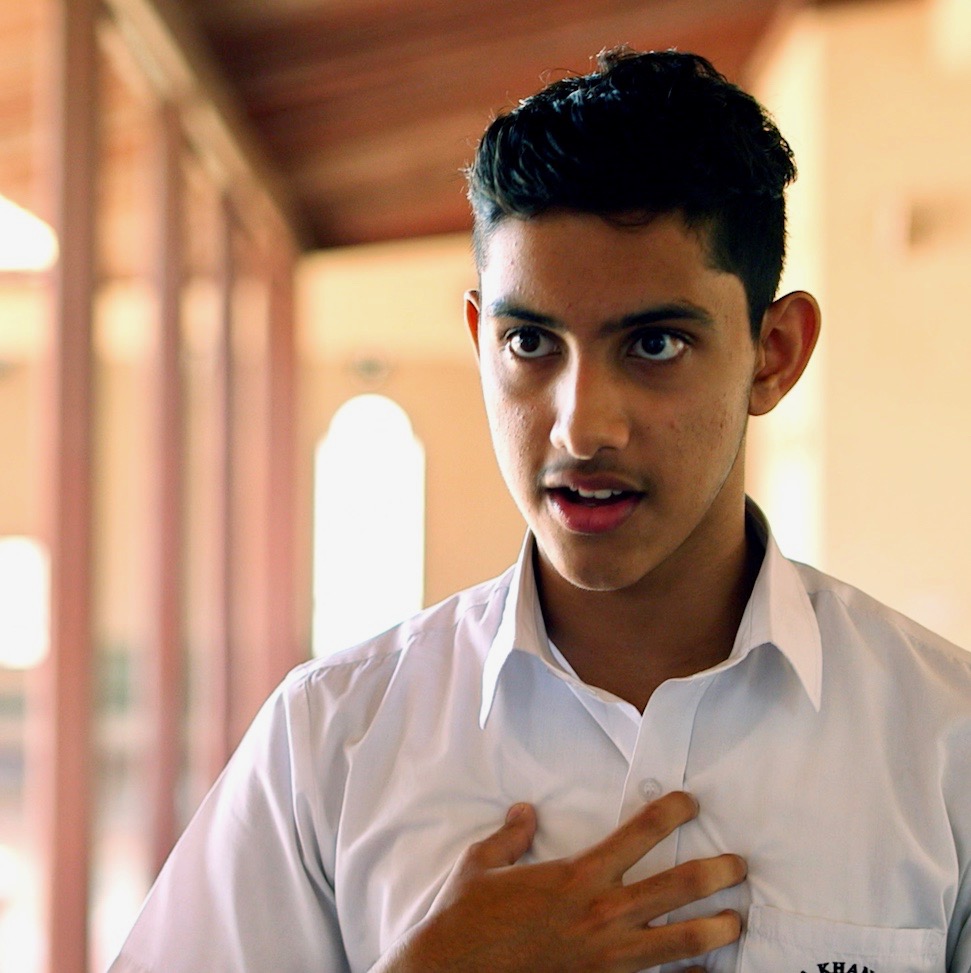
Meet Bilal, currently a student at the Aga Khan Academy Mombasa. For Bilal, studying at the Academy has instilled in him the value of learning whilst always thinking about the bigger picture: understanding how his studies today will impact the world tomorrow.

Paul Davis, the Dean of Admissions at the Aga Khan Academy Mombasa, has led the Talent Identification Programme for nearly ten years. The programme identifies students in Year 6 in Kenyan government schools, in deprived socio-economic and educational areas of Kenya, who are academically able and show leadership potential. This May, seven of these students graduated from the IB Diploma Programme. Paul shares their marvellous stories.
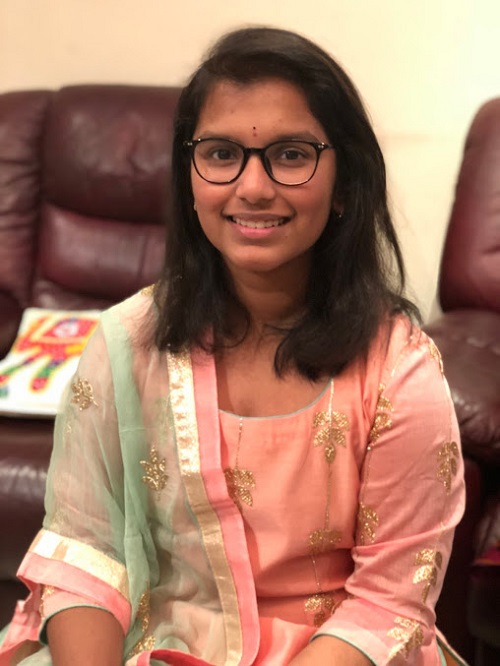
“The Academy has a very unique, highly diverse and multicultural environment,” says 2018 graduate,Tvisha Devavarapu. Set to pursue a career in biology and research, read about this house captain's experience studying and playing at the Academy.
“When I was learning robotics as part of the enrichment club I never imagined that I would become the captain for a robotics team,” says DP1 student, Rudra Potluri. Now approaching his 6th year at the Academy, Rudra reflects on the opportunities he’s had in his academic career so far and the ways in which he has grown.
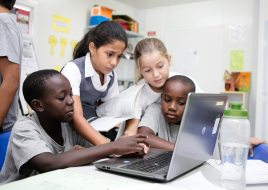
Areesh Rehmani, a grade 6 student at the Aga Khan Academy Maputo, is a determined and dedicated learner. He has a passion for sports and a curiosity for scientific innovations and technological growth. Areesh shares how his learning is fuelled by the learner profile and by the values instilled in him at the Academy.
Passionate about animal rights, Shaivya Arya has used every opportunity possible to learn how to care for animals. “To save an innocent creature’s life, to help animals. It is time we make this a better world for us, for them, for all.”
Kelvin Bagthariya, a second-year Diploma student at Aga Khan Academy Hyderabad, believes the Academy has changed his mindset, teaching him to become independent, improving his self-esteem and allowing him to pursue his passion to make a change in his community.
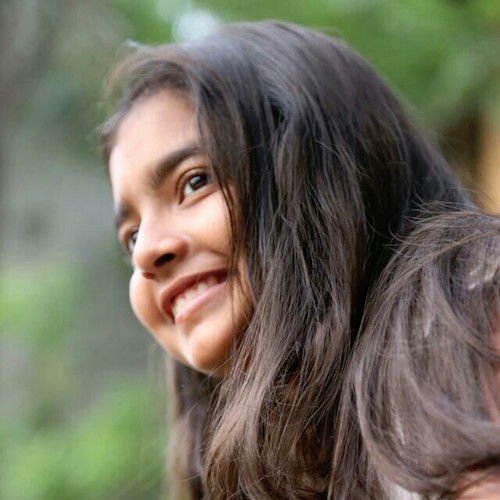
Anahita Aman is in her seventh year at the Aga Khan Academy in Hyderabad. She is full of hopes and dreams and strives to get the most out of her days at the Academy so that she can ultimately give back to the community and society at large.
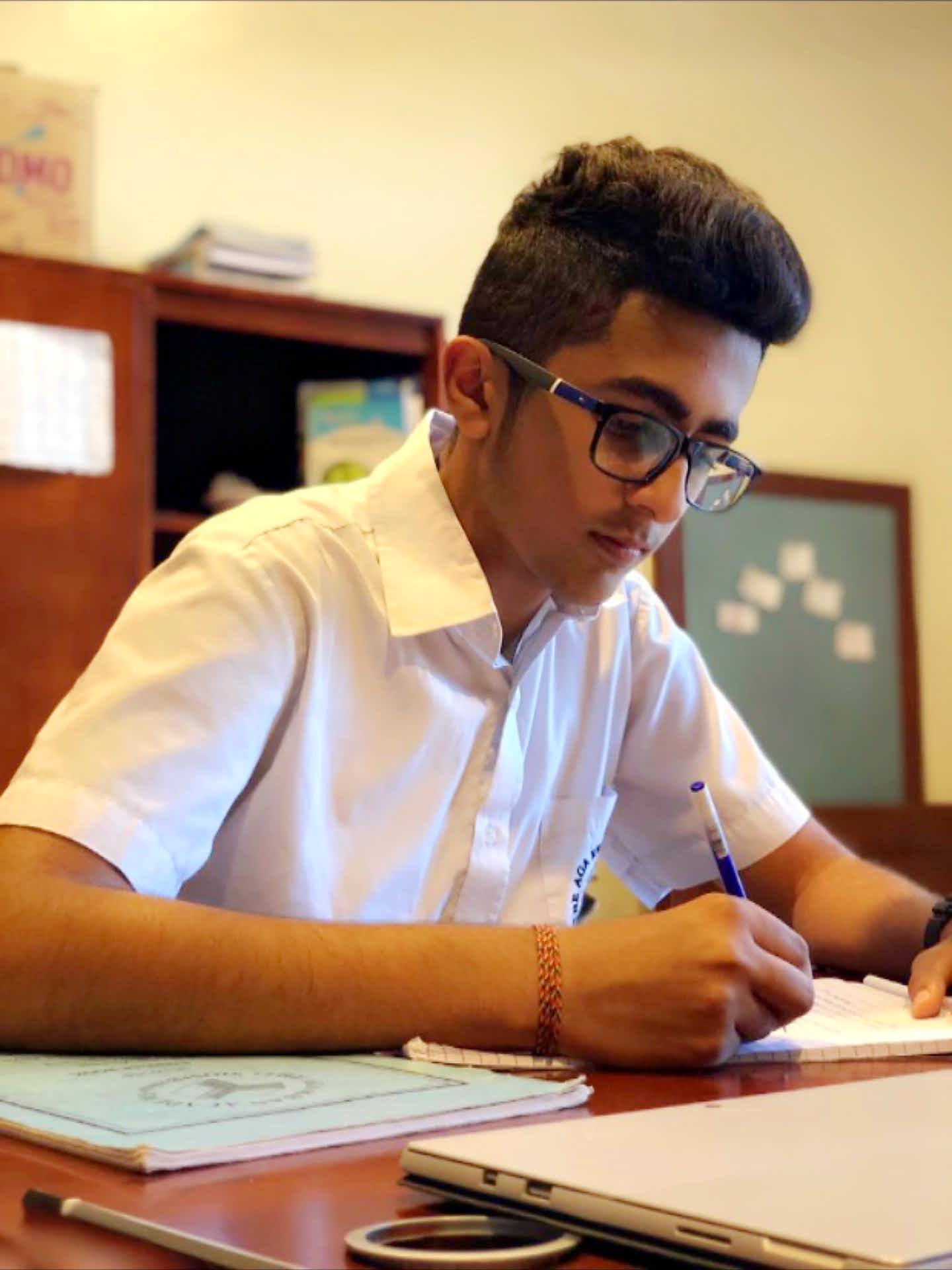
Saifan Aswani, a student at the Aga Khan Academy Mombasa, knows the value of taking the time to appreciate his surroundings. He credits his experience of the past three years at the Academy for instilling in him the discipline of hard work, an appreciation of diverse cultures and the motivation to pursue this responsibility.
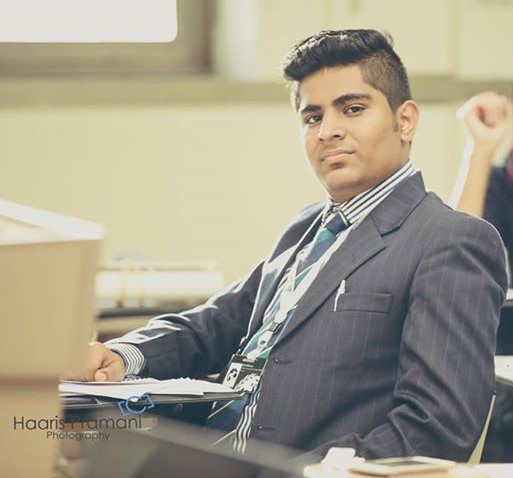
In his final year of the Diploma Programme at the Aga Khan Academy Mombasa, Shad Bherani is ambitious, curious, and driven to become an engineer. Shad aspires to use his education and career as an engineer to give back and to serve his country and its people, by assisting in Pakistan’s development through technology.
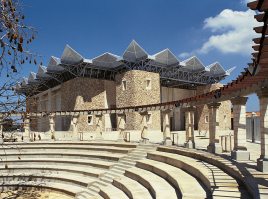
Samy Natho Jina is not only a dedicated student at the Aga Khan Academy Mombasa - he is also a skilled and talented self-taught computer coder. Samy says, “For each and every project, I have spent countless nights out of my own free will fixing incorrect lines of code. It is my dream to make sure this talent and passion I have for software development and computers can be used to make this world a better place.”
"I can’t be racing while I’m on campus, so I decided to become an automotive journalist and am now the head author of an automotive blog, 'The Drive Hub.' "
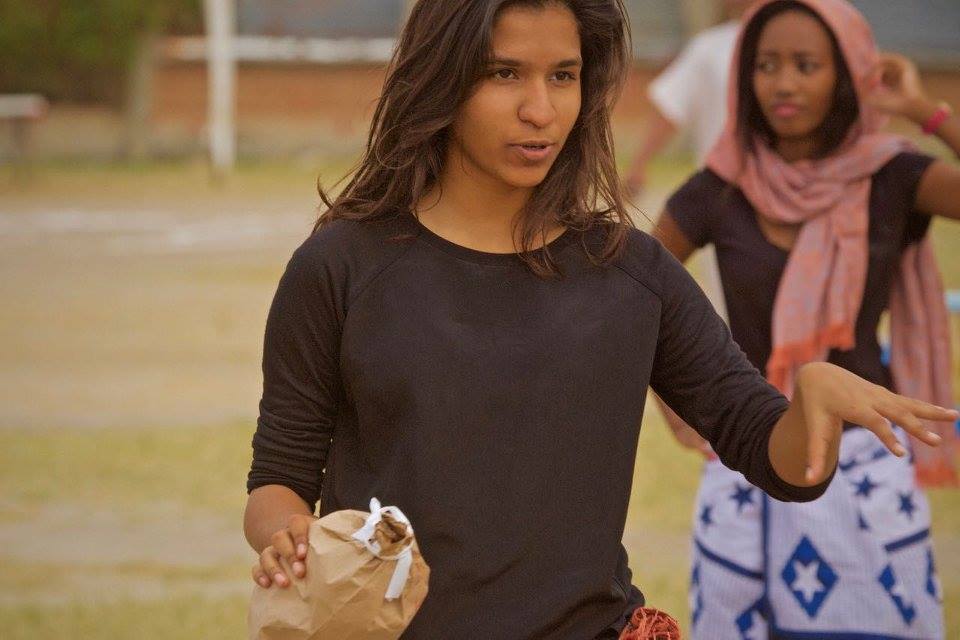
Through a personal reflection, Arzoo shares her experience at AKA Mombasa as she reflects on her journey in her final year: "Through the Academy I have made many of my dreams a reality."
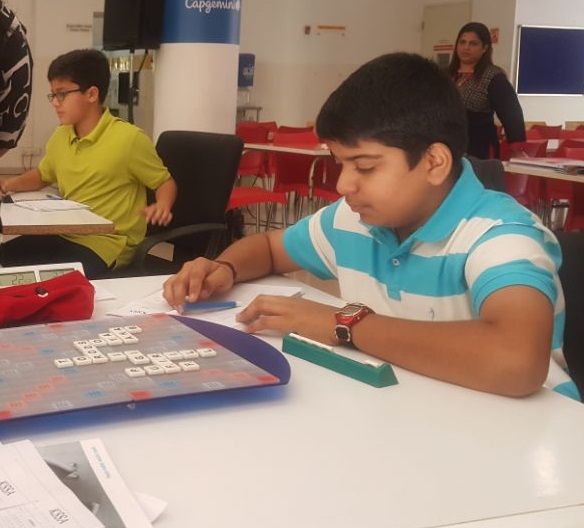
Attending school here has helped me recognise my potential, not just in studies but also in hobby sports! I love Scrabble and I want to become a professional player.
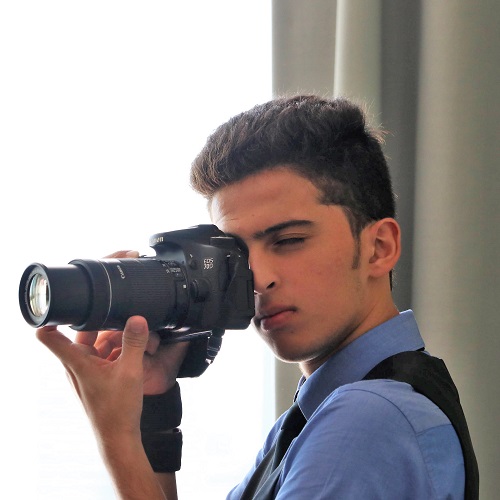
Being part of a team and also having been given positions of authority has taught me about leadership and the qualities one should inculcate to be an inspiring leader.
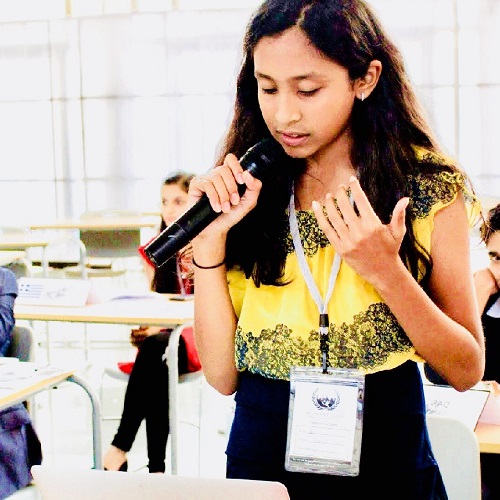
“To me, being ethical and humble are the most important things.”
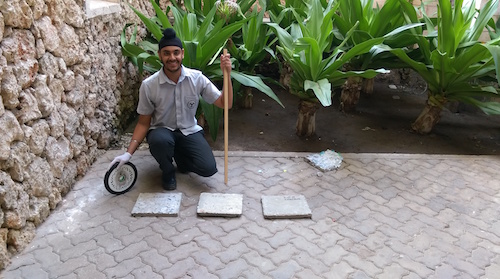
Being a global citizen, leader and environmental enthusiast is no easy task. Prabhdeep Lochab’s story is a testament to the hard work, dedication and commitment that goes into innovating “green” solutions for a sustainable future.

Meet Sadiq, a student at the Aga Khan Academy Mombasa. Open-mindedness, confidence and time management are some of the many characteristics he has developed at the Academy that will help him achieve his dream of becoming a journalist.

Meet Saumya, a student at the Aga Khan Academy Mombasa. A musician and a leader, she shares her wisdom on what it means to make a true positive impact.
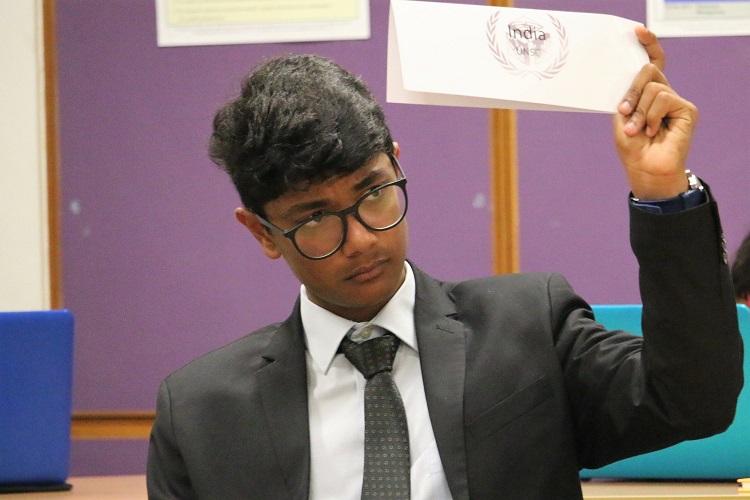
"Being able to stand in front of 250 students and fulfilling the opportunity to give them what I had been given, was one of the most rewarding experiences of my life."

Introducing Ivy, a student at the Aga Khan Academy Mombasa. Her innate drive for self-growth and desire to give back to the community makes her a true home-grown leader.

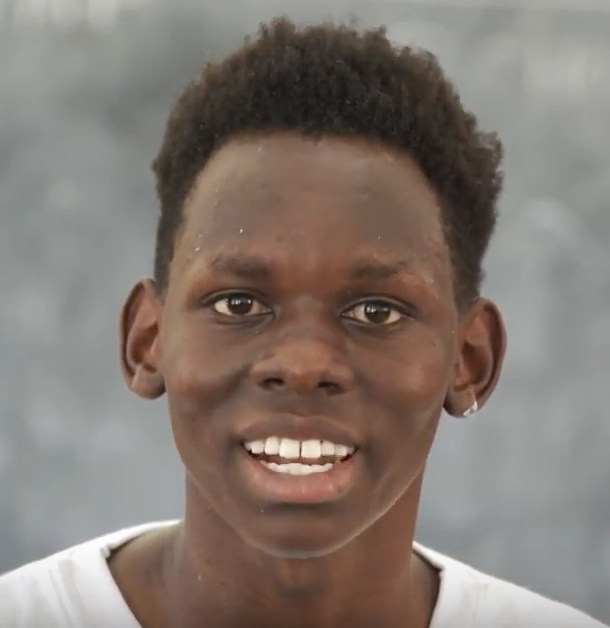
This is Stephen, a student at the Aga Khan Academy Mombasa. His passion for community service shines as he expresses the growth in perspective he experienced through his education at the Academy.
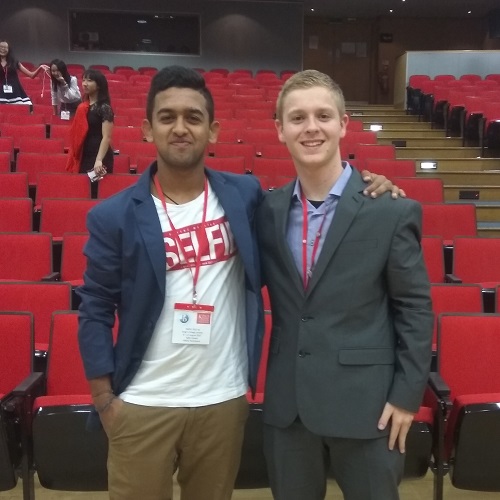
Sahir Devani, grade 11, shares his experience as an Academy representative at the IB World Student Conference held at King’s College London, from 6-12 August 2017.
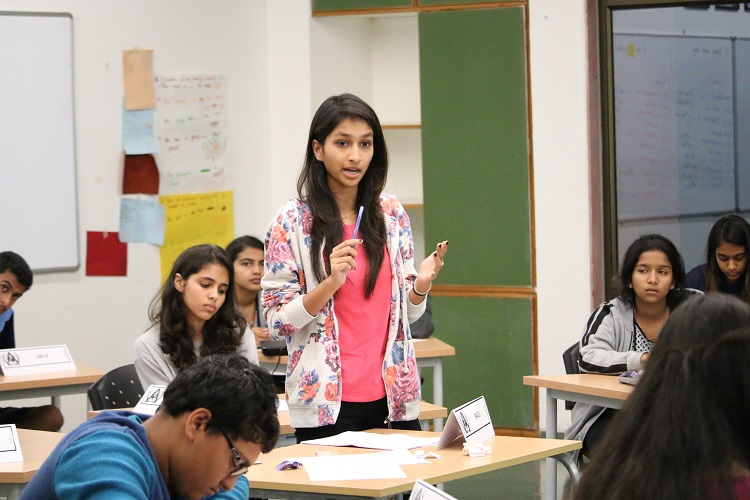
Sayema, currently in grade 11, directed and produced an impactful short film to create awareness on child rights for her IB MYP Personal Project.
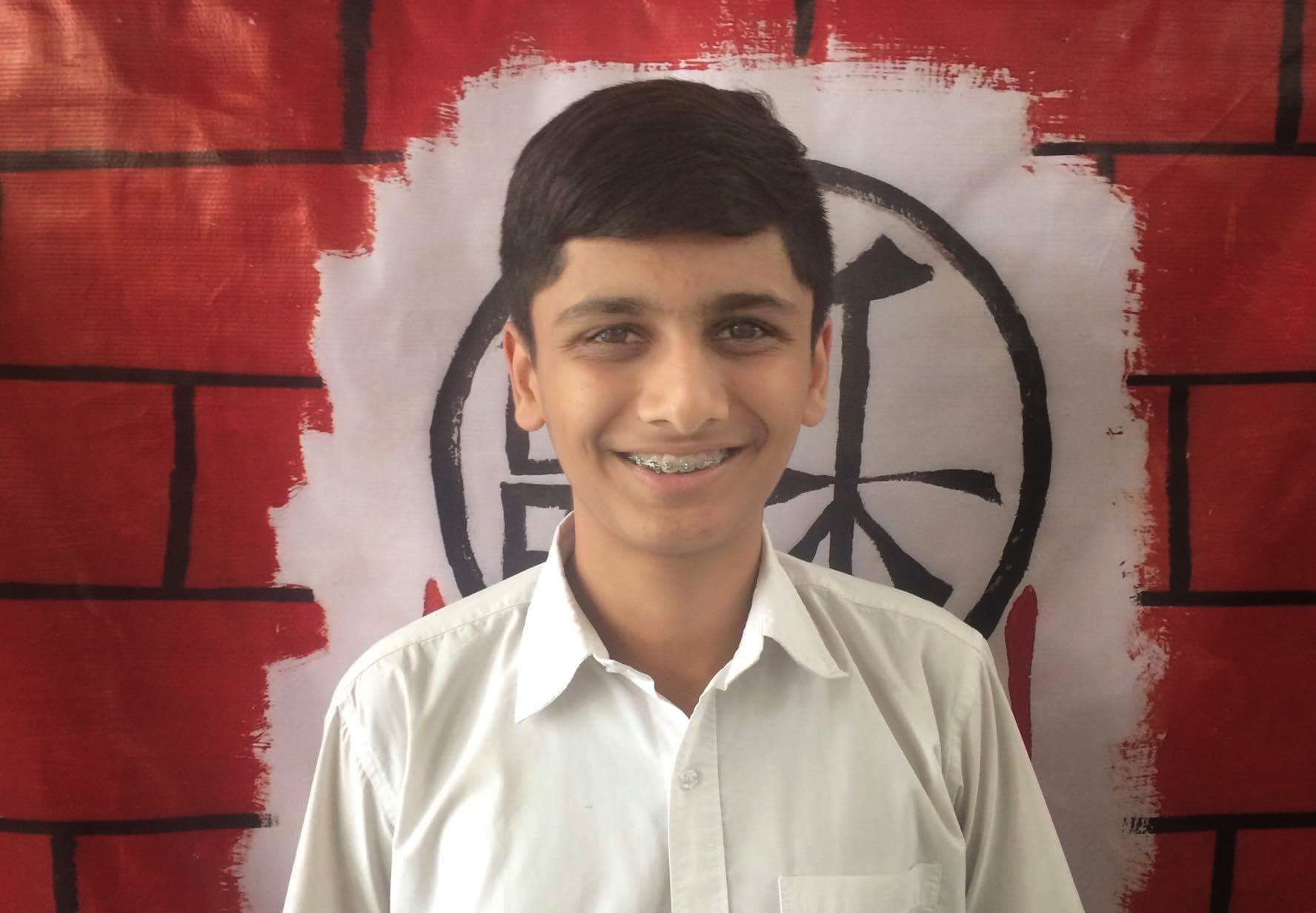
“For me, the best part of school is when we have service class, because I am very keen on serving my society and helping the community around me develop faster.” - Sazil Ramani, grade 10, Aga Khan Academy Hyderabad.
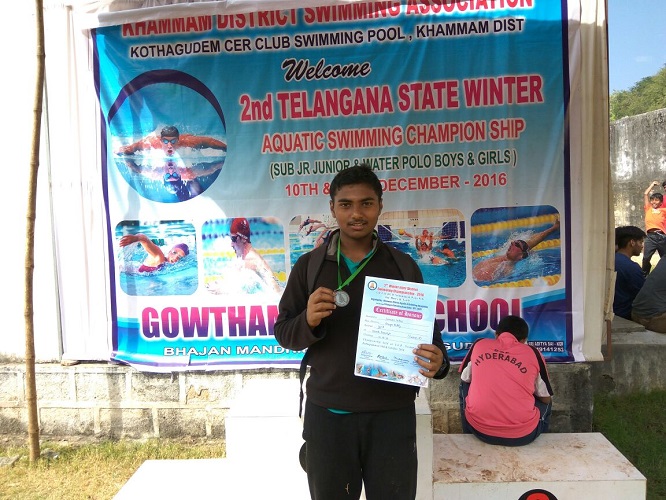
“I came to this school searching for better opportunities and better facilities through which I can improve in sports and excel in music and studies,” says Samson. “I didn’t have these opportunities in my previous school and didn’t get a chance to play any sport.”
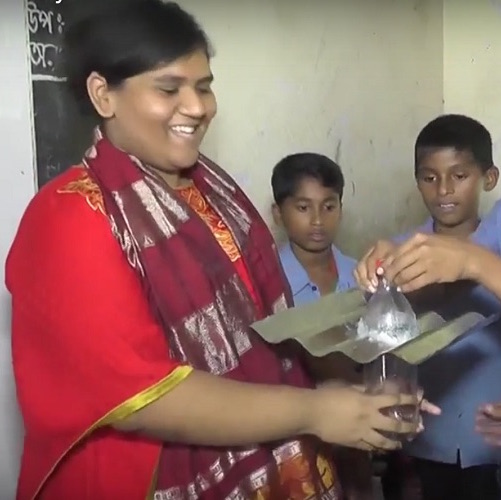
"I wish to continue sharing my knowledge, what I have learned and will continue to learn, with my society."
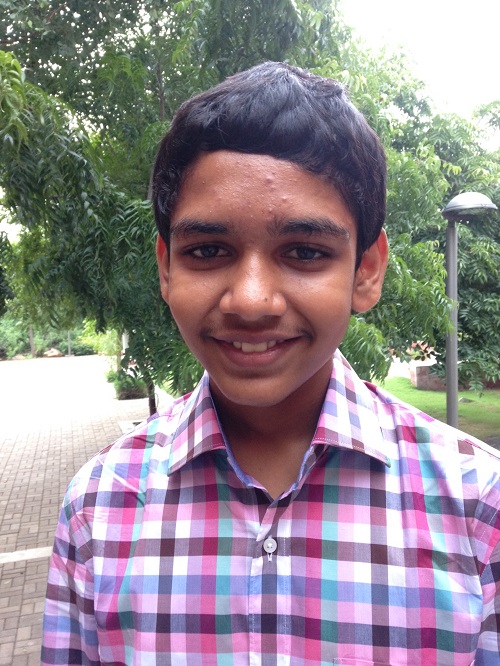
Advait Surana is a residential grade 10 student at the Aga Khan Academy in Hyderabad. He was selected as one of 18 students from different schools to represent Telangana state at the national U-15 football tournament in Delhi in early September 2016.
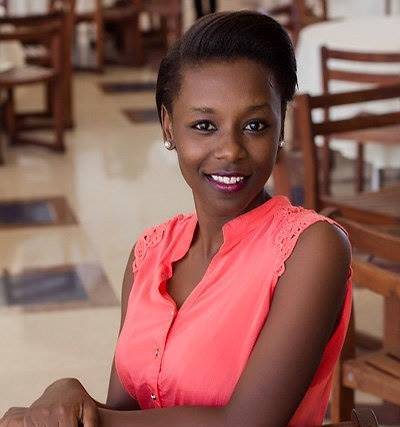
It is a different system that gives me more advantages and privilege.
Spotlights on Parents
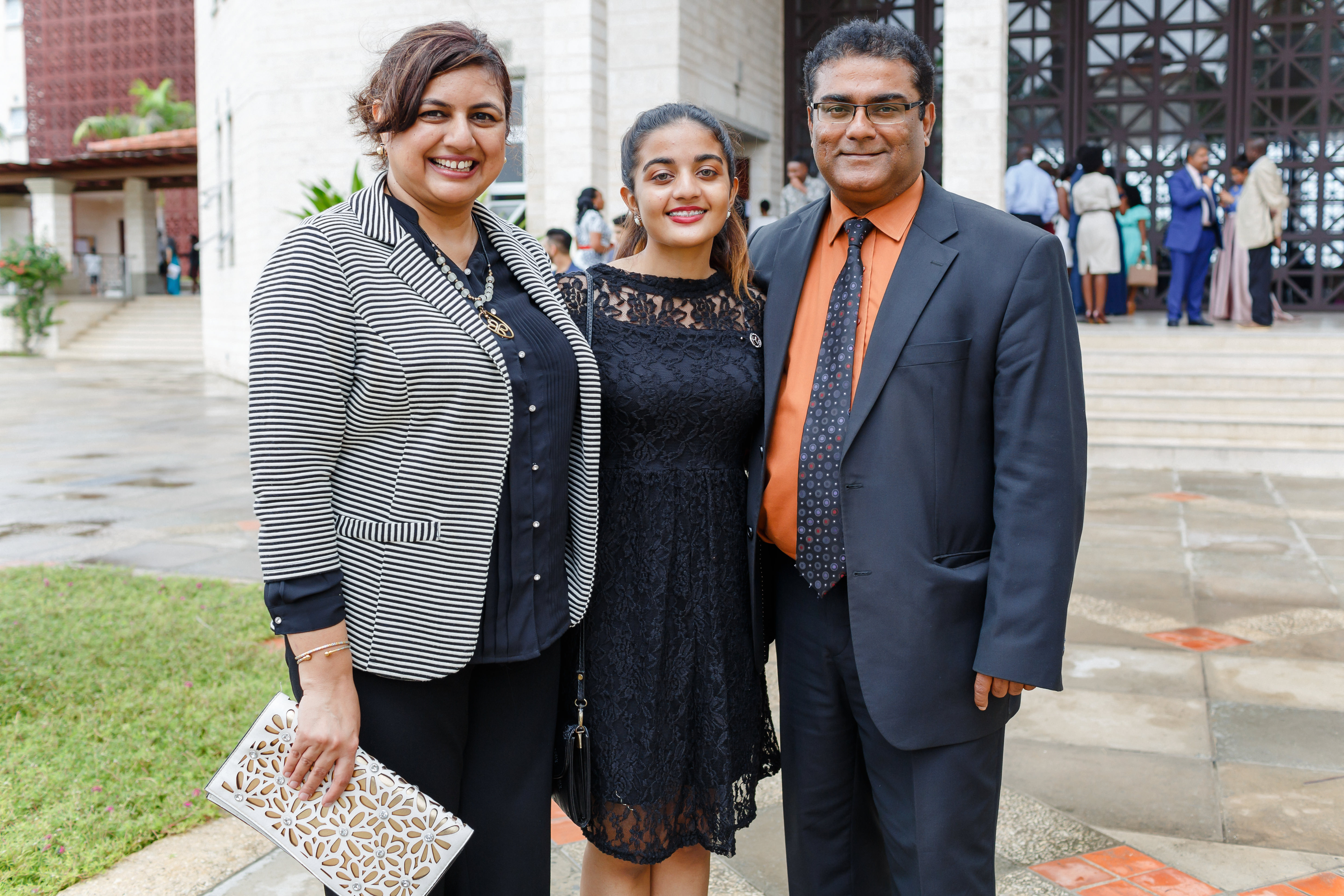
Mrs Aneela Mukhi and Mr Altaf Mukhi, parents of Faliha Altaf Mukhi, share their experience: "Through our chain of observation, the Aga Khan Academy Mombasa surely plays an active role in the holistic development of every child. This is our consistent finding all through the two years of IB Diploma programme our daughter studied."
Alyssa Jamal: Swinging her way toward success
“I started playing golf because of my dad, Aly Jamal, who is also a golfer,” Alyssa said. “As a child I used to accompany my dad and hit balls on the practice range whenever he would go play. That's when he realised that I was good at golf and that’s when I started getting lessons to learn how to play golf from the pros at the Nyali Golf Club.”
Since Alyssa received her handicap in 2015, which is a numerical measure of a golfer’s potential with better players having lower handicaps, she has competed in numerous national and international competitions. Some noteworthy competitions include the U.S. Kids Golf International Competition, the 72 Holes Junior Stroke play Championship, Royal and many more.
“I love the game of golf,” Alyssa said. “It has taught me so many things, for example, etiquette, patience, focus and, most importantly, it has helped me in my social skills. I am passionate about the sport because it also helps me unwind from my busy school schedule.”
Alyssa said golf provides her with many opportunities to connect with different players, form closer bonds with her family and boosts her determination to always succeed.“I’ve met European Tour professionals when competing and when I go for international and national tournaments I meet new people, which has led me to make so many friends,” Alyssa said. “Also, my dad and brother are golfers as well so whenever we travel, we play golf as a family, which is so much fun and it’s a great way of bonding. I have also won so many tournaments and won so many amazing prizes, which is also a great source of motivation for me to prove myself over and over and try to win competitions.”
Although she has been playing for many years, Alyssa said she still finds herself as the only girl competing in golf for her age.“Unfortunately, I’m the only junior girl golfer in the coast,” Alyssa said. “Sometimes I feel bad that I don’t have any girl friends to compete with that are my age. However, there are boy juniors my age that I compete with and they are my good friends. I also know junior golfers from Nairobi, Arusha, Nakuru, South Africa, Scotland and Uganda whom I meet at least once a year when there are national or international competitions, and I keep in touch with them through social media. In Mombasa at the Nyali Golf Club, I play golf with both males and females who are sometimes twice or thrice my age, but they all love and take care of me and they are always happy to play with me. At Nyali Golf Club we are all like a big golfing family and I look forward to going there every single Saturday.”
No matter her age or her busy schedule, Alyssa said golf will always be a part of her life.
“Golf is a sport I will never give up on, even when I get old,” Alyssa said. “You will always find me on the golf course.”
Rahim Daya (Class of 2013): Grateful for a balanced education
Growing up in London, England I had no idea that I would owe my intellectual and character development to the dynamic academic and residential programmes at the Aga Khan Academy Mombasa.
I was aware of the work of the Aga Khan Development Network and their efforts to improve the quality of life of communities across the globe, but little more. After moving from London to Moscow at age 12, my parents urged me to consider the programme at the Aga Khan Academy Mombasa, a school 5000 miles away. I was taken aback. Why did they want to send me away? I didn’t mean to knock over the photo frame while kicking around the soccer ball the other day. As I began to read about the Academies and their vision to create leaders, I became excited at the prospect of being part of a rigorous academic programme while having the opportunity to engage in the numerous extra-curricular activities the Academy in Mombasa had to offer.
I was one of the first members of the boarding component of the Academy and, as a result, I saw the programme grow from about 30 students living in two blocks to almost 200 across six blocks. Despite the growth, residential students remained a tight-knit community where younger students felt comfortable interacting with student several grades above them. The commitment to serve the community was of the upmost importance within residential life at the Academy. I recall taking part in cleaning Mama Ngina Drive, the street that ran adjacent to the school, as well as numerous beach clean ups, painting a local madrasa and facilitating a de-worming programme in Bombolulu to name a few. Students were also given the freedom to create their own community service projects. I was a part of a project called Your Environmental Voice, an organisation that aimed to create awareness of environmental issues and undertake initiatives to curb unnecessary pollution in Mombasa. Projects like these allowed for students to lead and take ownership of projects that made a difference in the lives of those around us.
Within the residential programme, I recall the efforts of teachers like Mr. Bernard Dudi – my dorm parent for the majority of my time at the Academy – and others who went out of their way to ensure that students quickly settled into the Academy. Teachers’ doors were always open for a quick chat on academics, current affairs and future plans as well as the results from the previous nights’ Champions League football. In holding the position of dorm captain within the residential community and representing the community on the student council, I was entrusted with a leadership role within residential life that involved organising and facilitating orientation programmes for new students. In addition, dorm captains arranged activities for students on the weekends and liaised with students and teachers to improve the boarding experience for all. Leadership roles like this gave me my first taste of managing projects and people and I continue to draw on these experiences today.
Being a part of and leading the Model United Nations club at the Academy in Mombasa was an experience that I hold most dear. At first, the thought of public speaking and writing resolutions to combat real local, regional and international problems was intimidating enough for me to turn a blind eye to joining the club. However after encouragement from teachers and peers, it wasn't long before I began to gain confidence in addressing long hundreds of fellow delegates without needing to read off a script or feel my legs wobble. Through attending conferences as well as teaching others the skills needed to be a successful delegate, I was tasked with analysing and working with others to construct creative solutions to tackle issues concerning poverty reduction including food security; the prevalence of quality educational institutions; access to clean water and sanitation. These experiences allowed me to begin to comprehend the multiple complexities to a single issue and the ethical responsibility we carry to do all in our power to promote sustainable progress in less privileged communities.
I was particularly challenged by the rigor of the IB Diploma Programme – I quickly learnt that it is essential for students to be able to think independently and work hard to engage with thought provoking course work. Studying six different subjects as well as Theory of Knowledge and writing a 4000-word essay on a chosen topic was a heavy load to bear. Crucially, there was a willingness and determination among the student body to study in groups and push one another to achieve challenging objectives. There was no shame in going to a classmate or more senior students to ask for help and this was in fact commonplace. I think that the challenge of the IB diploma was made much easier by the effort to work together among students. The teachers at the Academy were invaluable in the process as they guided students to reach the academic goals and encouraged students to think outside the box. Their collective love for teaching and determination to see students succeed allowed for the attainment of consistently high grades and development of a passion for learning that continues to drive Academy alumni today.
As I reflect on my time at the Academy and turn an eye to the future it is my hope that I will be able to return to the African continent and help to contribute to the progress being made today. Graduating with a liberal arts education from UC Berkeley and focusing on Political Economy from an African lens has cemented the responsibility I feel to give back to communities and help improve the lives of those troubled by poverty, unemployment and poor governance. Not only did my time at the Academy help me gain admission to a top university but it helped me to grow to be the man I am today by instilling values of social conscience and intellectual curiosity that I continue to hold precious today.
By Rahim Daya
Press Images for the Aga Khan Academy Dhaka
Please find below a selection of downloadable photographs for press usage, alongside our latest construction update in video format. Please contact us if you require these assets in alternative formats.
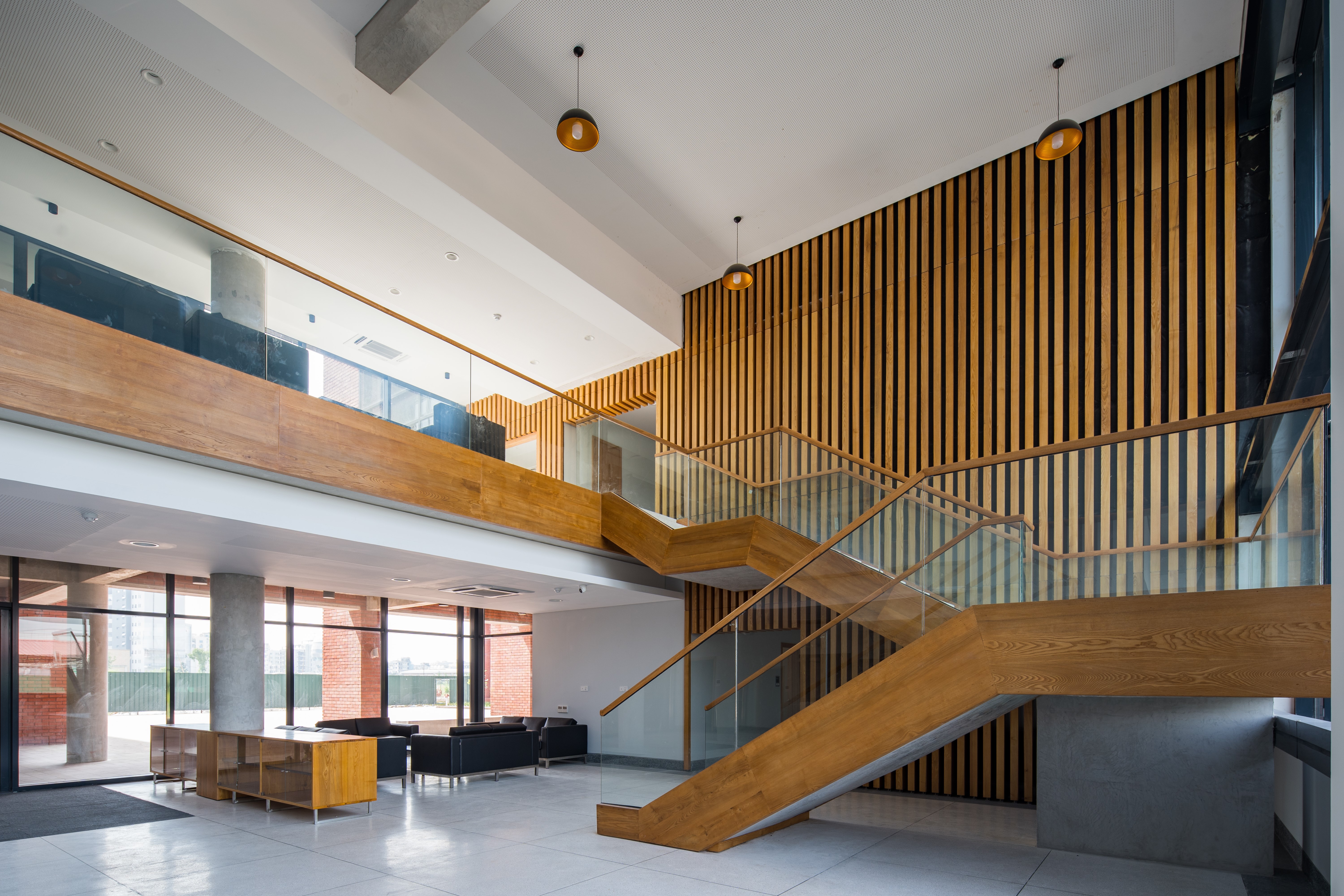
The Aga Khan Academy, Mombasa Newsletter - March 2012
